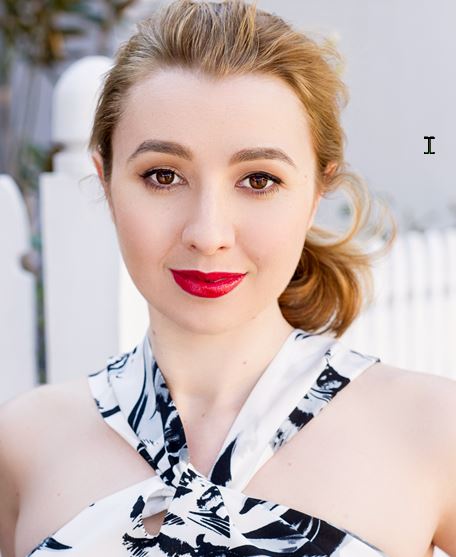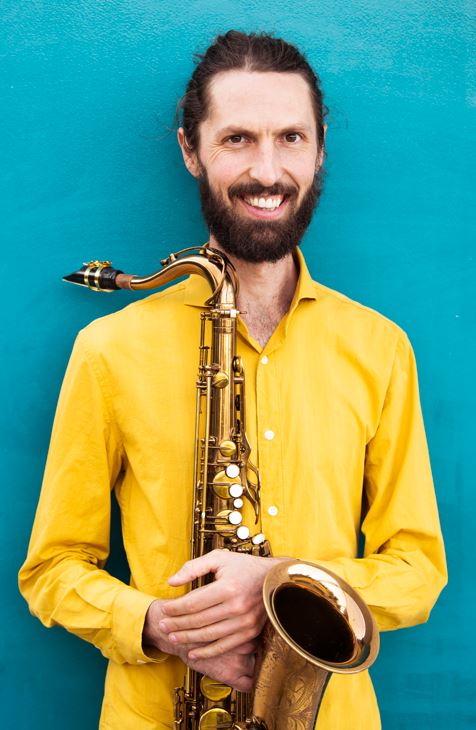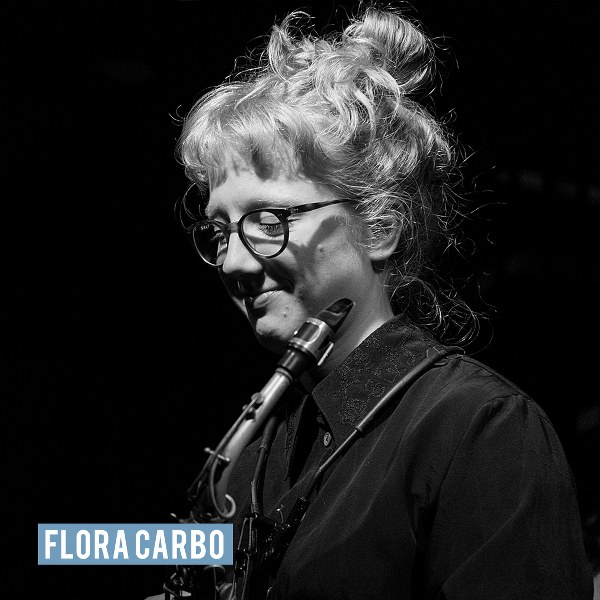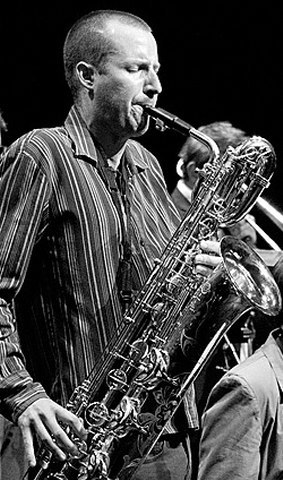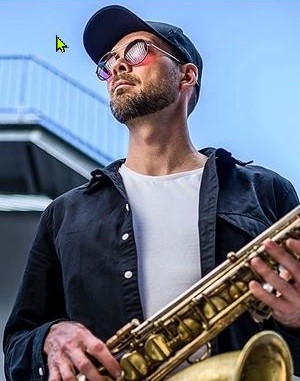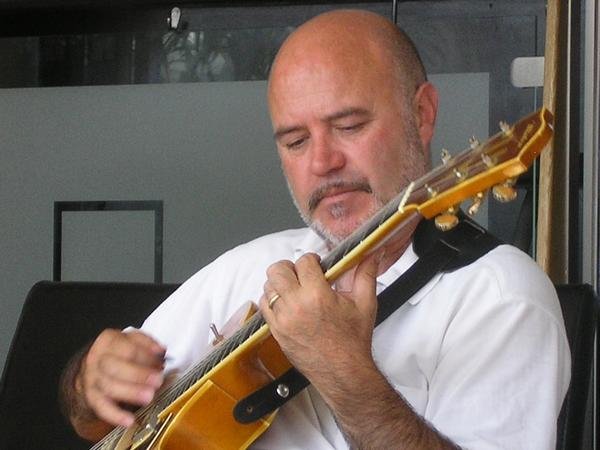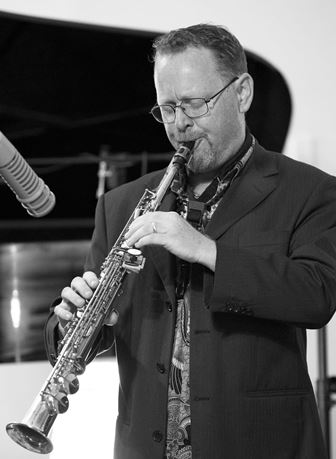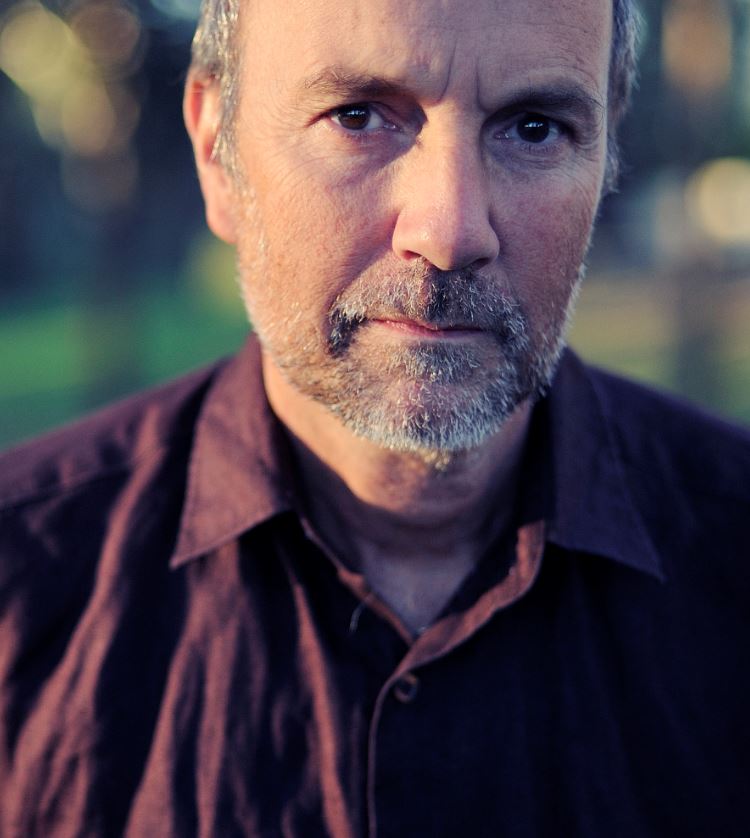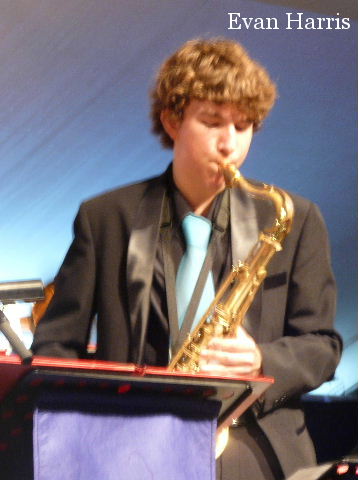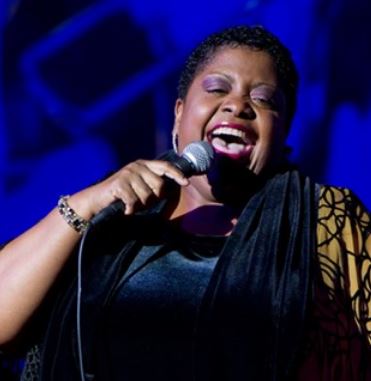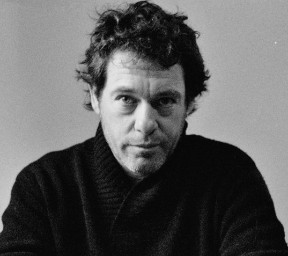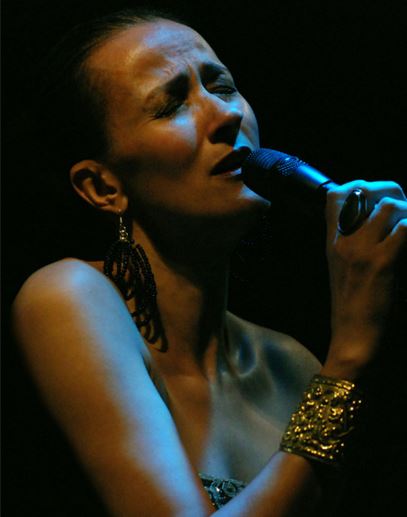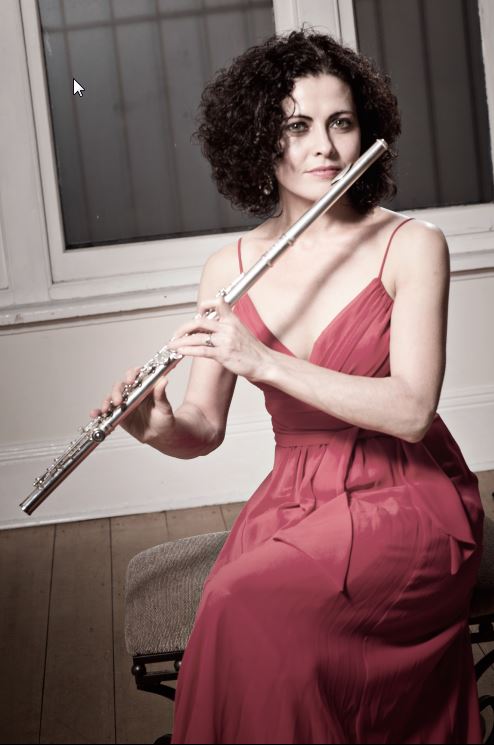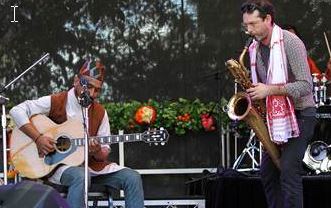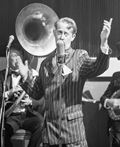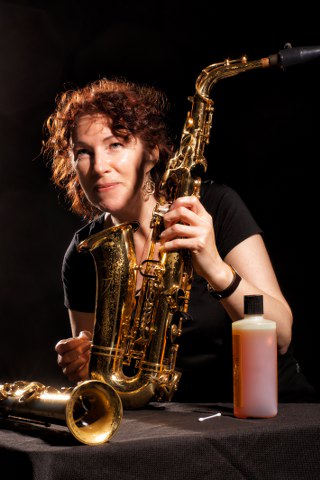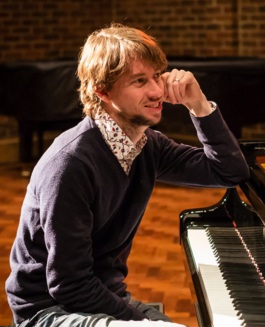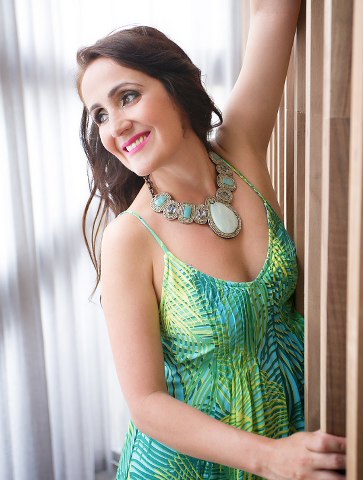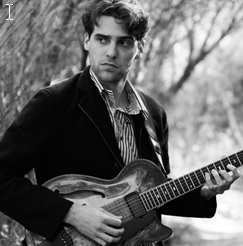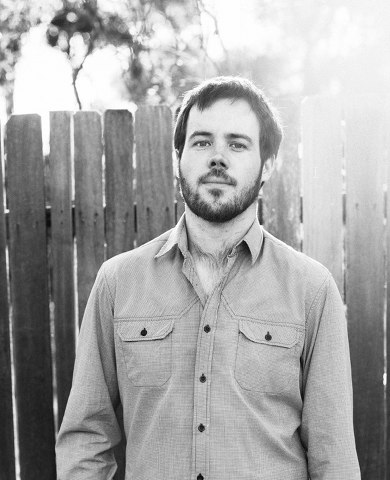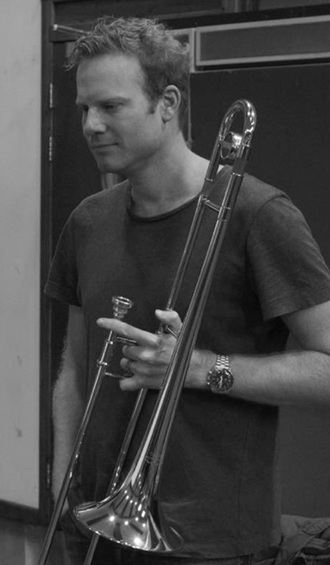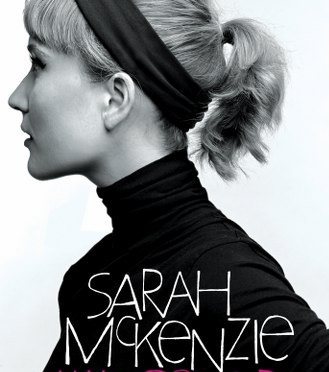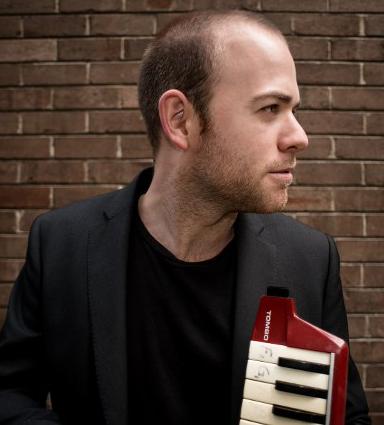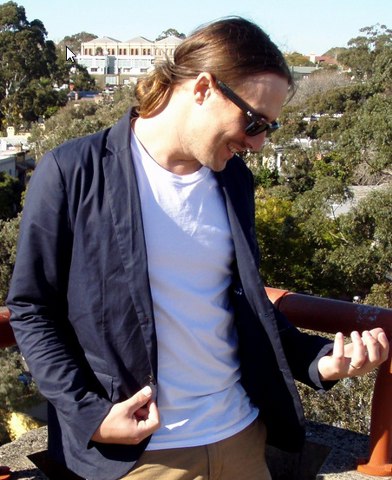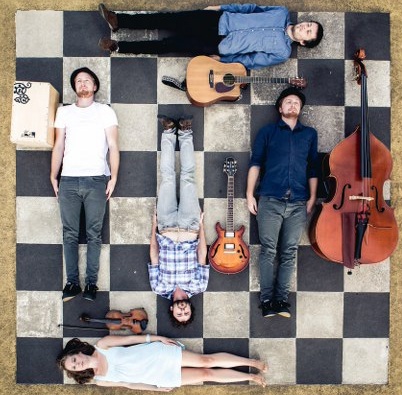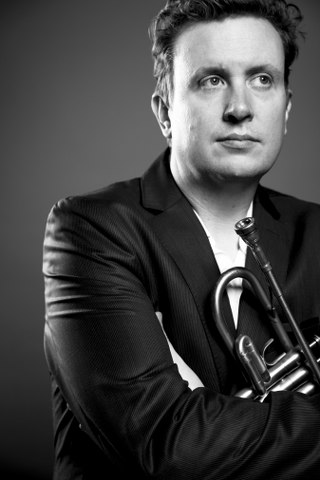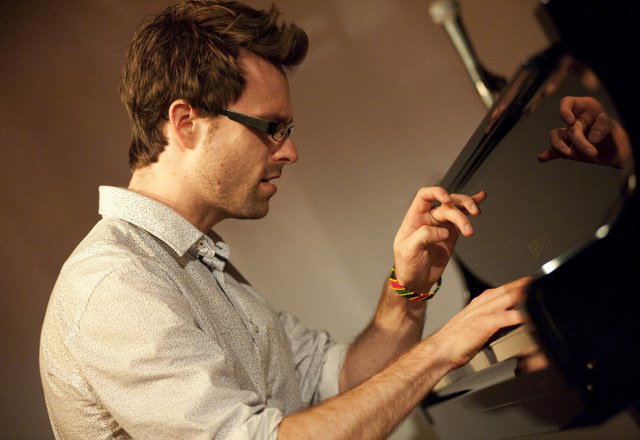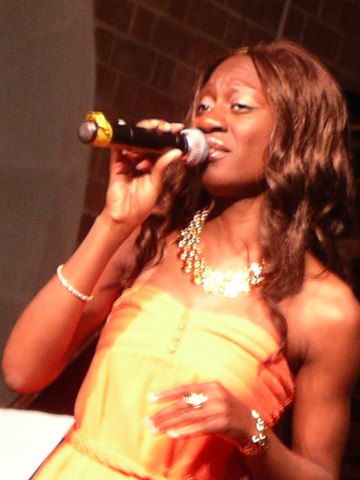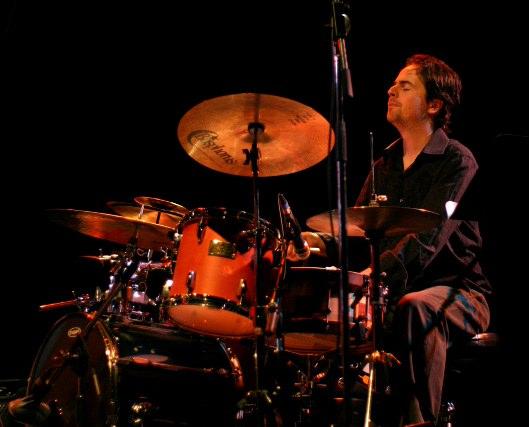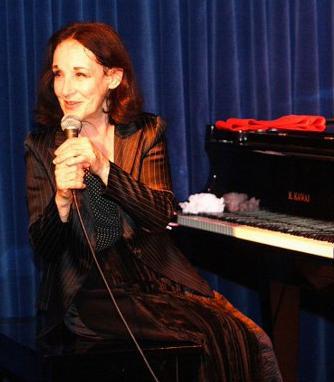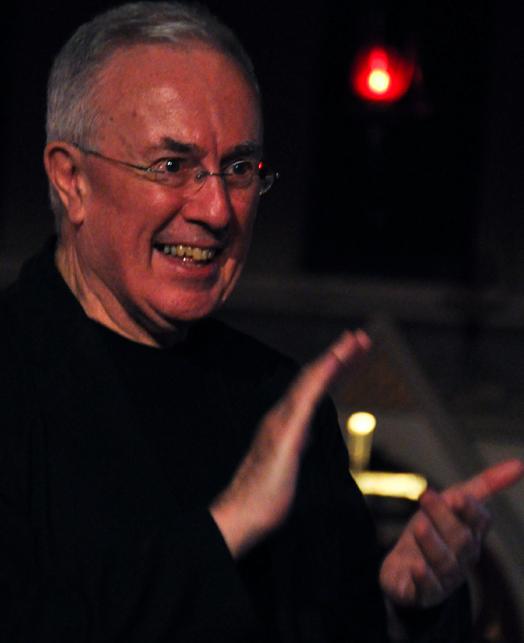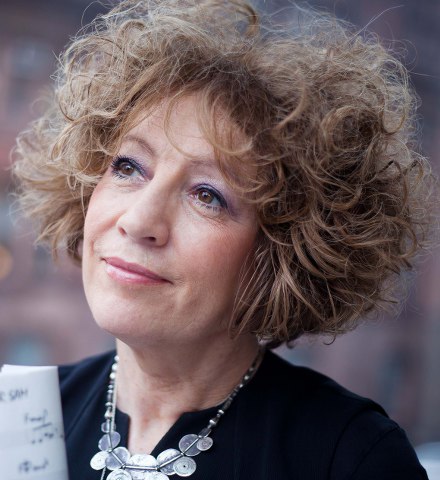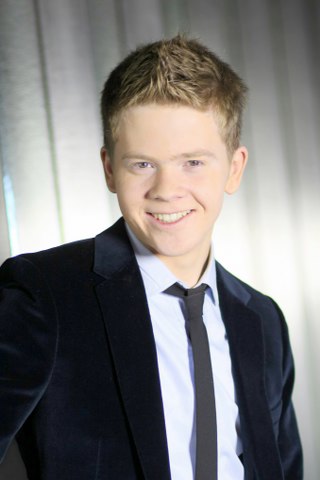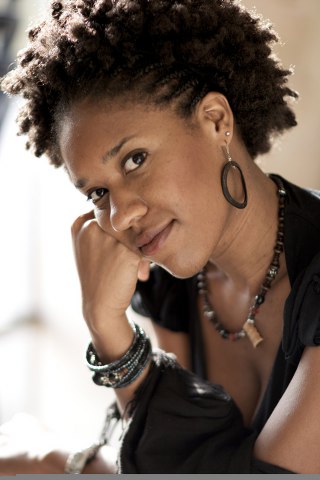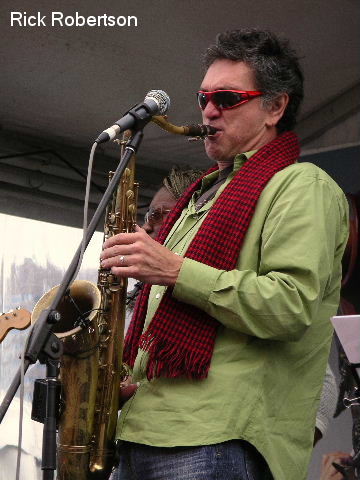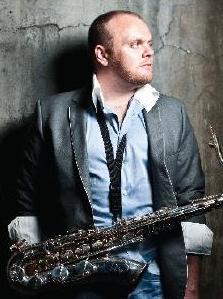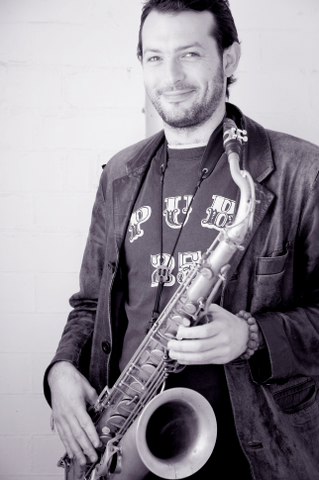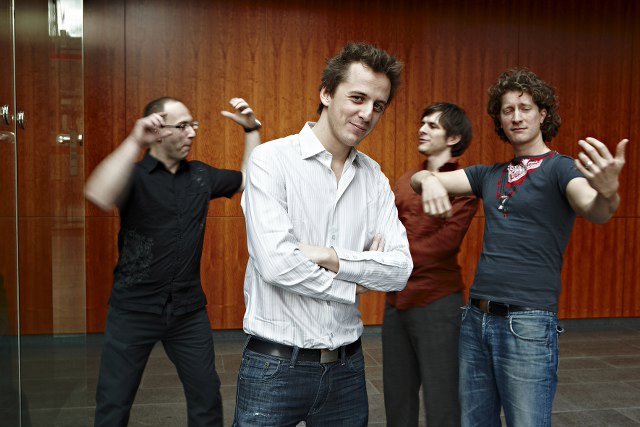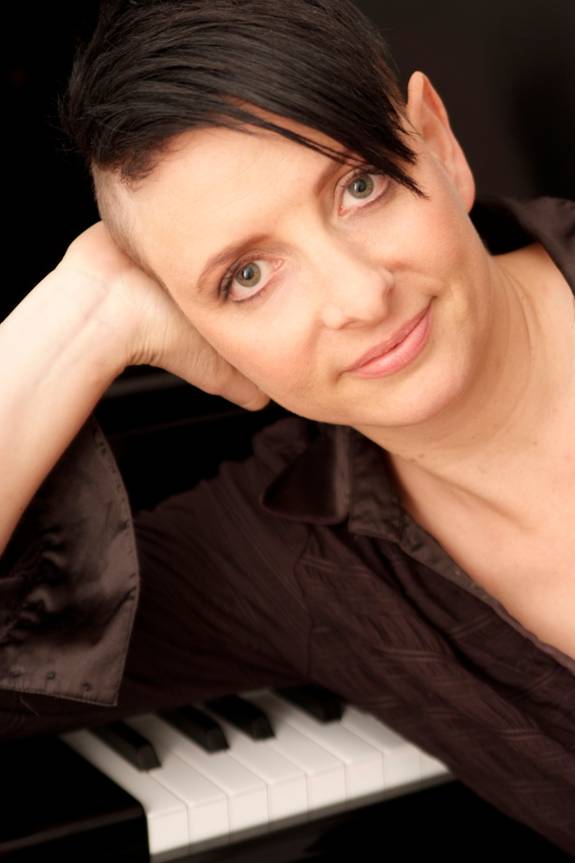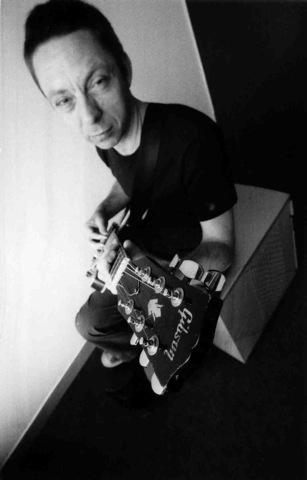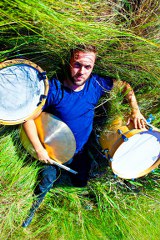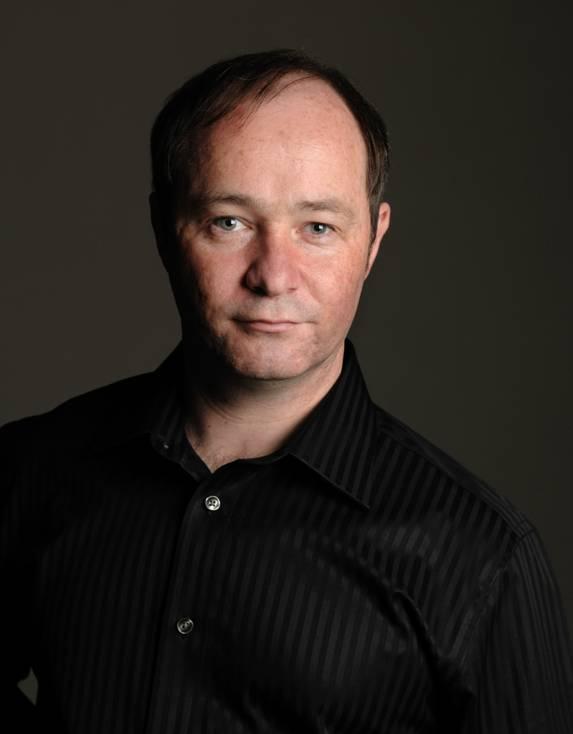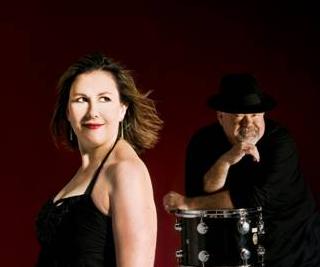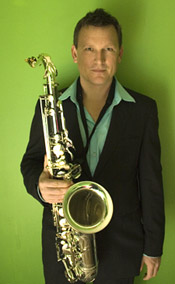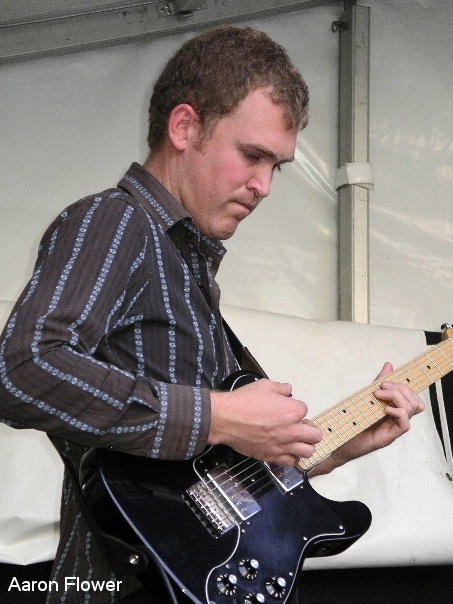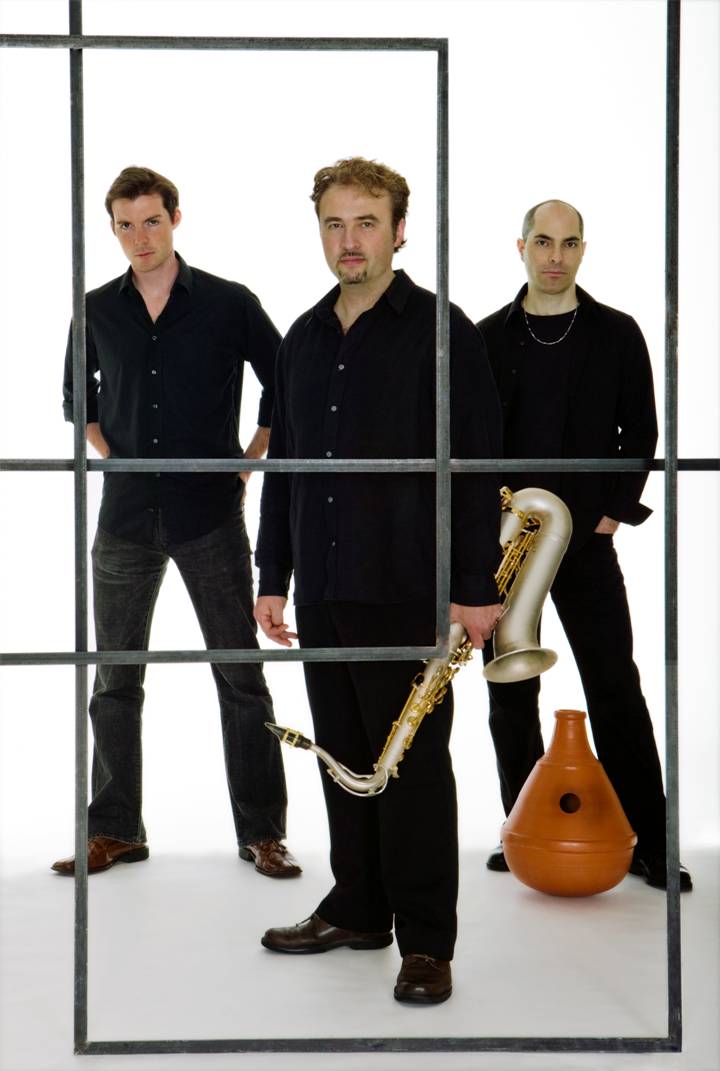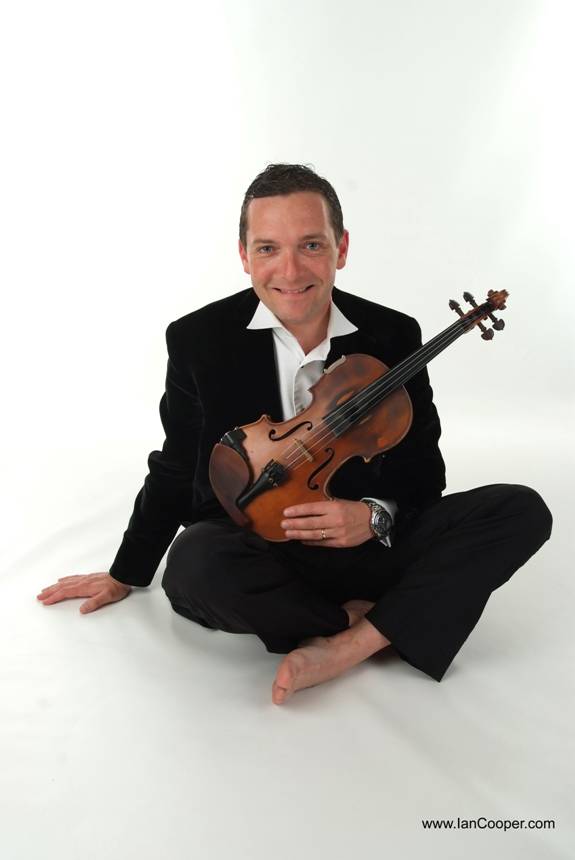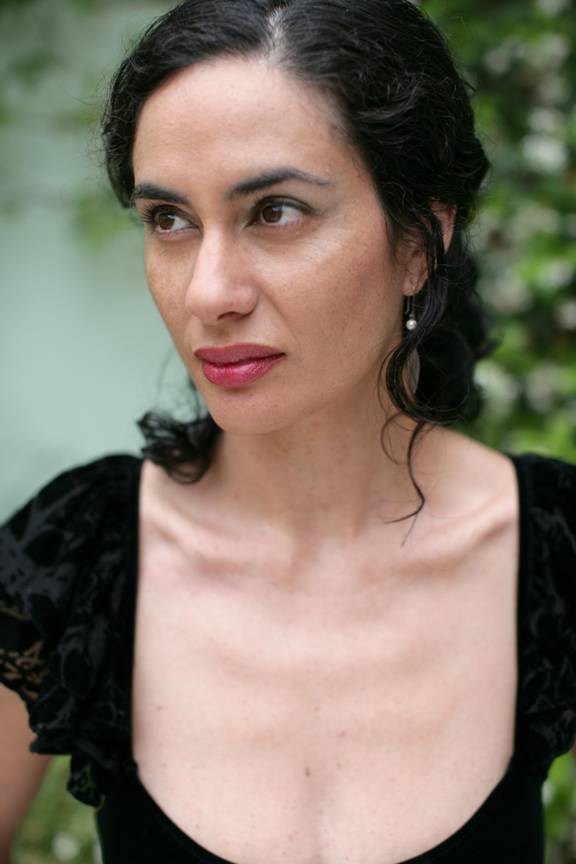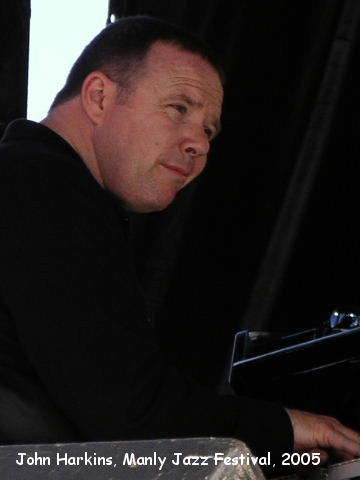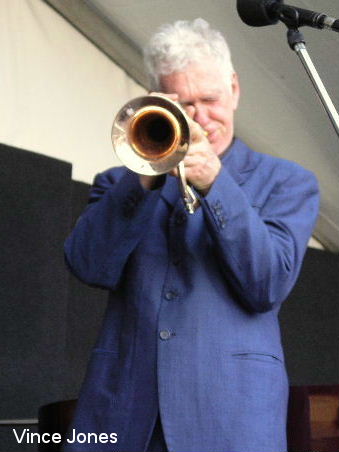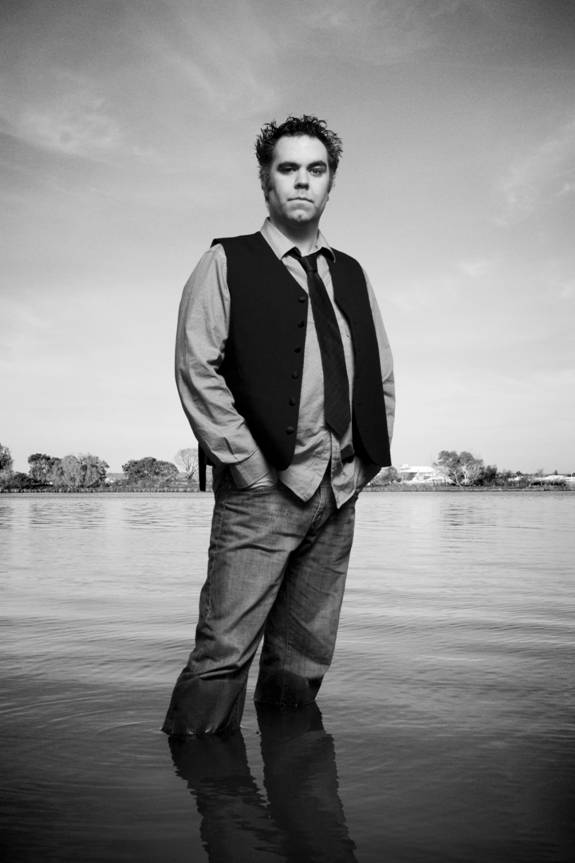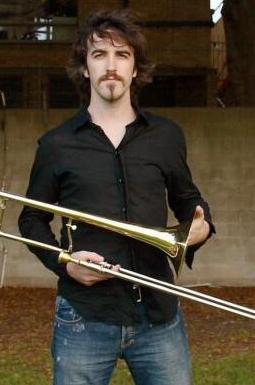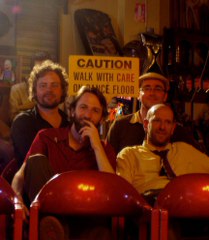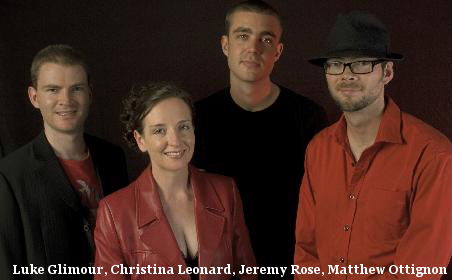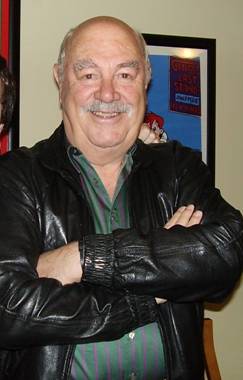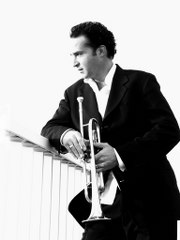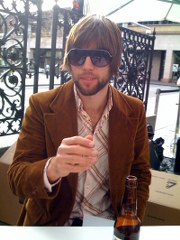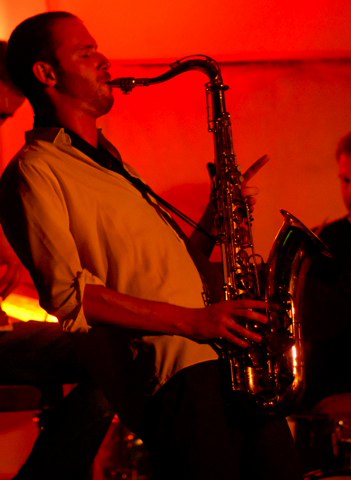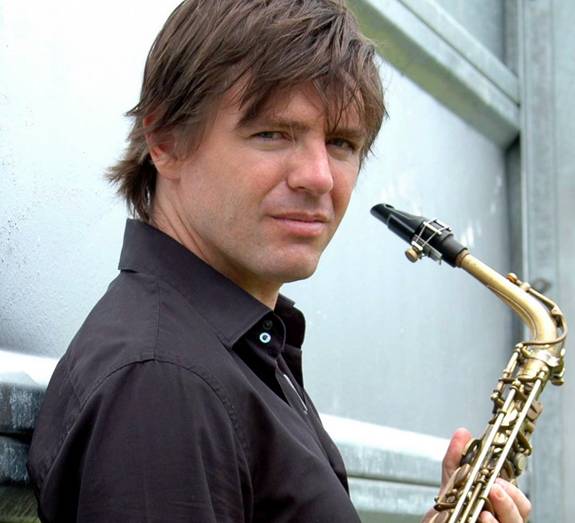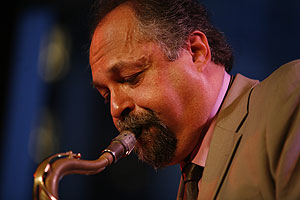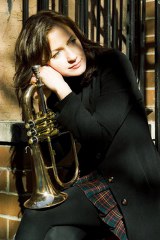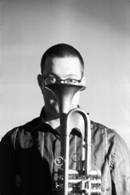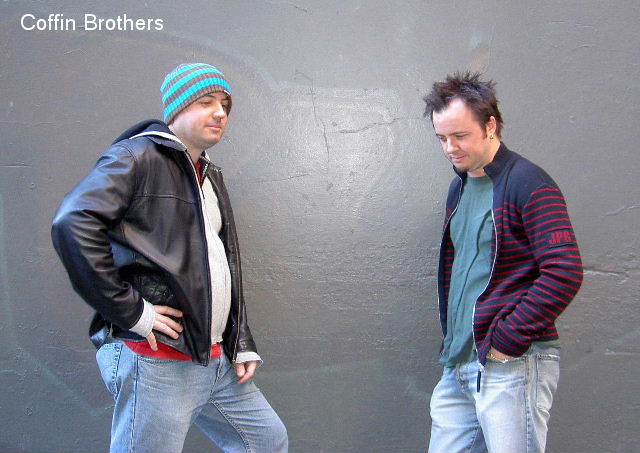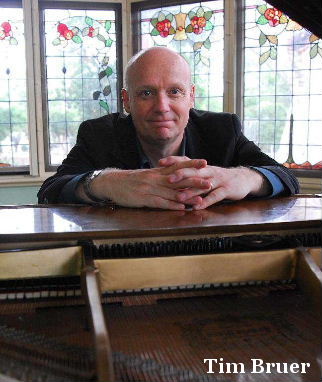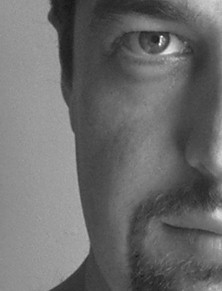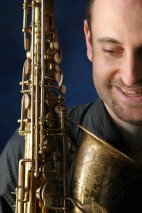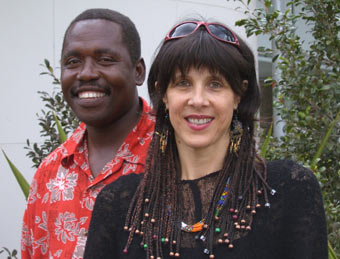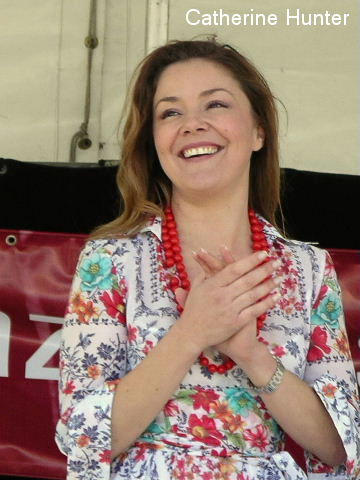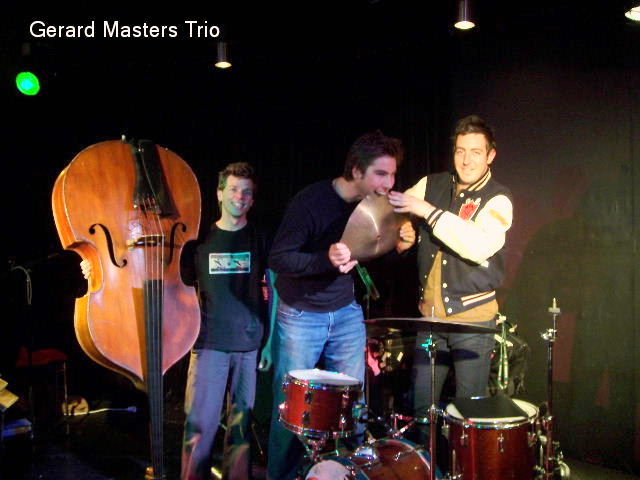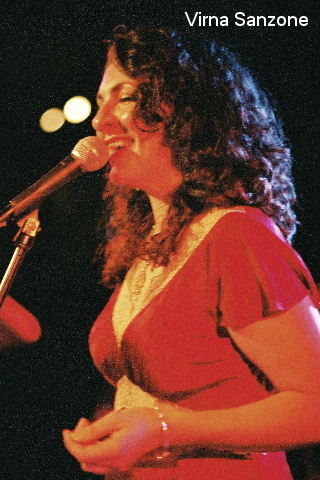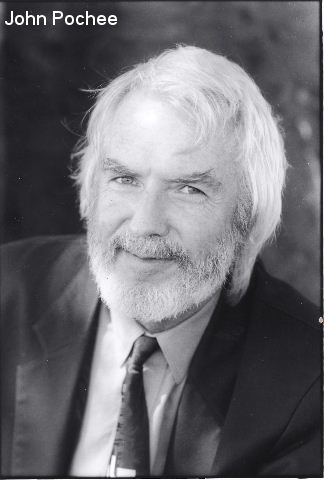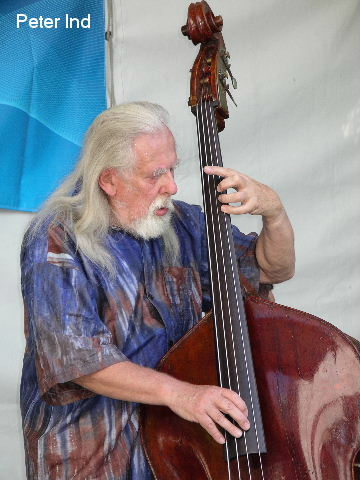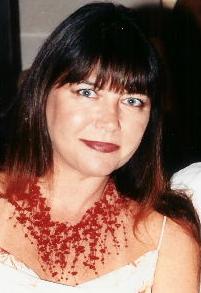Frank Presley's interview with vocalist Melody Beck 14th March 2023
Back to Index
|
Frank Presley's interview with saxophonist and composer Jason Bruer 6th June 2023
Previous interview - 30/7/2019
Previous interview - 7/8/2014
Previous interview - 10/5/2009
Back to Index
|
Frank Presley's interview with pianist, composer and improviser Mark Isaacs 20th Dec 2022
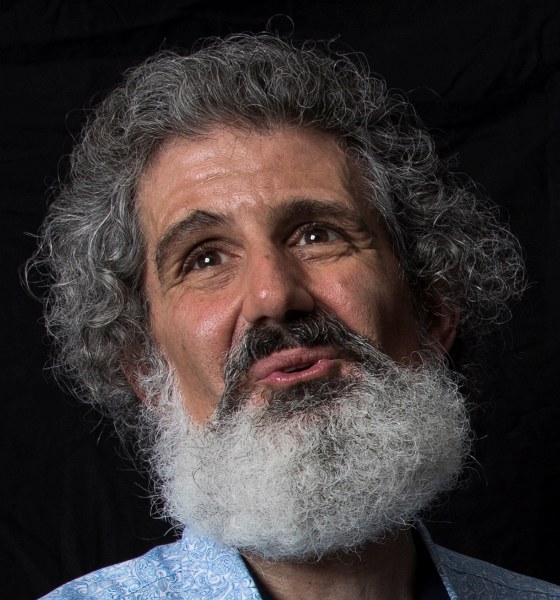 |
'...I don't only apply my jazz knowledge to them, I also apply my classical knowledge to them as well...'
Listen whole interview |
Previous interview - 19/11/2019
Back to Index
|
Frank Presley's interview with bassist, composer and collaborator, Jonathan Zwartz 25th October 2022
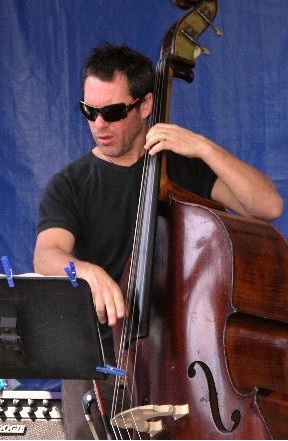 |
'...I did spend a year in New York trying to learn how to be a double bass player and ending up learning about life...'
Listen whole interview |
Previous interview - 31/5/2018
Back to Index
|
Frank Presley's interview with guitarist and composer Tim Rollinson 11th October 2022
Previous interview - 8/11/2010
Back to Index
|
Interview with saxophonist, composer and arranger Rafael Karlen 13/9/2022
Back to Index
|
Interview with saxophonist and composer Mark Ginsburg 6/9/2022
Previous interview - 18/02/2020
Previous interview - 13/09/2018
Back to Index
|
Frank Presley's interview with saxophonist Flora Carbo 23/8//2022
Back to Index
|
Frank Presley's interview with vocalist Gregg Arthur 16/8/2022
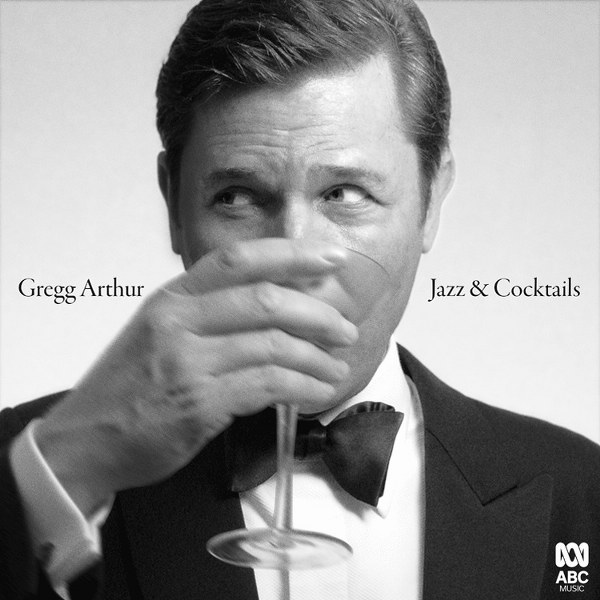 |
'...That Letter from [Tony Bennett], it's like having a letter from the Pope you know, it opens doors...'
Listen whole interview |
Back to Index
|
Frank Presley's interview with saxophonist, composer and bandleader Jeremy Rose 9/8/2022
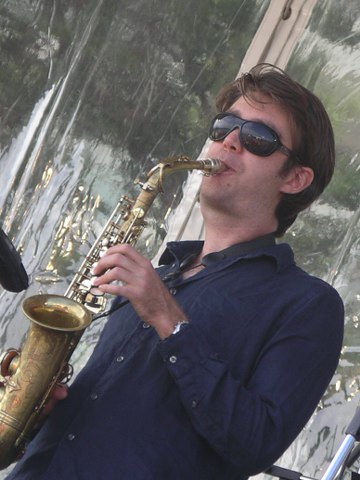 |
'...This idea of hyper-connectivity has also come at the cost of some of us never feeling so alone...'
Listen whole interview |
Previous interview - 24/11/2011
Back to Index
|
Frank Presley's interview with vocalist, trombonist and band leader Dan Barnett 2/8/2022
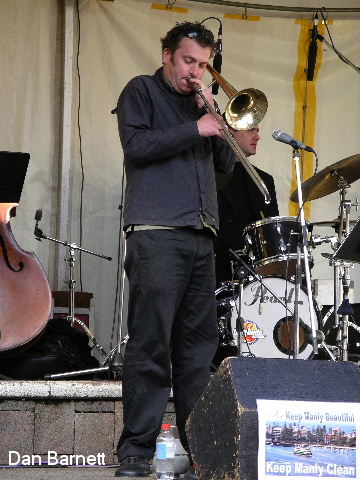 |
'...I also liken it to Preservation Hall in New Orleans. It's sort of our version of that...'
Listen whole interview |
Previous interview - 1/11/2018
Back to Index
|
Frank Presley's interview with bassist and bandleader Dr Michael Galeazzi 31st May 2022
Back to Index
|
Frank Presley's interview with Steve Fitzmaurice
Back to Index
|
Frank Presley's interview with saxophonist and composer Matt Ottignon 22/3/2022
Back to Index
|
Frank Presley's interview with trumpeter and composer Tom Avgenicos 15/2/2022
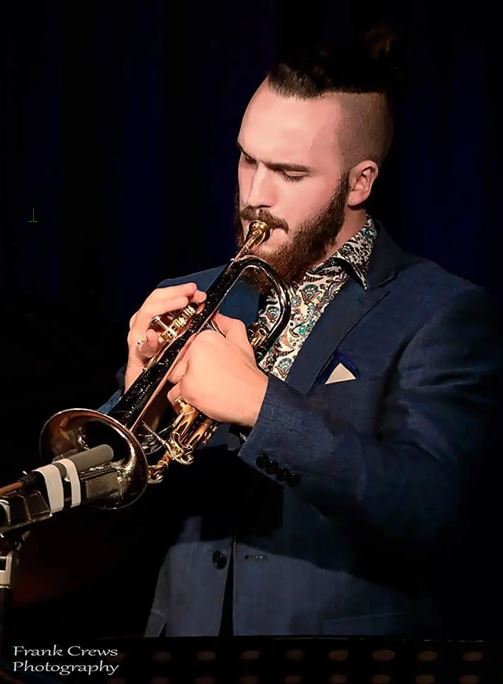 |
'...If I'm having fun, I'm playing with my friends and we're creating something together that's new, fresh and exciting, I think that's successful"...'
Listen whole interview |
Back to Index
|
Frank Presley's interview with pianist and composer Amanda Suwondo 18/5/2021
Back to Index
|
Frank Presley's interview with pianist and composer Zela Margossian 18th May 2021
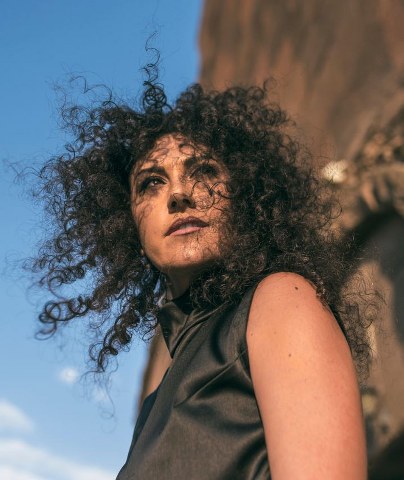 |
'...We always knew that arts always came second or third, we have never gotten that much support anyway...'
Listen whole interview |
Back to Index
Previous interview - 30/01/2019
|
Frank Presley's interview with guitarist and composer Tony Barnard 13/4/2021
Back to Index
|
Frank Presley's interview with clarinetist, saxophonist and composer Paul Cutlan 2/02/2021
Back to Index
Previous interview - 29/05/2005
|
Frank Presley's interview with pianist, singer and songwriter Frances Madden 17/11/2020
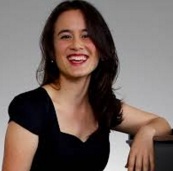 |
'...This is a song about trusting the feeling of the music to show you the way or trusting your feminine intuition...'
Listen whole interview |
Back to Index
Previous interview - 01/10/2019
Previous interview - 15/10/2015
|
Frank Presley's interview with saxophonist and composer Stuart Vandegraaff 13th Oct 2020
Back to Index
|
Frank Presley's interview with singer/songwriter Dianne Cripps and saxophonist and composer Tim Clarkson 3/3/2020
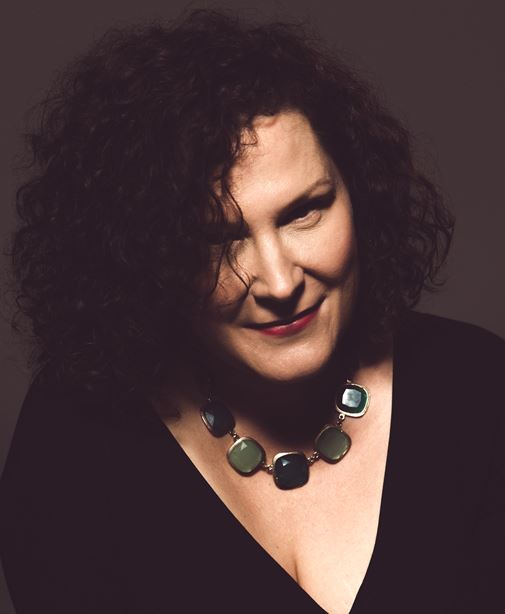 |
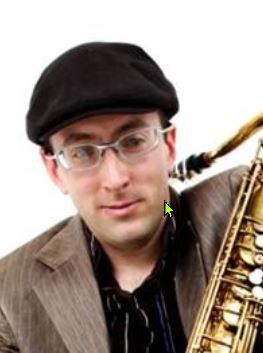 |
'...I thought that I would be a therapist by day and that I would be a classical saxophonist by night...'
Listen whole interview |
Back to Index
|
Frank Presley's interview with multi-instrumentalist, composer and educator Don Burrows 09/11/1996
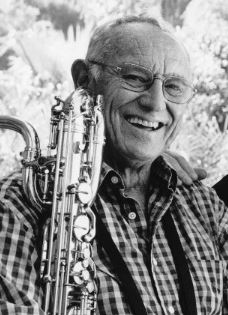 |
'...Do you know why I'm here? Because a [musician] came to my school when I was 9 and it's given me a whole life in music...'
Listen whole interview |
Back to Index
|
Frank Presley's interview with composer and pianist Mark Isaacs, saxophonist and composer Loretta Palmeiro 25/2/2020
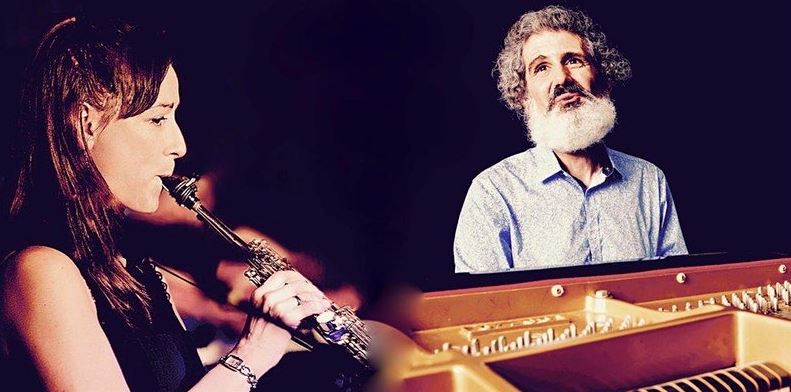 |
'...It goes a lot of places, It can be quite lyrical and it can also get quite intense and passionate...'
Listen whole interview |
Back to Index
|
Frank Presley's interview with saxophonist and composer Mark Ginsburg 18th February 2020
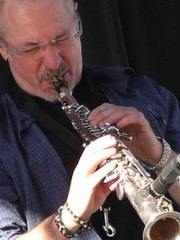 |
'...The minute you use the term jazz, it conjures up so many different things for different people...'
Listen whole interview |
Previous interview - 13/09/2018
Back to Index
|
Frank Presley's interview with drummer Hamish Stuart 4/2/2020
Back to Index
|
Frank Presley's interview with pianist and composer Mark Isaacs 19th November 2019
Previous interview - 05/05/2009
Back to Index
|
Frank Presley's interview with drummer Andrew Dickeson 1st October 2019
 |
'..."It would be great if we had another international festival like Melbourne does or even Brisbane now to supplement [the Manly Jazz Festival]...'
Listen whole interview |
Previous interview - 26/9/2011
Back to Index
|
Frank Presley's interview with saxophonist Nick Hempton and Vocalist/Pianist Champian Fulton 8th October 2019
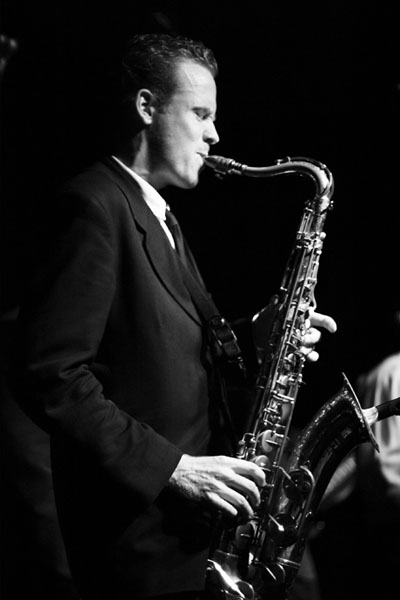 |
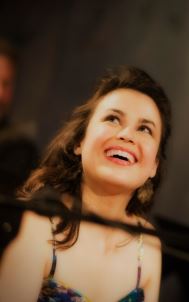 |
'...I think jazz is one of the most beautiful and exciting human endeavours we have...'
Listen whole interview |
Back to Index
|
Frank Presley's interview with pianist, singer and songwriter Frances Madden 1st October 2019
Back to Index
Previous interview - 15/10/2015
|
Peter Wockner interview with guitarist and composer Pat Metheny 16 September 2019
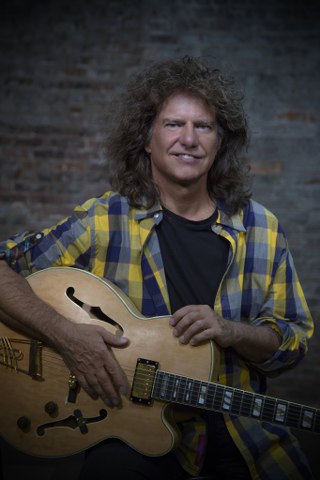 |
Peter Wockner: Last year during a speech for the Society for Neuroscience Conference you stated that in that past month you had played 30 concerts in 28 cities from Maine to Hawaii. That busy performance schedule is not that unusual for you. With so much live performance and inherent improvisation in your music how do you avoid the traps of repetition?
There is a kind of mythology that surrounds the word Improvisation as viewed from the outside of this general area of music that sometimes gives it a kind exalted status that doesn’t really match up with the realities of what happens on the bandstands of even the best improvisers.
Each of us has a vocabulary and a range of fluency that depending upon the material at hand has perimeters that can almost be measured as you go along. Of course we are all constantly working to expand our vocabulary and our fluency and are forever pushing against those perimeters, but over the course of 100 or so gigs, we are where we are for the most part.
I often talk about this with musicians who join me along the way. There is a certain kind of thing that happens if you do 10 to 20 gigs, a very different thing emerges as you get into the 30 to 100 gigs and then yet another kind of energy (and the required discipline/awareness that comes with it) needs to be there for gigs 100-200 or so.
|
I often think of those scenes in the film “Round Midnight” where the French jazz fan comes up to Dexter Gordon after a set saying “Tonight you played like gods…”….well, maybe, but that was the 4th of 6 sets that they played that night and had done that for the past 6 nights in a row.
From the musicians standpoint it is literally impossible to re-invent your entire vocabulary every time you play - no matter if you are the Art Ensemble of Chicago or Oscar Peterson or whoever. That is particularly true if you do hundreds of gigs.
The point for me is more the “how/why” than the “what”. At a certain point, you are playing for yourself, the other musicians and maybe your personal god :) with an awareness and (hopefully) consideration of the audience. Music is unusual in this way. At least a certain level of music seems to demonstrate this to me.
Basically you are just standing there, listening like everyone else. The music eventually becomes a kind of envelope for you to just be there. Your presence as a listener/player allows the music to reveal itself. It is always more about it that you.
So, the shorter answer to your question is this; there is a version of infinity in each note. We have a tendency to look at infinity in terms or things being wider and more and more varied and “expansive”. But in fact there is the same and maybe more applicable version of infinity that has to do with going deeper. That is what I am always looking for. That especially applies as a specific answer to your question.
PW: How do you judge the success of a live performance?
There are the obvious things about how well you are able to deal with the material at hand and so forth, but honestly I would say that I am not sure I would ever be able to bring any real objectivity to that question - especially 50 years or so in. My personal connection to music is very hard to express outside of the syntax of the music itself, so any thoughts I might be able to bring in the form of judgement would almost have to be expressed in music itself.
PW: The quartet line up for this tour including Linda Oh and Gwilym Simcock and of course your long-time collaborator Antonio Sanchez, sounds like it will be one of the most anticipated concerts for Australian audiences for years. How important is it for you that both Linda and Gwilym having a historical affinity with your music, and what are your expectations for this tour?
Gwilym shares something with another one of my favorite piano players, Brad Mehldau, in that both he and Brad claim to have been very inspired to take up this music from hearing some of my records as young kids. Gwilym has a really deep understanding of the sensibility of what my thing invokes and requires. But beyond that, he is just an fantastic overall musician. Piano is an odd instrument to me in general - for the most part I have always kind of preferred a very open environment where the melodies express the harmony in an intrinsic way. But with the right player and the right sensitivity, guitar and piano together can be a fantastic combination.
Like Gwilym (and Antonio too actually) Linda comes with a real deep knowledge of my thing from her early days as a musician. She told me she came of age listening to my trio record with Dave Holland and Roy Haynes, Question and Answer and she really understands that area as well as the other things I have done over the years. Besides just being the total badass that she is, that makes her especially a great fit for this.
These days it actually isn’t that hard for me to find younger musicians who know the tunes and the fundamentals of how to play in the general zone of my thing. Actually the thing that is hardest for me to find in musicians is the ability to play simple. I can find many people who can do all kinds of tricky stuff and have their cute/hip arrangements of standards in 15/8 or whatever - there are dozens of folks on all instruments like that. But to find someone who can do all that and also play really really simple…I can almost count them on one hand.
PW: You also mentioned during that speech for the Society for Neuroscience that you have kept a journal for the past 35 years of every concert performed. Can you describe the kinds of insights of your own musical character that you reap over such a long period of time by dedicating yourself to such a practice?
I always encourage folks to write things down. Musically and otherwise. There is a certain kind of gravity that accompanies the act of going to the trouble of documenting something that I have found quite useful. Sometimes you have a feeling about something. By engaging in the act of writing it down you can get a bit closer to the specifics.
PW: What importance do you place on the academic analysis of historical periods (eras) of improvisation in jazz. To elaborate, in what context can such analysis be meaningful when improvisation is unique to an individual rather than a period in time?
Honestly, I don’t think I have ever once heard anyone play authentically in a “historically” correct period style of some previous era. Given the nature of what this music demands, I simply don’t think it is possible. That is a big part of the beauty of this music - it only happens once. That said, it is absolutely incumbent on all of us to understand in as much detail as possible the way the language has developed over the history of the music.
PW: In what ways has the artistic community in the USA responded to the Trump presidency?
Sadly it reveals to the world what most of us in this community already knew. But we are going to continue the fight that has been going on from the beginning.
PW: If you have some down time in Australia between concerts how are you looking to spend that time?
One of my daydreams is to move to Perth. I love that place. But honestly, on the road my focus is on one thing and one thing only - what can I do to make the gig as good as it can possibly be?
Previous interview - 10/9/2014
Back to Index
|
Frank Presley's interview with pianist and composer Marc Hannaford 6th August 2019
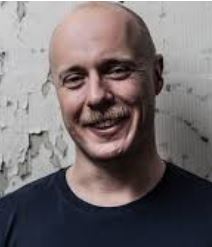 |
'...Not just to be able to play it, but to really feel it and to really own it, and to embody it at a deep level...'
Listen whole interview |
Back to Index
|
Frank Presley's interview with saxophonist and composer Jason Bruer 30th July 2019
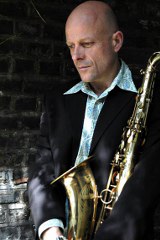 |
'...You never quite know what's gonna happen and that's what jazz is about to me, the unpredictable can be just wonderful...'
Listen whole interview |
Previous interview - 7/8/2014
Previous interview - 10/5/2009
Back to Index
|
Frank Presley's interview with drummer Miles Thomas 2nd July 2019
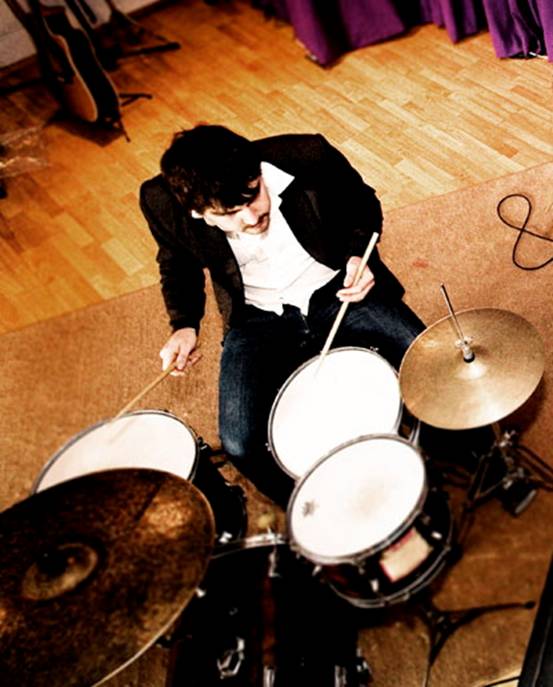 |
"I often think that they named me after the unit of measurement - that's generally my response to that question"
Listen whole interview
|
Previous interview - 25/7/2011
Back to Index
|
Frank Presley's interview with drummer and composer Michael Pigneguy and singer Alemay Fernandez 4th June 2019
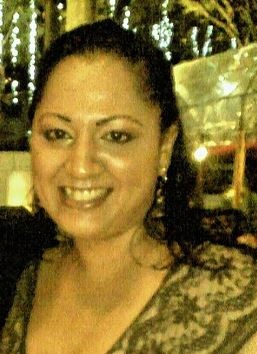 |
'...One of the very early ones was Dave Brubeck but that had to be balanced with KISS...'
Listen whole interview |
Back to Index
|
Frank Presley's interview with saxophonist and composer Mark Ginsburg and pianist and composer Vittorio Mezza 28th May 2019
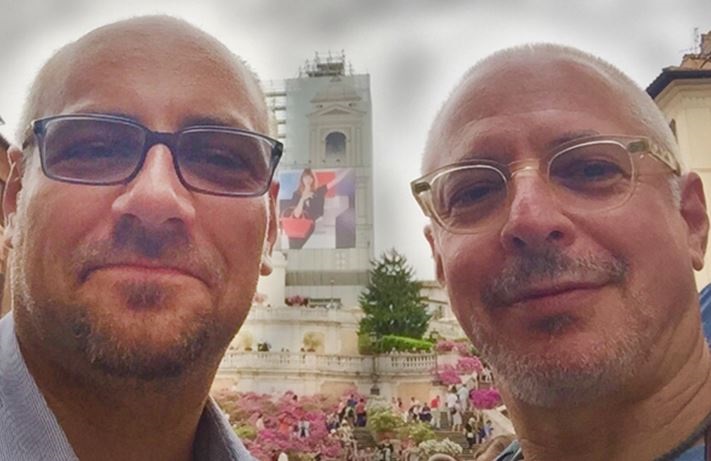 |
'...I had my saxophone on my back in a PVC pipe that Vittorio helped me get in Rome...'
Listen whole interview |
Back to Index
|
Frank Presley's interview with pianist and composer Zela Margossian 13th January 2019
 |
'...When I was growing up in Beirut, I never thought that another boy would play better than me, it never crossed my mind...'
Listen whole interview |
Back to Index
|
Frank Presley's interview with trombonist, singer and band leader Dan Barnett 1st November 2018
Back to Index
|
Frank Presley's interview with saxophonist and composer Mark Ginsburg 13th September 2018
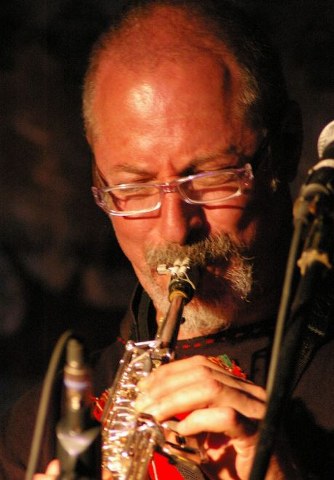 |
'...The Music draws us both in and it's different every time we play it and it's beautiful...'
Listen whole interview |
Back to Index
|
Frank Presley's interview with saxophonist and composer Evan Harris 2nd August 2018
Back to Index
|
Frank Presley's interview with singer Carmen Bradford 15th June 2018
Back to Index
|
Frank Presley's interview with bassist and composer Jonathan Zwartz 31st May 2018
Back to Index
|
Frank Presley's interview with singer and composer Kurt Elling 22nd May 2018
Back to Index
|
Frank Presley's interview with vocalist and songwriter Tessa Souter 29th March 2018
Back to Index
|
Frank Presley's interview with London singer and multi-instrumentalist Jacob Collier 14th March 2018
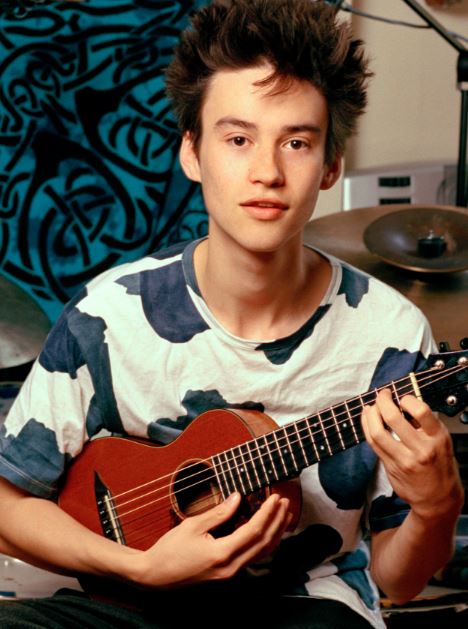 |
'...Something Quincy often says is "you can never be more or less as a musician than you are as a human being"...'
Listen whole interview |
Back to Index
|
Frank Presley's interview with singer, songwriter, pianist and visual artist Phoebe Day 19th October 2017
 |
'...Ella Fitzgerald - she was such an instrument and she really used her voice as an instrument and that's what really inspired me...'
Listen whole interview |
Back to Index
|
Frank Presley's interview with trumpeter and composer Ellen Kirkwood 3rd August 2017
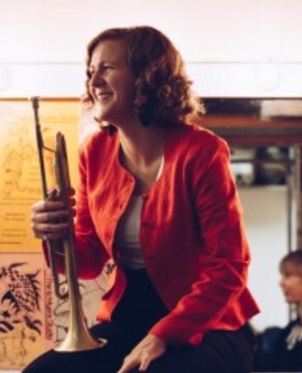 |
'...Someone once said to me "if I shut my eyes I could swear it was a man playing the trumpet"...'
Listen whole interview |
Back to Index
|
Frank Presley's interview with with vocalist Kavita Shah 1st June 2017
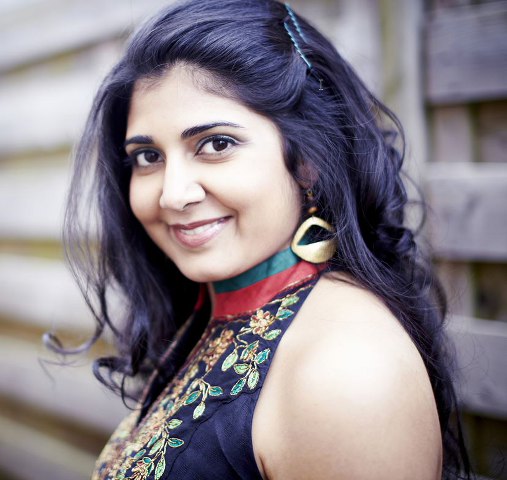 |
'...The neighbour down the hall from me Patience Higgins is a great saxophone player who played in the Duke Ellington Orchestra...'
Listen whole interview |
Back to Index
|
Frank Presley's interview with flautist, pianist and composer Keyna Wilkins 18th May 2017
Back to Index
|
Frank Presley's interview with Matt Keegan and Deoashish Mothey 9th March 2017
Back to Index
|
Frank Presley's interview with composer and saxophonist Phillip Johnston 9th Feb 2017
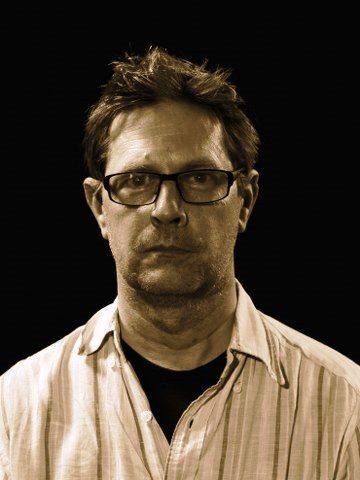 |
'...The work of Jelly Roll Morton is equal to any classical composer that you can name...'
Listen whole interview |
Back to Index
|
Frank Presley's interview with singer Greg Poppleton 12th Jan 2017
Back to Index
|
Frank Presley's interview with singer and composer Kurt Elling 13th May 2016
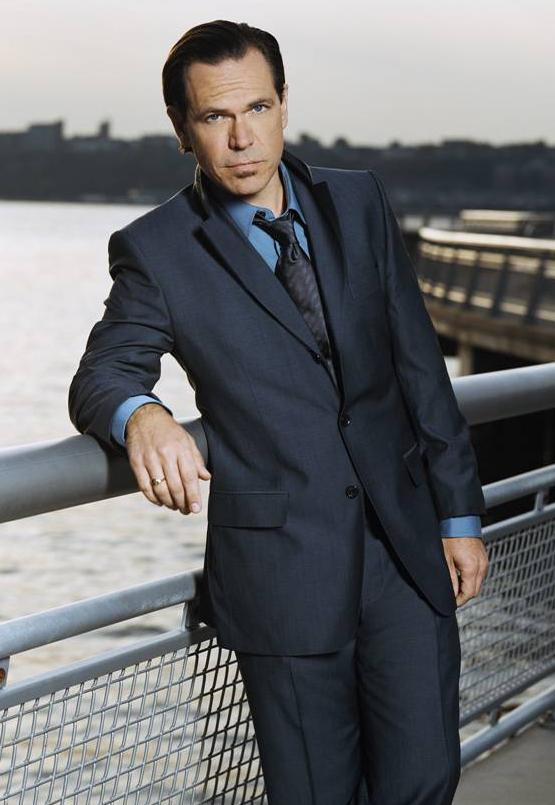 |
'...Anybody who is gonna be a swinging singer with some power and know how to drive a big band around, you're gonna have to listen to Sinatra...'
Listen whole interview |
Back to Index
|
Frank Presley's interview with pianist and composer Mike Nock 11 February 2016
Back to Index
|
Frank Presley's interview with saxophonist and composer Gai Bryant 28th January 2016
Back to Index
|
Frank Presley's interview with saxophonist Steve Fitzmaurice 21st January 2016
Back to Index
|
Frank Presley's interview with pianist and composer Sean Foran 5th November 2015
Back to Index
|
Frank Presley's interview with pianist, singer and songwriter Frances Madden 15th October 2015
Back to Index
|
Frank Presley's interview with Brazilian singer songwriter Juliana Areias 10th September 2015
Back to Index
|
Peter Wockner’s interview with pianist and composer Stefano Bollani 12 May 2015
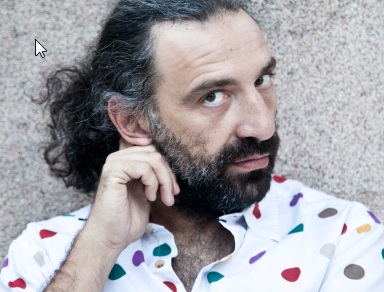 |
Peter Wockner:
You started playing music at the tender age of six. Do you recall the moment when you realised that you were improvising on the piano and can you describe how that made you feel?
Stefano Bollani: I don't, actually. But I guess I started improvising immediately, as any other child would do in front of all those keys.
PW:
The trumpeter Enrico Rava has been such an important mentor to you. Can you describe the influence he has had on you and what are his qualities that endears him to so many jazz fans?
|
SB: He's got a unique voice in modern jazz. Basically, the main point is that he plays as he speaks. Music is clearly a statement he's making. That makes the people gather around, I think.
PW:
What are the key elements of your music that allows it to communicate with the audience?
SB: If I knew the key elements, that would be really boring for me. No idea.
PW:
You’ve been known to say that music for you has no boundaries and proof of this was your performance on grand piano in a favela in Rio de Janeiro. Can you describe the reaction by the people to this performance and inspiration you must have given them?
SB: That was great. Everybody seemed happy to be there. That' s what I' m longing to see in any kind of concert: joy and happiness
PW:
Unfortunately some people still like to put music and musicians into pigeon holes as a convenience to their marketing strategy or whatever. Has this been a help or a hindrance to you over the years?
SB: I never felt in a pigeon hole so I can't say anything on the subject. Anyway, as far as I can say, being held or kept somewhere has never been particularly useful in somebody' s life.
PW:
In the marketing of the Stefano Bollani product what 21st century mechanisms to you use to sell yourself. For example is social media all important or is it just part of the strategy?
SB: I love marketing strategies, as soon as I' m not involved! Life is not that long.
PW:
Your current album “Joy In Spite of Everything” sort of sums up the role of music in today’s world. It would seem that quite often it is the only thing positive happening on the planet. What is the role of music today and has its role changed over the expanse of time?
SB: Music can relax an incredible amount of your brain and stimulate other parts which are usually blocked.
Music can help you develop the feeling you're entwined to the Big Spirit. Music can let you spend the most wonderful time you can imagine. Who could ask for anything more?
PW:
You are one of the modern collaborators in jazz. Which of your musical collaborations has given you the most satisfaction?
SB: nrico Rava. We started playing together in 1996 and never quitted.
PW:
What can Australian audiences expect in terms or repertoire from your forthcoming tour?
SB: I think they should not expect anything but having fun. Hamilton and me, we never decide the songlist or the atmosphere we're gonna set. It happens on stage. He' s a fantastic musician and a totally cool human being: you' re all gonna be bandolim' s fans after the concert.
Back to Index
|
Peter Wockner’s interview with vocalist and composer Kristin Berardi 24 April 2015
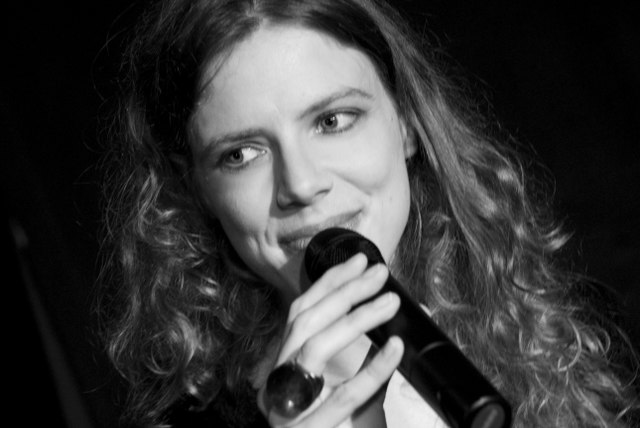 |
As part of the 2015 Capital Jazz Project, Queensland trio Sean Foran, Kristin Berardi and Rafael Karlen premiere their ANZAC Centenary commission Memory & Emotion drawing on sounds from jazz and folk music and themes from ANZAC letters;
Peter Wockner: Your new project entitled ‘Memory and Emotion’ draws its inspiration from ANZAC letters. How was this idea conceived and what support have you received?
|
Kristin Berardi: It was conceived by Sean Foran who approached Rafael Karlen and myself to join him in this journey of creating a musical output tied directly to the ANZACs. This is being done through studying letters of correspondence throughout the war and sitting with those words and concepts explored in them and to then through written music, words and improvisation and interplay between us, depict these emotions and experiences.
PW: These compositions derive themes of hope, fear, separation, loss, love, and conditions of war. There’s quite a broad range of emotional palette to portray here. Can you tell us about the compositional process for this project and the collaborative aspect with Rafael and Sean?
KB: We have been to the State Archives, the State Library in Brisbane and also looked through the online archives from the War Memorial Museum in Canberra, and found letters that have resonated with us personally; not always from those at war writing home, but from family members left behind, or those too young to go to war, begging to be allowed to serve, or from people writing to government offices requesting information. We have then sat with these letters alone, coming up with musical ideas and sketches for them. We keep meeting together to make sure we aren’t coming up with the same sounding material, and also encouraging one another in this very delicate process. We are also meeting together to co-write some works also, and to hopefully, in the recording process, be able to come up with some interplay which is improvised, which is something we all do and would like to include on this album, if it works on the day ?
PW: More broadly, what role do you believe music can play in pacifying cultures or society?
KB: I think music is a very healing tool. It is something which can reach beyond people’s race, beliefs, preconceptions, culture, language…..it is for all people because it connects us at our core – at our emotional core, if we are willing to be vulnerable. I think music can soothe but more importantly allow us to feel what we need to feel, if we allow it to. Which is perhaps why, at this time of the ANZAC centenary, this project can hopefully be of some significance and comfort to some people.
PW: On the face of it, there must have been some intense thought and consideration on a number of levels with a project of this nature. Firstly the idea of maintaining the entertainment factor of the music for the audience while dealing with such tragic themes but secondly assuring that the project does not glorify war or that you are seen to be capitalising on the centenary. Describe how you deal with these balancing acts?
KB: Indeed - I know I have been talking to Sean and Raf, and also close friends about these exact matters. For me, I just hope that we can perhaps put a different slant or focus on these terrible events through acknowledging what has gone before, paying respect to it, resting in it, and learning from it, drawing what hope we can, and empathy for others who have been or are today being affected by some of life’s worst circumstances. But yes – even at this late stage in this project I am still grappling with these issues, which is a good thing that is still at the forefront of our minds. It keeps us treading respectfully and lightly, remembering the most important aspects of a project like this.
PW: Will there be a recorded life for this music beyond the scheduled live performances?
KB: Yes. We are recording the works as an album, as well as touring it around the country this year.
Back to Index
|
Frank Presley's interview with guitarist and composer Harry Coulson 2nd April 2015
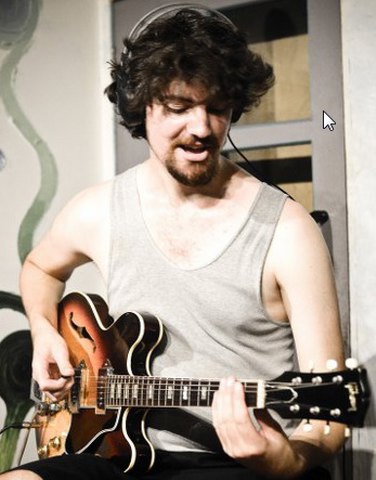 |
'...Bill Evans and Marc Ribot meet the Dirty Three is the best way I can describe it...'
Listen whole interview |
Back to Index
|
Frank Presley's interview with pianist and composer Matt McMahon 15 March 2015
 |
'...Part of being a jazz musician, I mean you're already miles away from the mainstream...'
Listen whole interview |
Listen Matt's previous interview (14/9/2009)
Back to Index
|
Peter Wockner's interview with composer Gary Daley 2 March 2015
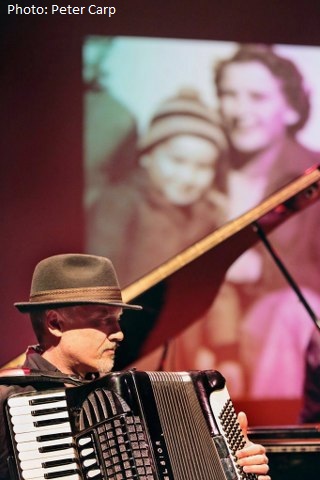 |
Peter Wockner:
The idea of music as a sanctuary is, I dare say, a common theme for many people. A place where one can find peace and harmony. I can certainly relate to that. It wasn’t however the reason I first became interested in music, that was through the influence of my father. How did you become interested in music and how did your involvement develop?
Gary Daley:
My first impulse to play an instrument came after hearing the piano accordion on TV. I was around 8 years old and was instantly hooked by the colour and sound of this instrument. My parents fostered my interest, bought an instrument and enrolled me in lessons. It was my grandfather, however, who showed the most enthusiasm for my musical development. He was an amateur musician, completely self taught with loads of natural ability. I guess he could see in me the possibility of achieving something he never could. His commitment was central to my development.
PW:
Given the compositions on ‘Sanctuary’ were written during both times of personal stress and elation, there must be qualities of pleasure and pain in this music.
|
Can you describe how you used your energies to write this music?
GD:
I was experiencing two extremes of life ie my mother suffering with a terminal illness and a new beginning with the birth of my granddaughter. Obviously these are all consuming events and will illicit many different responses in people. To some degree your reaction comes down to where your focus is and mine was to concentrate on what we had and could still celebrate not on what we were losing. There were many things that where difficult and distressing about Mum's journey but in the end you try to tackle it head on and make the best of the situation. I was not naive or unrealistic about it but I chose to make this part her life as positive as I possibly could. This is primarily where the title of this work, Sanctuary, came from. It was about creating an environment where she was safe, as happy as possible and cared for. Pretty much the same things I wish for my granddaughter and this is where my energies were concentrated. This inevitably lead to me contemplating many other familial connections and my own childhood history which also feed into the music. The music has a positive spirit as this was ( is ) my orientation. For the most part I'm an optimist and I guess this comes out in the music.
PW:
What particular qualities in your accompanying artists you’ve chose for this project were you looking for?
GD:
I'm drawn to the idea of the marriage of disparate musical traditions. This in turn leads into bringing together performers from different traditions. The Sanctuary band is eclectic and features performers with backgrounds in classical , jazz , bluegrass/roots and world music genres. They are a diverse group of musical personalities and I deliberately chose them for this reason. My listening, practise and study of music ranges widely and I hope this naturally feeds into my music, however, the genre hopping does come with risks and dangers regarding finding a workable synthesis. The common denominator with the artists in the Sanctuary band is improvisation and an eagerness from each performer to work with people from other traditions.
PW:
You’re talents span across both piano and piano accordion. Do you have any particular preference for either instrument or does it depend upon other factors such as the type of material you’re performing?
GD:
I don't in think terms of preferences regarding the accordion or piano. The piano of course is the most flexible of instruments but I'm constantly surprised at how the accordion can insinuate itself in so many musical situations with surprising results. I try not to limit the possibilities or make hard and fast decisions about repertoire and instrument choice. Notwithstanding, there are significant differences between accordion and piano ie one is based on percussion and the other reeds and air with no sustain and this does sometimes affect ones choices. In the previous question I talked about marrying different traditions and players in unexpected ways & I have a similar approach with the instruments I play.
PW:
Ultra high fidelity is gaining some traction in the market, possibly as artists discover a niche against the contrast of mediocre mP3 sound quality. What was your primary motivation to record this way and how would you describe the tangible differences a listener can expect from a recording made with ultra high resolution?
GD:
Recording Sanctuary was a collaborative exercise between myself, engineer Ross A'hern and musician/producer Ben Gurton. Their company, Mir Creation, is focusing on high res, surround sound recordings. I am attracted to the idea of representing every possible nuance of sound and creating an immersive experience for the listener which can be achieved recording at 24bit/192khz. They and I strongly felt the Sanctuary project ideally suited this approach. In addition I became very excited about finding a space which in affect could become an active participant in the process. Almost like another instrument . We found this in the beautiful Cerretti chapel in Manly NSW. The acoustic nature of the instruments were perfectly suited to the acoustic of this space and the intent was to capture the ensemble sound in as natural way as possible. One of my ideas in this music was to create an ensemble sound which to me is the sonic embodiment of a Sanctuary ie a harbour or safe place. The marriage of this concept with a physical Sanctuary such as the chapel and surround sound presented a tantalising opportunity to more fully realise the concepts behind the music.
PW:
What plans are in store for the future of this project beyond the CD launch?
GD:
In collaboration with Mir Creation I am hoping to release a surround sound version of the recording in the near future. More performances are planned as well. In addition I'm working on another project for the Sanctuary band. I believe it is a unique ensemble on the Australian scene.
Back to Index
|
Frank Presley's interview with guitarist and composer Nic Vardanega 19th February 2015
Back to Index
|
Frank Presley's Interview with pianist and composer Casey Golden 29th Jan 2015
Back to Index
|
Frank Presley's interview with trombonist and composer Ben Gurton 18th December 2014
Back to Index
|
Frank Presley's interview with with singer, pianist and composer Sarah McKenzie 6th November 2014
Back to Index
|
Frank Presley's interview with pianist and composer Steve Barry 9th October 2014
Back to Index
|
Peter Wockner interview with singer, pianist and composer Sarah McKenzie 29th September 2014
 |
Peter Wockner:
Can you mark the moment in time when you decided to seriously pursue singing as a career?
Sarah McKenzie:
I heard Oscar Peterson play Night Train at the age of 13 and something in me resonated with the music. In that moment I thought, if I could copy Oscars playing exactly note for note I could be a great world class musician!
That was a little naive in my thinking, but not so far from the truth... Transcription is one of the best ways to learn the language of Jazz.
|
PW:
What or who turned you on to jazz?
SM:
My Australian Rock and Roll piano teacher Peter Thompson and Oscar Peterson.
PW:
Who do you count as the major influences on your singing style? Are they necessarily vocalists?
SM:
At first my love of singing came from my love of the piano players; Oscar Peterson, Gene Harris, Kenny Barron and Bill Evans. Now I count my singing inspiration from musicians like Shirley Horn, Sarah Vaughan and Dianne Reeves. They were masters of the voice, just as much so as any instrumentalist. They worked on their voice every day. Singing is a craft.
PW:
You were successful in winning the Best Jazz Album in the 2012 ARIA awards. How important is this kind of recognition?
SM:
It is an honour to be recognised for any body of work, and I certainly worked hard to bring 'Close Your Eyes To Life' It is an honour and it is very important. It is also important to keep growing and learning, and acknowledging that music is not about winning awards. It is a deep journey.
PW:
What are the most important elements for you in interpreting a song?
SM:
Technique - having the freedom to artistically get the notes you need to interpret the song Since coming to America I practise long tones/scales/arpeggios/studies 45 minimum every day so that I can rely on my instrument.
Colour - the voice uses the breath so many different colours of sound can be created. Nasal, glottal, breathy, clean etc. These are tools at a vocalists disposal. What kind of colour will best deliver the meaning of this phrase?
Phrasing - Which words will you emphasise in a phrase to convey the meaning you are trying to get across? "I am a fool in love" for example, I would have 'fool' elongated, made slightly breathy so as to really make you believe I am that fool in love. You have to make people believe.
You cannot rely on a 'voice' alone. For the truth, the real 'voice' is in the mastery of the artist.
PW:
Can you describe the process for you when writing a song? Is it lyrics before melody or does it come out hand in hand?
SM:
My songs are usually written from my tiny apartment in downtown Boston. I have a keyboard that looks over a parking lot. But it's a nice parking lot! I always let the song come to me. I never write the song. If it does not come, I do not write.
I usually hear the melody and chords first and almost at the same time let the words fall from my mouth. Writing is the one time I don't over think anything. Writing and drawing.
PW:
I know some songwriters who work and re-work the bones of their material over long periods of time? Does it come easy to you?
SM:
Songs usually come in a burst of inspiration. That doesn't mean they are complete. These days I will have the song within an hour or two. Then, it becomes like a building. You have all the elements, the inspiration is gone, and now you have to construct and work to make the sentences tell the story in the most logical and beautiful way you can. That is the art of it that takes a little more time. It's like having an editor look at your work I guess. For me there is a difference between the two. The inspiration and the construction. Inspiration is fleeting, construction is how it will last.
PW:
What is your take on how jazz is perceived generally by your generation?
SM:
Ha! Probably a whole bunch of notes strung together with a funny sounding beat! Well, that beat is called Swing.
I think Jazz is just a word really for 'freedom of expression'. It is a genre that crosses age boundaries and because it is ultimately about expressing yourself freely, there will always be people feeling mysteriously drawn to it despite their age or generation.
PW:
What can we expect from your Sydney Sound Lounge performance?
SM:
A lot has happened to me during my last two years in America. So, as a result a lot has happened to the music. It is most important that I connect with audiences and really tell the stories I am bringing to life in a deep and authentic way. Audiences can expect a performance steeped in tradition, but with a fresh approach to the stories of my life.
PW:
Despite the prevalence of female jazz singers, jazz on the whole is a very masculine art form and is still very much dominated by males. This seems to be changing albeit very slowly. How do you feel about that? Do you ever encounter anything but equality on the bandstand?
SM:
I am very passionate about equal rights. I guess you could call me a feminist too, but ultimately all I want is to see everybody treat each other in an honest and respectful way. Only in embracing each other and celebrating our unique differences will we ever truly be equal.
On the bandstand I only ever want to connect to my audience, my band mates and something that is much greater then myself. Those are my only encounters on the bandstand.
PW:
You are now based in Boston. Do you have any medium term goals for your career?
SM:
Search for a deeper connection in my music. At the moment I'm reading Ralph Ellison and studying other Black African American literature to get a deeper understanding of the music I am identifying with. The blues is a big part of my sound and I want to make sure I am being authentic and really understanding the pain and the place from which it came.
I always have several projects at the one time so as to not get bored. I am also about to research the life and Music of Shirley Horn from a concert series next year and I am also talking to an arranger for some POPs Orchestrations.
In the short term I will be flying between Boston and L.A to meet with different labels and also a legendary producer I cannot reveal yet. Many great adventures in the pipeline.
Back to Index
|
Peter Wockner interview with guitarist and composer Pat Metheny 10 September 2014
 |
Peter Wockner:
Your Grammy Award winning album with Charlie Haden ‘Beyond the Missouri Sky’ remains a definitive album in my collection. You went way back with Charlie Haden to the point of sharing the cover of Downbeat in August 1992. Respectfully, with the recent passing of Charlie Haden, can you reflect on his passion for music despite his physical condition and his influence in your musical relationship?
Pat Metheny:
This is a difficult subject for me to talk about. Charlie and I were best friends to each other for more than 35 years and shared a connection that was really deep on many levels. I think the music that we made together says more than I could ever explain in words.
PW:
You mentioned in that interview that ‘combination of Charlie and Ornette (Coleman) playing together is one of the magic combinations in the world today’. You also share some musical history with the legendary Ornette Coleman, can you describe from your perspective what makes Ornette’s music so unique?
|
PM:
With Ornette, there is always so much more to talk about than the actual notes; his amazing sound, his way of phrasing, his way of developing each idea to it’s natural conclusion and his harmonic concept all stand out as things that we can almost begin to quantify. But I have to say that the main thing in the end that affected me and inspired me the most was watching Ornette’s profound commitment to developing his own personal musical language over the course of his life as a musician. That has always been a big source of inspiration to me.
PW:
You have a frequent tendency to redefine your music and your sound like a Miles Davis. A case in point could be your 2003 album ‘One Quiet Night’ and then 2009’s ‘Orchestrion’. Philosophically as an artist, are you intent on redefinition or is it in your case exploratory or evolutionary?
PM:
For me, music is one big thing. Although there certainly are distinctions between conceptions of this band or that band or this record or that record, each setting is a variation on my personal sense of what music is and what it means to me.
In many ways, my main occupation over all these years, even before being “a guitar player” has been that of bandleader. Coming up with a concept for a band or a project, finding and hiring the right people and then writing music for it and finally getting it to become a viable live performing unit have been the consistent elements of my focus over all these years regardless of whatever context the music winds up in. Because I have also been the primary composer of the music that my various bands have played, I have always had specific needs to fill to get that particular set of music to sound the best that it can. In a lot of ways, I see the whole thing from Bright Size Life until now as one long trip, one long record, one long composition with a varying cast of characters that come and go to create a kind of exposition on the evolution of the basic premise that I laid out a long time ago on that first record.
PW:
I’d imagine with the rapid advancement in technology the world has experienced that making music in the 21st century is now pretty much limitless in its possibilities. What are the most exciting inputs and outputs for you in the way music can be created and shared these days?
PM:
Each era has unique musical opportunities that often juxtapose themselves in interesting ways with what the culture demands at the time. Over my life as a musician, there has been a revolution in terms of what music technology can offer - this has to be the best possible time in history to be a musician in terms of tools. That said, a good idea is a good idea - and, it must be said, the inverse is also true - and that happens in the timeless and rather unforgiving reality that there once was a musician like Bach (for example) who with much less “tech” wrote the best notes of all time. Whether music shows up in this guise or that guise, and whether it is modern technology or a kazoo is pretty much beside the point - if you have a really great idea, it will work hi-tech and super lo-tech. To me, I am pretty happy playing an acoustic guitar just by itself or inventing entirely new ways of presenting music using the revolutionary technical opportunities of the time - but good notes are always the priority.
PW:
Its hard to believe but there are only 4 guitarists in the Downbeat Hall of Fame. How does it feel to be one of those with names like Charlie Christian, Django Reinhardt, and Wes Montgomery before you?
PM:
I have gotten some really nice awards and honors over the years, but that is in a very different category. It was very special also since I have been reading Downbeat since I first started. When there is some kind of recognition along the way, I really try to appreciate it, and I do. There are certain honors like that one that are unbelievable to me, that I never would have anticipated or expected in a million years. At the same time, because I do live my life playing so much, I could say it like this; on a Tuesday, I played a gig and I played some stuff the best I've ever played it. I finally got to the point on that solo on that fourth tune that I'd been hoping I'd get to all tour long. I finally did it. Then the next night is Wednesday, and it doesn't matter what I played on Tuesday. The people that are coming for the Wednesday gig don't care what I played on Tuesday because they weren’t there and tonight it is Wednesday and I've got to play that fourth tune again and I hope I don't mess it up.
My whole life is geared to enjoying stuff while it's happening and then moving on. If you come to my house you're not going to see one award or anything on the wall. I really appreciate it. I feel honored and humbled by it all, but my thing is, "Okay, tomorrow is the next thing," and really, that's the only thing for me - what’s happening next
PW:
The Unity Group that you are bringing to Australia is really an all-star band and its latest incarnation with Chris Potter and Antonio Sanchez has some serious traction. With the calibre of talent seemingly at your fingertips, can you tell us how you go about choosing a group like the members of the Unity Group?
PM:
I can’t really say enough about Chris Potter - he is one of the greatest musicians I have ever known and every second I have been on the bandstand with him has been an absolute pleasure. Besides the incredible level of musicianship that he possesses, he is one of the most professional players I have ever been around. There is no drama or insecurity - just music all the way. And he is one of the few musicians I have ever been around who has the same kind of work ethic that I do - he gets there early every night and works on music for hours in preparation for the gig. There are some musicians who are talented and see themselves as some kind of natural geniuses or something because of a certain amount of natural ability - but that is often rarely the case over the long term. I would always contend that talent is an element, but over the long run, ultimately a minor part of it all - it is mostly hard work. Chris is a perfect example of that.
By the same token, I can’t say enough about Antonio. As I often say, he is the drummer I thought would never be born. He has certainly been my most important collaborator over these past 15 years or so. I feel like he can contribute to almost any project I launch. And again, his personal maturity and lack of personal drama is a huge thing for me - he shows up to play every night.
Ben Williams came onto my radar thanks to Christian McBride. Ben is the perfect complement to this band - he brings a youthful spirit and dimension to the band. And he continues to get better and better. He is fantastic person too, which makes it all the better.
Regarding Giulio Carmassi, after the success of the Unity Band record, to do what I wanted to do - to take the basic idea of what that quartet implied to a whole other place - I knew I wanted to expand the palette by adding another musician. However I didn’t want to alter the incredible dynamic of the quartet. What I really needed was a good musician who was kind of like a session musician, someone who could play a lot of parts that I wrote out for them to play. I needed someone to kind of fill out the sound of the band as kind of a utility musician, I didn’t really need another soloist or creative force, especially with Chris Potter standing right there, but I did need someone who understands the language that we are dealing in and can contribute in a textural way and give me another voice to write for. He is doing fine in that role for this band.
PW:
What form of recognition do you appreciate the most and why? Live audience, record buyers, critics?
PM:
As much as I try to be aware and considerate of the audience as individuals and as a whole, my main focus is always on the music from my own personal point of view. I have found that it is impossible to guess what people are hearing, what they think or even what they expect. The only thing I know for sure is what I love about music and what I hope to achieve in sound through the ideas that come up at a particular moment in time. I follow whatever that is pretty faithfully.
PW:
You’re an artist that has accumulated numerous milestone achievements over a lengthy career. What lifestyle regimens do you adhere to ensure the fire keeps burning inside?
PM:
No real regimens other than to try to really enjoy each day and each moment in it as much as I can. I try to stay loose and relaxed. On the road I need to spend a lot of time warming up before each performance, sometimes 2 hours or more - that is an important part of each day.
PW:
What are the names of the next wave of jazz guitar talent and do you think it is any easier for them?
PM:
I like the usual suspects - Kurt Rosenwinkel and Gilad Hekelsman and Mike Moreno all are favorites for me. Music is never easy for anyone.
PW:
What can PMUG fans expect for the forthcoming Australian tour?
PM:
This is one of the strongest bands I have ever had and I am so happy we are getting the chance to come visit you all.
As much as I am proud of the records, the live presentation is always something way more and this is especially true this time. Of course the core is this crew of exceptional musicians, but one of the goals I had this time was to integrate elements of the Orchestrion project (musical robotics) into this band in a way that is pretty unique and that stuff will be with us there too. And it won’t be only about the newest projects - this band can truly play anything; we are covering a huge range of things from all over my career as a musician.
Back to Index
|
Frank Presley's interview with guitarist and composer David De Vries 14th August 2014
Back to Index
|
Frank Presley's interview with saxophonist and composer Jason Bruer 7th August 2014
Back to Index
|
Peter Wockner with Vibraphonist and Composer Gary Burton 28th May 2014
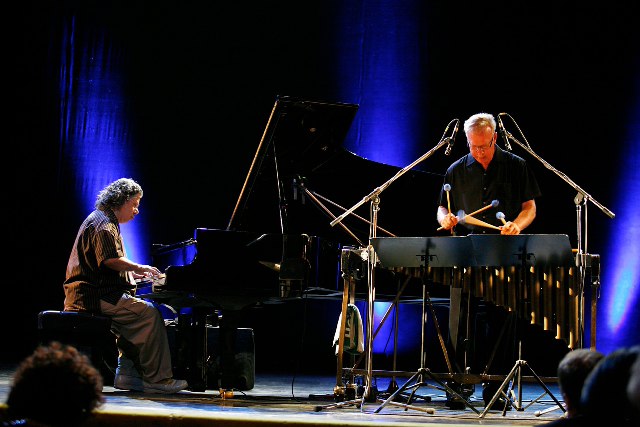 |
Peter Wockner: Collaboration is such a common word to describe jazz projects but your musical relationship is much more. Stemming from a 1972 Berlin concert, you and Chick come close to reading each others minds. Can you describe how surprising that must have been to discover such musical kinship?
|
Gary Burton: It was a surprise to us when we first set out to record our album, CRYSTAL SILENCE, in 1972. We thought it would take 2-3 days, since we hadn’t yet rehearsed and prepared material, and would essentially be starting from scratch. But, we finished the whole thing in about three hours. Every tune was a first take except for one song, Senor Mouse, which took two takes. We realized then that we had an incredible rapport, and it only got better once we starting performing live on a regular basis (42 years now).
PW: Notwithstanding the obvious rapport, it takes someone of great taste to recognise it and package it to an audience. Can you describe the role Manfred Eicher of ECM has had in the success of your duo with Chick Corea?
GB: Manfred talked us into making the first record. We thought it was too esoteric – I mean, who would want to listen to a whole hour of just piano and vibes? But he was persistent, and some months later, we were in the studio. Even then, we thought the record would barely get noticed. Another surprise, it was a big success. Manfred was key to the individual success of both Chick and myself during the 70s, and he certainly pointed us in the right direction as a duet.
PW: What approach do you take to repertoire that might be unique when dealing with a duo performance?
GB: We are always looking for pieces that seem to be well suited for our duet. That means pieces that can be fully played with just our two instruments, and that also challenge us as players. We have a lot of originals by Chick, plus more standard pieces by musicians such as Thelonious Monk, Duke Ellington, Dave Brubeck, Antonio Carlos Jobim, etc
PW: In a way you’ve set the standard for the jazz duo. Do you have a particular album that you believe resonates as the definitive Corea Burton recording?
GB: Most of our fans would probably select the first, CRYSTAL SILENCE, as the most important, and I can easily agree with that. I also favour our live ZURICH CONCERT recording from 1981, and our latest, HOT HOUSE. Frankly, I think all of our collaborations are among my most important records out of the 65 or so that I have made in my career.
PW: Of course you’re a prolific recording artist and Grammy Award winner in your own right having had a stellar career from the time you won Downbeat’s Jazzman of the Year in 1968. How has your approach to your own music changed over the years? What were your priorities in the early years compared to now?
GB: My priorities in the early years were mainly to stand out from the crowd, to have something original and unique to offer, and that led me to several things. I was encouraged to expand the technical possibilities of the vibraphone, including playing with four mallets, developing certain dampening techniques, and also using the vibraphone in different settings than were usual up to that time (playing tango music, classical music, country music, solo performances, duet performances, etc.). Over the years, I have kind of settled into a stylistic niche of my own, based on a broad range of types of music, but geared toward lyrical and expressive music. I also search far and wide for compositions that meet the highest standards.
PW: You’re also a dedicated teach mainly at Berklee College of Music. Communication is a common denominator both in performance and in successful teaching. Obviously both are very dear to your heart but can you nominate what moves you most, is it performing, recording a great album, composing or teaching?
GB: Obviously, if I had to choose only playing or only teaching, I would choose playing. But, teaching is very rewarding, and I have been teaching in various settings since 1971, the year I started at Berklee. I retired from Berklee in 2003, but continue teaching an online course in improvisation for Berklee to this day, which I enjoy immensely. It is correct to say that both teaching and performing require high communication skills. The challenge is that, playing skills are not the same as verbal skills. Some musicians can play wonderfully, but have no gift for explaining it. Others are good at teaching, but so-so at playing. I have been fortunate to be a successful player, and to have a natural talent for discussing and explaining and demonstrating what takes place in the act of performing. Seeing that this is something not every musician has a knack for, I have always had a sense of commitment to continue teaching to the extent that my schedule allows.
Back to Index
|
Peter Wockner’s with saxophonist and composer Charles Lloyd 24th May 2014
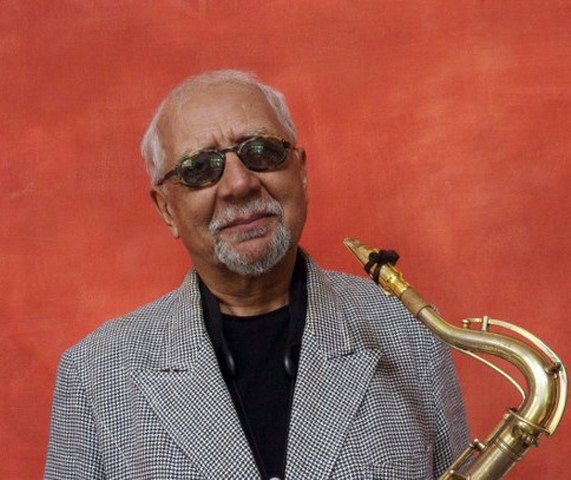 |
Peter Wockner: You’ve always had a spiritual connection with music. The notion of the mysticism of sound and the idea of searching for ones inner voice. The Greek Project sees you collaborate with vocalist Maria Farantouri. How close are you now to finding your holy grail of sound?
Charles Lloyd: I am still searching, mining deeper. The closer I think I am getting, the deeper I have to go. The longer you live, the more experience you have in life, and you find the more you have to give.
|
PW: You grew up in Memphis with great musicians like Booker Little, Harold Mabern, George Coleman and Phineas Newborn. What are your abiding memories of those days?
CL: Like the soil of the Mississippi Delta, Memphis was a very fertile place to grow up in. I was surrounded by the great geniuses and progenitors of the Blues. Howlin Wolf, Johnny Ace, BB King, Bobby Blue Bland. And then there were the jazz greats like Duke Ellington, Cab Calloway, Count Basie, Lionel Hampton who came to town to perform at the major Black venue in Memphis, the WC Handy Theater. Phineas Newborn was my mentor, and steered me to study with the great Irvin Reasson, Booker Little was my best friend in high school and George Coleman was a few years older than and was like a mentor as well. Despite all of the racism that existed at that time in Memphis, it was also an amazing period to grow up there within the context of the developing jazz music.
PW: In 2016, you and many others will be celebrating 50 years since the recording of the million selling album Forest Flower in 1966 at the Monterey Jazz Festival. Are there any plans to mark that event in a special way such as reforming the quartet with Keith Jarrett?
CL: I will be performing at Monterey this year for 3 nights with 3 different configurations; Sangam with Zakir Hussain and Eric Harland, a duo with Gerald Clayton and my New Quartet with Jason Moran, Reuben Rogers and Eric Harland. I am taking it one day, one year at a time.
PW: In 2006 you talked about your 1965 album Of Course, Of Course, saying that you and other members Tony Williams and Ron Carter were modernists and that you ‘had a need’. What do you feel your ‘need’ is at this stage of your career?
CL: My ‘needs’ are few at this stage in life. Inner peace and to find the perfection of that one “note” that could say it all. Then I could put my horn down and go back into the woods.
PW: You’ve always been flexible enough to deviate from the structural pillars of jazz having worked with the likes of The Doors, The Beach Boys and Jimi Hendrix. Indeed you’ve told the story of how Carlos Santana stood at the front of the stage at Fillmore yelling to you “Free the People Charles, Free the People”. When you look back on such a stellar career, how have you measured the level of your success?
CL: I don’t have the skills to measure what you call a “Stellar career”. I am still searching and trying to sing my song with freshness and relevance.
PW: How were the seeds of the Greek Project sewn? What is it about traditional Greek music that you find compelling?
CL: The first seeds were planted in my home town of Santa Barbara in November 2001 when a Greek friend of mine sponsored a concert with Maria at the University of California Santa Barbara. When I heard her sing with such depth and beauty, I knew she was the real deal. We met after the concert and the next summer when I had a concert in Athens I invited her to join me on stage. A beautiful friendship developed and over the next decade we shared music and ideas with each other, always with the idea of one day sharing this in a major concert setting. This came to be in 2010 with our concert at the incredible Herodion at the foot of the Acropolis. It was an amazing experience to stand on those stones that have been polished smooth over the centuries by the great actors and musicians who also stood on them to perform for the city of Athens.
Back to Index
|
Peter Wockner’s interview with saxophonist and composer Greg Osby 6th May 2014
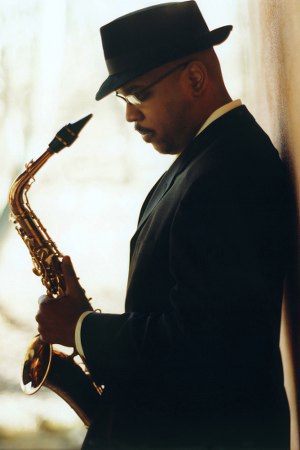 |
PW: After a 16 year tenure and 15 albums for Blue Note, in 2008 you launched your own record label ‘Inner Circle Music’. How has this turned out for you and is the direction you’re heading in changed over the last six years?
GO: It was the best decision that I could have made. Having complete control in every stage of the production of my releases is best for me at the moment. Of course, running a label requires a great deal of time and energy, but the end results feel much more satisfying when we get good responses for our efforts, knowing that no compromises were made in the process.
PW: Jazz or improvised music is one of the most purist forms of personal expression but with that, comes a certain vulnerability because each night you’re putting everything on the line in a very public way. I’m thinking that it would be easier for you to deal with criticism these days given your success and stature as an artist but how did you deal personally with criticism in the early days when critics might have had negative opinions on your jazz-rap fusion?
|
GO: "Critics." The very term and everything that it represents is idiotic. No other profession allows non-practitioners to determine the value of it's participant's work or their worth. The medical profession, for example, doesn't allow people who have never studied or practiced medicine to offer commentary about the particulars of the practice. How did we as musicians become so fortunate, to have people whose only reason for living is to get free CDs and admission to our shows - and then go on to write and publish misquoted and sometimes bitter commentary? Their very existence is pointless, and I don't know of anyone who has acted in any way as a result of being influenced by a review. And frankly speaking, I have never had any need to "deal" with reviews because I don't normally read them. And when or if I do, I'm not disturbed by unfavourable ones because I know the mentality of many of those who write them. We have totally different agendas.
My hip hop projects and tours were actually very well supported and received at the time, which was 20 years ago. The only real issue was that there was no precedent to compare my band with because none existed. Musicians didn't collaborate with rap artists before my project, so there was no way to define it. I considered it a departure and an experiment and by no means did I set out to extend those projects beyond their natural course. Above all I'm an improvising artist and composer first.
PW: How does it make you feel when you see the younger artists such as Jason Moran or Sara Serpa whom you’ve given significant opportunities to, become such successes in their own right? Would you say this approach stems from the opportunities you received yourself from artists such as Jack DeJohnette?
GO: The success of younger artists whom I've hired is exactly what I was planning for when I hired them. It validates my reasons for hiring them when no one else would. The entire point, by design, is for our successors to so well and hopefully, go farther than we have. I've always done, and will continue to do everything that I can to insure that anyone who passes through my bands or studies with me will succeed. I will give them all of the information and guidance that I'm able to provide. I'm obligated by the laws of the music to guide them as I was guided by the elders before me. That's the way it is. Touring in Jack's band for 6 years provided me with a great model for leadership and organization.
PW: The world lost one of the great modern jazz guitarists in Dec 2013 in Jim Hall. You made a lot of great music with Jim Hall. What is your lasting memory of the great Jim Hall?
GO:Aside from being one of the greatest human beings and artists that I have ever known, I learned a great deal from Jim about space, balance, phrasing, colour, dynamics and good decision making. Not to mention that he was also very funny, warm and incredibly thoughtful.
PW: In 1993 you were on the cover of Downbeat with Lester Bowie under the title of ‘Jazz Rebels’ Would you consider that title still appropriate to your approach to music? If not what would your preference be?
GO: That was an unfortunate and inappropriate caption for that magazine and article. It was an obvious ploy designed to incite and to sell copies of their publication, and is entirely why many artists are distrustful of the media. We were not advised of that decision. There is nothing rebellious at all about being determined and staying true to your mission as an artist. What is there to rebel against?
PW: You have on a number of occasions written for Downbeat with interviews of artists of the calibre of say Ornette Coleman. While some artists prefer to let the music speak for itself, you obviously feel it is worthwhile providing verbal insight from the artists perspective. What are your thoughts on that?
GO: Much that is written and covered about music comes form the perspectives of frustrated and unqualified individuals, many who feel empowered by their positions as journalists. I feel that it is very important that artists not continue to allow their work to be recklessly defined by others, many of whom have hidden agendas or are covering work only by assignment and not out of passion. Failure of artists to state their relative cases results in their music being mis-categorized or classified by ridiculous terminology, like 'Bebop." I do not believe that the definition of creative works should be relinquished to the authority of persons who are not in tune with the complete intentions and aspirations of the artists themselves. This is why I chose to write articles for publications myself or to make regular postings to my blog.
PW: In Sydney and I assume in Perth you’ll be performing with pianist Matt McMahon, one of our most consummate and lyrical players. What type of approach can audiences expect to witness with this collaboration?
GO: They will enjoy a healthy collaboration between artists who are hopefully, in pursuance of similar goals.
Back to Index
|
Frank Presley's interview with bass player and composer Abel Cross 17th April 2014
Back to Index
|
Frank Presley's interview with trumpeter Eamon Dilworth and drummer Paul Derricott 27th March 2014
Back to Index
|
Frank Presley's interview with Takadimi 20th March 2014
Back to Index
|
Frank Presley's interview with trumpeter and composer Todd Hardy 27th October 2013
Back to Index
|
Frank Presley's interview with pianist and composer Jackson Harrison 27th June 2013
Back to Index
|
Frank Presley's interview with saxophonist Aaron Michael 21st Feb 2013
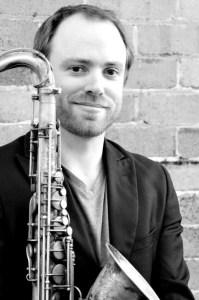 |
'...The tenor saxophone seems to be like the electric guitar of the Rock and Roll world...'
Listen whole interview |
Back to Index
|
Frank Presley's interview with pianist and composer Alister Spence 17th January 2013
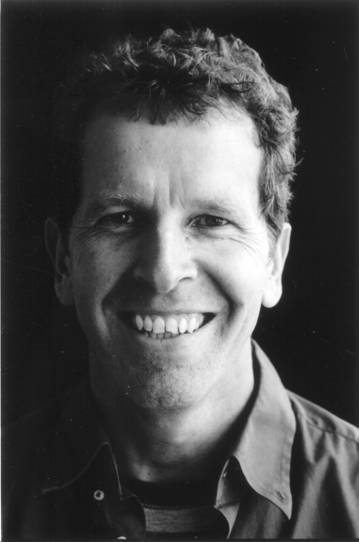 |
'...With Chris [Abrahams] we just chat about the weather, really not about the music at all...'
Listen whole interview |
Listen Alister's previous interview (18/10/2012)
Back to Index
|
Frank Presley's interview with pianist and composer Steve Barry 10th January 2013
Back to Index
|
Frank Presley's interview with pianist Simon Tedeschi 22nd November 2012
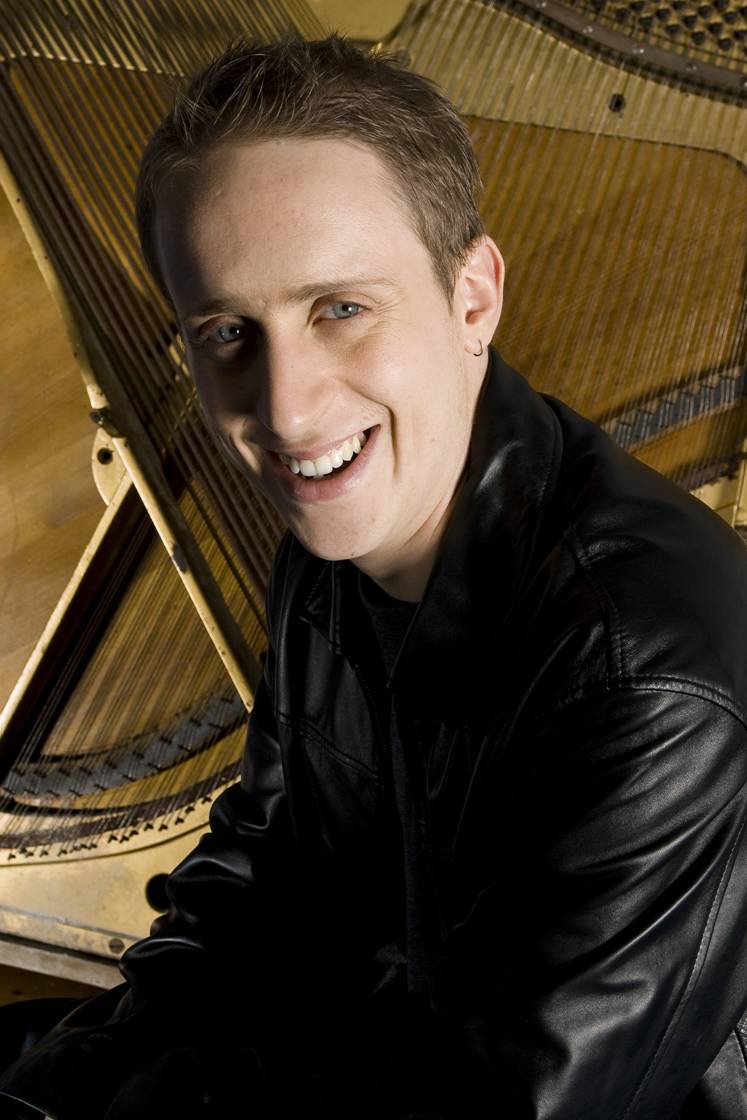 |
'...I'm trying to make myself happy, as opposed to others and as a result, I think the performance is more honest...'
Listen whole interview |
Back to Index
|
Frank Presley's interview with pianist and composer Alister Spence 18th October 2012
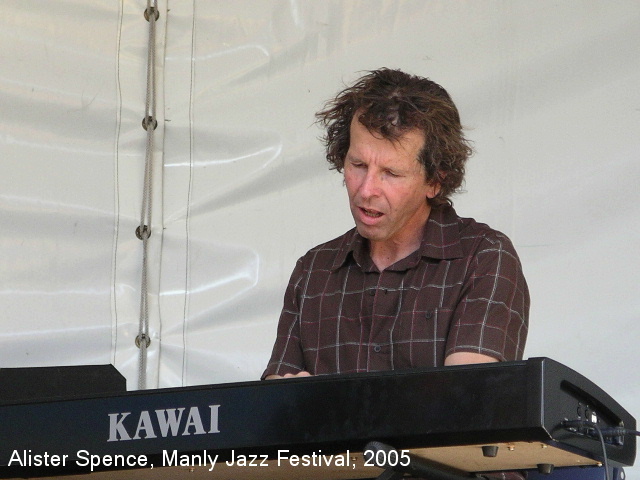 |
'...Sampling technology has been part of our sound since the very first Clarion Fracture Zone CD...'
Listen whole interview |
Back to Index
|
Frank Presley's interview with Singer and songwriter Evelyn Duprai 13 September 2012
Back to Index
|
Frank Presley's interview with drummer and composer John Parker 5th July 2012
Back to Index
|
Frank Presley's interview with pianist and composer Judy Bailey 28th June 2012
Back to Index
|
Frank Presley's interview with singer Lily Dior 14th June 2012
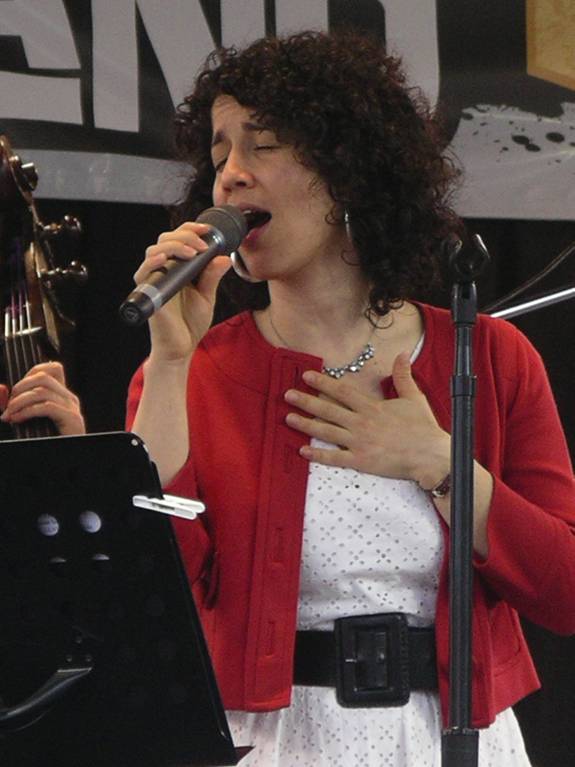 |
'...It's just a compulsion....when you're a creative person you have to express those things that are inside...'
Listen whole interview |
Back to Index
|
Frank Presley's interview with saxophonist and composer Tim Clarkson 17th May 2012
Back to Index
|
Frank Presley's interview with trombonist, composer, arranger and orchestrator Mike Gibbs 19th April 2012
Back to Index
|
Frank Presley's interview with drummer, percussionist, marimba player and composer Phil Treloar 19 April 2012
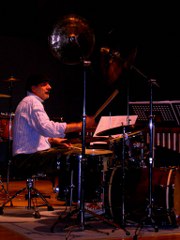 |
'...As a kid growing up I was always in strife [because] I was endlessly inquisitive...'
Listen whole interview |
Back to Index
|
Frank Presley's interview with singer and composer Chris McNulty 1st March 2012
Back to Index
|
Frank Presley's interview with singer Liam Burrows 21st November 2011
Back to Index
|
Frank Presley's interview with saxophonist and composer Jeremy Rose 24th October 2011
 |
'...Sean [Wayland] was a teacher who was trying to encourage me not to become a jazz musician because he'd look in his diary and he'd realise he didn't have enough money to pay his rent...'
Listen whole interview |
Back to Index
|
Frank Presley's interview with singers Tricia Evy, Charito, Emma Hamilton & Jazz a Vienne Sydney Director Stephan Wellink 3rd October 2011
Back to Index
|
Frank Presley's interview with drummer Andrew Dickeson 26th Sept 2011
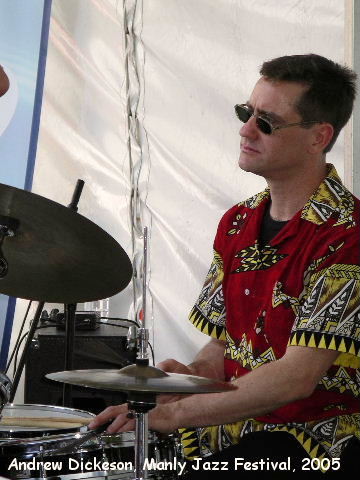 |
'...The whole point of studying with Michael Carvin was to open up my playing and to free it and to make it sound like Andrew Dickeson...'
Listen whole interview |
Back to Index
|
Frank Presley's interview with saxophonist and composer Rick Robertson 19th September 2011
Back to Index
|
Frank Presley's interview with vocalist and saxophonist Nic Jeffries 15 August 2011
Back to Index
|
Frank Presley's interview with saxophonist/clarinetist/flautist Adrian Cunningham 15 August 2011
Back to Index
|
Peter Wockner’s interview with South African flautist Wouter Kellerman August 2011
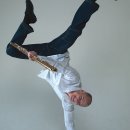 |
Musician Wouter Kellerman is widely considered to be South Africa's foremost flautist. Kellerman started playing the flute at age 10; becoming the principle flautist of the South African National Youth Orchestra and in 1981 he appeared as a soloist with the Johannesburg Symphony Orchestra.
He went on to feature in several South African orchestras, scooping musical accolades along the way. Among these was winning the ‘Perrenoud Foundation Prize’ during the 1997 Vienna International Music Competition.
Kellerman’s flute can also be heard on the soundtrack of the Emmy Award-winning film Eye of the Leopard.
|
Using his classical training as a foundation, Kellerman has branched out into more contemporary avenues, focusing his attention on world music, exploring the versatility of his instrument and fusing classical and contemporary sounds, resulting in a potent and thrilling musical encounter.
Taking his crossover world music to a global audience, Kellerman has performed in cities like Johannesburg, Cape Town, Melbourne, Sydney, Shanghai, Berlin and New York. In South Africa he has worked with leading artists such as JB Arthur, Mauritz Lotz, Nianell, Chris Chameleon, Salome Sechele and David Matamela. Kellerman also performed at the 2010 FIFA World Cup closing ceremony to a global television audience of 700-million people.
Wouter is passionate about helping children, and actively supports the SOS Children’s Villages [www.sos-childrensvillages.org]. He has sponsored the living expenses of a house with ten children in the SOS Children’s Village in Ennerdale, Johannesburg for the last 12 years and has also financed the building of a house in the SOS Children’s Village in Rustenburg.
He has been nominated by SOS Children’s Villages for the Inyathelo Special Recognition Award for Philanthropy. Wouter continues to facilitate the teaching of young dance and music students.
Wouter’s bridge across the genres into a more contemporary music world has been very well received; both in his homeland and internationally, with his debut release Colour being nominated for a SAMA (South African Music Award, the South African equivalent of the Grammys) in the ‘Best Instrumental Album’ category.
Inspired by styles and cultures drawn from South Africa and around the world, Colour featured African, Latin, jazz and Celtic sounds, with classical inflections. The album was also released in Germany, Austria, Switzerland and Australia, where he combined the release with a nationwide tour, which included a support slot on Johnny Clegg’s Down Under Tour.
Kellerman also released the acclaimed album in the USA, where his music videos had been play listed. The album was mixed in Los Angeles by Grammy-winning Husky Hoskulds, who has worked with the likes of Norah Jones and Sheryl Crow.
Colour showcased Kellerman’s flexibility as a musician. It reached the number 1 spot on the South African Classic FM charts and one of South Africa’s biggest newspapers, ‘The Citizen’, gave Colour the highest rating it has ever given an album. The album was also featured as 'Afro Beat Album of the Week' on New Style Radio in Birmingham, UK.
Now an exhilarating brew of multicultural delights awaits music lovers when Two Voices, the new album from Wouter Kellerman, is launched in Australia. Two Voices recently won the 2011 South African Music Awards (the SA equivalent of the Grammy and Aria) for ‘Best Instrumental Album’.
Kellerman has spent the past couple of years cooking up several potent compositions with an array of top South African and African artists – and Two Voices is the result. “I’ve been lucky to collaborate with some amazing musicians over the last two years, and have captured those collaborations in ‘Two Voices’,” says Kellerman. “My focus was to connect with the roots of the music and let the essence of the song shine through.”
Some of the best vocal and instrumental talent in South Africa worked with Wouter to create the album. Among the artists are Senegalese singer and percussionist Lamine Sonko, guitarist Paul Carlos, bassist and singer Phresh Makhene, songbird Nianell and pianist Wessel van Rensburg.
Each musician brought their own energy to the project, resulting in an album that serves up a variety of aural gems: from traditional Senegalese songs to tango-inspired numbers, from South African sounds and rhythms to Irish influences. Kellerman co-produced ‘Two Voices’ with veteran producer JB Arthur, and travelled to Los Angeles to again mix the album with Hoskulds.
Listeners are in for a treat as Kellerman demonstrates why he is regarded as one of the most musically adventurous world-music proponents, who keeps his sound fresh and progressive by incorporating a fusion of influences and styles into his songs.
At the Australian album launch shows, expect to experience an exciting fusion of musical elements and influences emanating from Kellerman's flute and his terrific band. Audiences will see just why the recording of his live performance on ‘Kellerman Colour Live’ won the 2010 SA Music Award for Best Jazz/Instrumental/Popular Classical DVD.
The highly anticipated Two Voices will be launched by Kellerman and his band on Thursday, 4th August at 8pm at Notes in Sydney and Saturday 13th August at 8pm at the Thornbury theatre in Melbourne.
Don’t miss the chance to experience this vibrant ensemble live.
Peter Wockner:
One of the first things that stood out from your album Two Voices was the
influence of Irish music on you and the way you blended the sound with
African rhythms. Where does your Irish influence come from?
Wouter Kellerman:
I have always listened to a wide range of music - particularly African,
Classical, Irish, Tango and Flamenco music and when one starts writing your
own music those influences show themselves in the results. Somehow there is
a connection between Irish and African music, which I have enjoyed
exploring..
PW:
While the flute is traditionally an orchestral instrument, there is also
(along with whistles) a very grounded or folk feeling to the instrument and
not only in the sound but the fact that it is virtually as portable as the
human voice. What is it about the flute that attracts you?
WK:
I like the idea of using breath to express myself, and I think that makes it
more accessible to the listener. The flute is also a very versatile
instrument – one can make a beautiful classical sound, a jazzy or funky
sound, use extended techniques like beat boxing, using the sound of the pads
as percussive elements and more – there is a huge palette of colours
available to you.
PW:
Your latest release Two Voices allows you ample opportunity to improvise on
your instrument. Do you take any inspiration from jazz artists in your
playing or composing?
WK:
Not particularly, but I suppose there are some influences there.. I try and
keep the music simple and to speak from the heart and not to intellectualise
the music.
PW:
What can Australian audiences expect from a Wouter Kellerman performance?
WK:
Joining me on tour shows is the Senegalese singer and percussionist Lamine
Sonko, the South African bassist and vocalist Phresh Makhene and guitarist
Ben Hauptmann. Audiences can expect a fusion of African, Irish and Tango
influences and exotic elements like talking drums and water percussion.
PW:
Your album Two Voices won the South Africa Music Award for Best Instrumental
Album. In South Africa what impact does an award such as this have on your
career?
WK:
There is quite a lot of media attention that goes hand in hand with the
award, so it does help to introduce the music to new audiences. The award is
very much respected among musicians, and I think winning also plants the
seeds for future collaborations.
PW:
I’ve never particularly like the term ‘cross-over’ artist but I can
understand how a term like this might describe a sound such as yours that
encompasses elements of pop, folk, world music from various continents. Can
you recall some real life audience reactions to your music that might best
portray that your music indeed knows no cultural boundaries?
WK:
Yes, we’ve performed very widely in the last few years and I am always
amazed at how well the music is accepted by very different cultures. In
particular we performed in Shanghai in October last year and we were very
encouraged at how appreciative the audiences were over there. We’ve found
that music can indeed cross cultural and colour barriers when it comes from
the heart!
Back to Index
|
Frank Presley's interview with drummer Miles Thomas 25th July 2011
Back to Index
|
Frank Presley's interview with saxophonist Matt Keegan 11 July 2011
Back to Index
|
Frank Presley's interview with vibraphonist and composer Pascal Schumacher 13th June 2011
Back to Index
|
Frank Presley's Interview with gypsy jazz guitarist and composer Lulo Reinhardt 9th May 2011
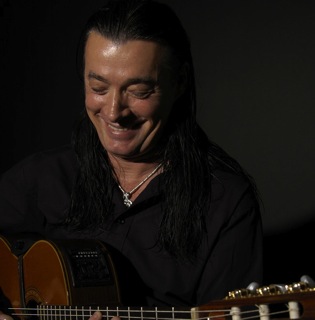 |
"I do mistakes in every song, but I can laugh about this because I take a lot of risks on stage and this is the fun part"
Listen whole interview
|
Back to Index
|
Frank Presley's interview with pianist and composer Leonie Cohen 21st April 2011
Back to Index
|
Frank Presley's interview with pianist, trumpeter and percussionist Danny G Felix 18 April 2011
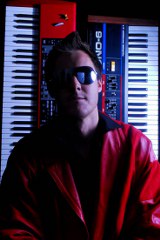 |
"I think that Jazz musicians are often too concerned about what the other musicians think, rather than what everyone else thinks"
Listen whole interview
|
Back to Index
|
Frank Presley's interview with pianist and composer Matt Baker 11 April 2011
Back to Index
|
Frank Presley's interview with pianist and composer Mike Nock 17 March 2011
Back to Index
|
Frank Presley's interview with singer/songwriter Briana Cowlishaw 10th Jan 2011
Back to Index
|
Frank Presley's interview with guitarist, composer and bandleader Carl Dewhurst 13th Dec 2010
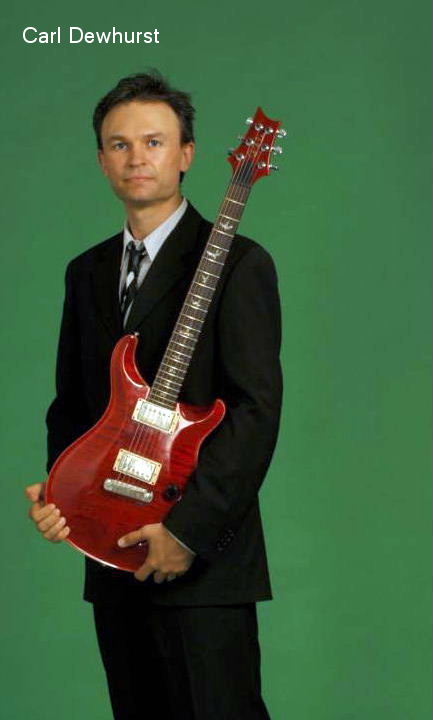 |
"I just started checking out jazz just because I wanted to be a better rock guitar player"
Listen whole interview |
Back to Index
|
Frank Presley's interview with saxophonist and band leader Tim Clarkson 15 November 2010
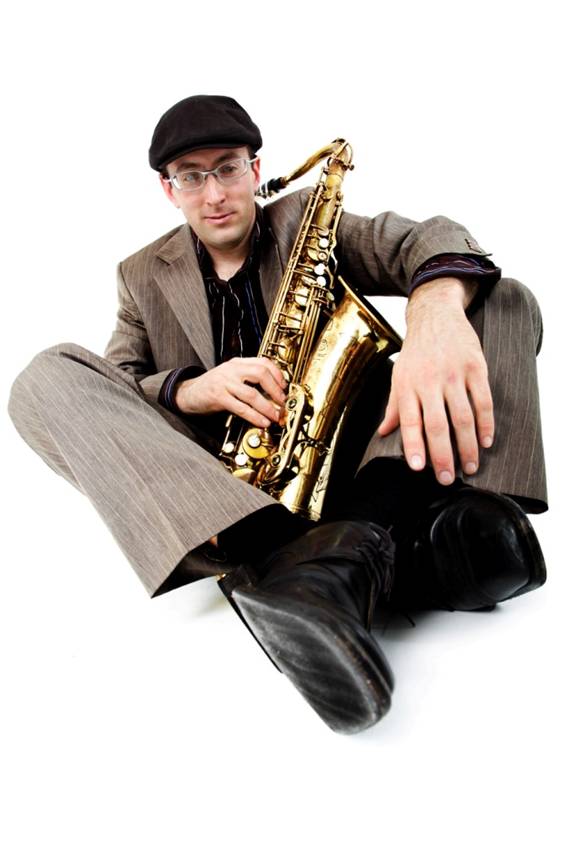 |
"I started playing some Be-bop, sitting in one day at the age of sixteen, they all covered their ears"
Listen whole interview |
Back to Index
|
Frank Presley's interview with guitarist and composer Tim Rollinson 8 November 2010
Back to Index
|
Frank Presley's interview with bassist/composer/band leader Michael Galeazzi 11 October 2010
Back to Index
|
Frank Presley's interview with vocalist/composer/lyricist Kurt Elling 29 September 2010
 |
"Jazz is … always looking to the future… and points the ways to the new possibilities of sound..."
Listen whole interview |
Back to Index
|
Peter Wockner's Q&A with guitarist/band leader John Hardaker 22 September 2010
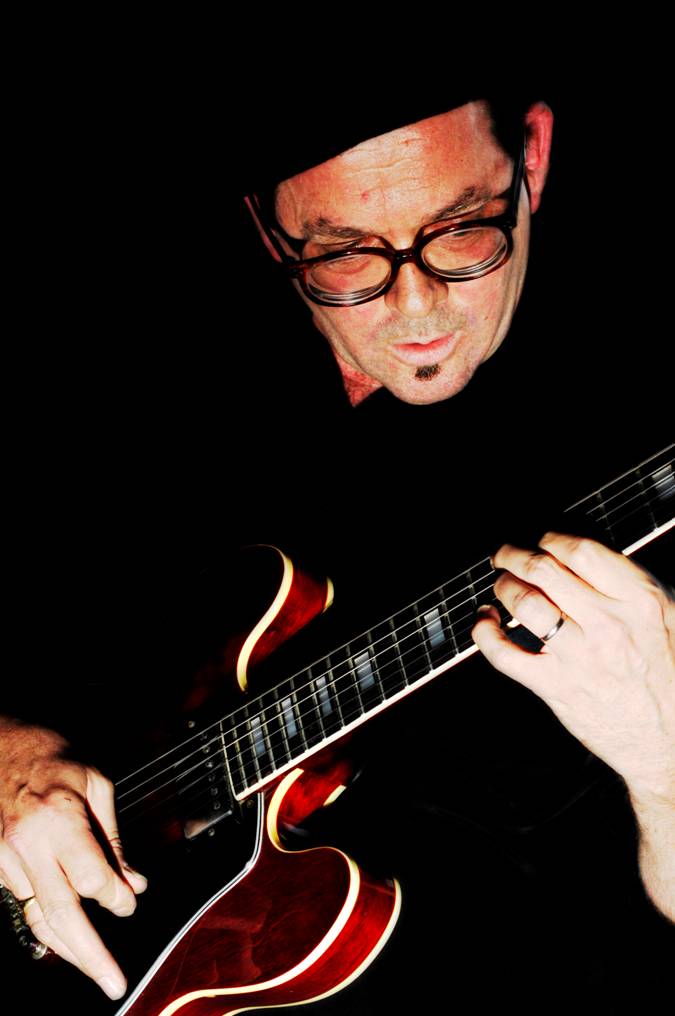 |
Peter Wockner:
How did the idea of a tribute to Kind of Blue come about and what has the level of interest been to date?
John Hardaker:
I had been doing arrangements of 3 of the 5 tunes from the album already in my band – The John Hardaker Direction – so I thought it would be cool to do the remaining 2 and perform the whole thing in order. The arrangements of the pieces are my expression of these pieces, not facsimile performances or even purely “jazz” performances. I have tried to express the pieces through the prism of Miles’s attitude and influence, so they take in funk, reggae, blues and psychedelic rock. Definitely not for the purists! (I have always found it amusing that purists will co-opt Miles Davis who was definitely one of the great purist-baiters of our time).
The level of interest has grown as the Kind of Kind of Blue shows have grown. We are onto our fourth one now, and the audiences have grown each time – and so has the band! We are up to 14 pieces and it sounds great.
|
PW:
We are talking about probably the definitive jazz album of all time, how difficult was it to choose the artists for this tribute?
John Hardaker:
It hasn’t worried me that it is such an iconic and almost holy work in jazz history. As I say, I have messed with the tunes and not been precious about it at all – I feel it would be arrogant to try and replicate the pieces closely to the originals; the inference being to try to improve on or even match their brilliance, which of course would be impossible. I have taken them as 5 absolutely wonderfully realised entities and reworked them. Like Beatles tunes, they can stand anything!
That said, it was very important to grab strong soloists for the project. Since it is a Miles Davis thing, a really good trumpet soloist was essential and I am very glad we have Eamon Dilworth with us for this show. Anyone who has heard him knows how deep his roots go in the tradition of jazz and yet he is a free and modern thinker. I really am looking forward to hearing him fly on these pieces.
We also have the effervescent Harriet Harding, from the fantastic Sirens Big Band on tenor and sopranino and Justin Buckingham who has played with me before, on alto – a really soulful player.
PW:
As the guitarist and leader in the group who have been your major influences in jazz?
John Hardaker:
For attitude and vision, Miles Davis obviously, who like all the greats, is a universe. For guitar playing, Pat Martino, John McLaughlin, Larry Coryell, Joe Beck and Barney Kessel – all guys who didn’t mind mixing it with rock or blues.
PW:
What is your musical ‘ethos’ when it comes to paying tribute versus unfettered originality in music?
John Hardaker:
Because we are playing original arrangements of the Kind of Blue tunes I am not as bugged by the ‘tribute’ tag as if we were doing straight covers. In jazz, what is original? Is a 16 bar Cole Porter head followed by 128 bars of improvisation still a Cole Porter tune? Jazz uses compositions as musical material for blowing, in the main. Grist for the soloists’ mill. I didn’t compose So What but I compose my solo over those 2 clever chords as I play. Even though I have composed a few pieces, I also think that there are so many wonderful, rich compositions out there it is an arrogance to think you can add to the canon unless you really have the gift.
PW:
What was it about the album Kind of Blue that captured both critical and popular appeal?
John Hardaker:
It’s a mystery, really. And, as with all great art, that’s what makes its popularity fascinating. It is of course the one album that people who don’t like jazz always have. On one level, it is non-confronting, non-brain scrambling music which keeps the lid on throughout, holding itself to a cool dynamic area on all the tunes. But of course, on another level, it is very deep stuff, quietly revolutionary, a work that changed music forever, a flower that keeps unfolding the more you listen.
PW:
What can Miles Davis and Kind of Blue fans expect from this shows?
John Hardaker:
They can expect a skronkin’ 14 piece band with a bunch of hot soloists giving them Miles, Miles and more Miles – all the tunes from Kind of Blue as well as a bunch of Miles-flavoured delights – Bitches Brew, Stuff, In a Silent Way and more. Also great support from the very cool jazz vocalist, Crystal Barreca. What they should not expect is a pale, academic reading of these pieces – iconic as they are. It will be very different; which is why we call it Kind of Kind of Blue.
Back to Index
|
Frank Presley's interview with drummer and composer Paul Derricott 30 August 2010
Back to Index
|
Frank Presley's interview with pianist and composer Dave Halls 22 August 2010
Back to Index
|
Frank Presley's interview with drummer and band leader John Morrison and vocalist Jacki Cooper 2 August 2010
Back to Index
|
Frank Presley's interview with composer, conductor and band leader Mace Francis 5 July 2010
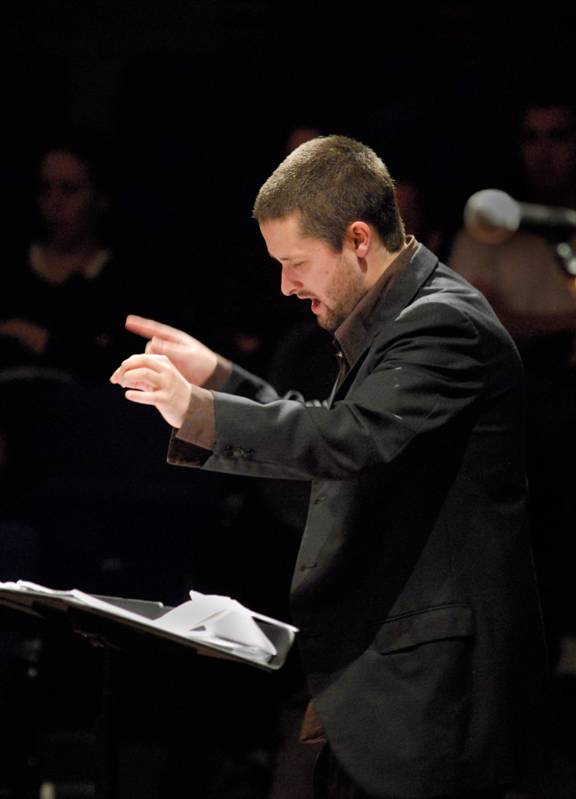 |
"...My mum's a painter and my dad's a sculptor and they raised a family of four kids on art alone..."
Listen whole interview |
Back to Index
|
Frank Presley's interview with saxophonist/composer James Ryan 28 June 2010
Back to Index
|
Frank Presley's interview with pianist/composer Matt Baker 21 June 2010
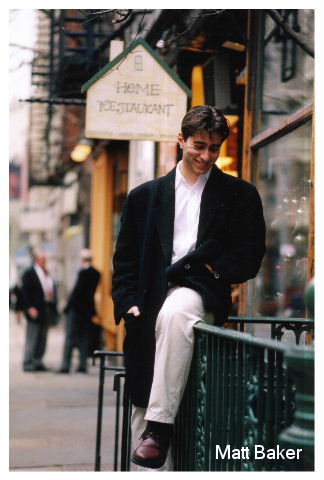 |
'...I would like to bet that most guys couldn't even name one Oscar Peterson original...'
Listen whole interview |
Back to Index
|
Peter Wockner's Q&A with drummer/composer John Prior 14 June 2010
 |
At last... a world class tribute to one of the greatest and most influential jazz-rock fusion groups, Weather Report. When bandleader Miles Davis spearheaded a musical revolution in the late sixties, by fusing jazz sensibilities with electric rock instruments, two of the key contributors both as players and composers were Austrian-born keyboardist Josef Zawinul and American saxophonist Wayne Shorter. In the early seventies, Joe and Wayne formed Weather Report to further explore and expand the fusion of jazz, funk, rock, latin and world music. With an evolving line-up of virtuoso musicians, the innovative quintet succeeded in enthusing both jazz and rock audiences. Weather Report’s seventh album, “Heavy Weather” was an international best-seller and is regarded as one of the greatest and most accessible jazz-fusion recordings. With its impeccable groove, melody, harmony and dynamics, it even included a ‘hit song’, Birdland, which has been covered by numerous jazz and pop artists. The band’s new recruit on fretless electric bass guitar, Jaco Pastorius, introduced a dazzling array of new techniques such as harmonics, intricate rapid-fire runs and complex chord voicings. Coupled with his unpredictable, flamboyant showmanship, Jaco is widely considered to be the Hendrix of electric jazz bass and is one of the most influential bassists of all time.
|
Experience the jazz-groove magic of Weather Report and inspiring originals by Mysterious Travellers featuring some of Australia's most gifted musicians. LIVE DATES / All shows: masterclass 5pm, dinner 7pm, show 9pm
• 3rd July - Thornbury Theatre Melbourne,
• 7th July - The Basement Sydney > Joe Zawinal’s birthday!
• 1st August - Lizotte’s Newcastle
• 12th August - The Vanguard Newtown
• Dale Barlow - sax (Dizzy Gillespie, Art Blakey, Billy Cobham) • Fabian Hevia - percussion (Lulo Reinhardt, Catholics, Wanderlust) • John Prior - drums (Adrian Belew, Jackie Orszaczky, Matt Finish) • Bill Risby - keys (Bobby Shew, William Galison, Maria Schneider) • Phil Scorgie - bass (Lee Ritenour, Crossfire, Daly Wilson Big Band)
Peter Wockner:
How did the idea of a tribute to Weather Report come about and what has the level of interest been like to date ?
John Prior:
After jamming together at blues legend Beachhead’s recent wake, my good friend since primary school Dale Barlow and I formed Mysterious Travellers as an excuse to improvise with mates and light beer while there was still time. We grew up on Weather Report, especially their 1977 album Heavy Weather released in our mid-teens, so this is common ground for us.
Chris Richards at The Basement thought a Weather Report tribute was overdue, he said we’ll never see the real thing again, and he was right because the response has been tremendous.
PW:
How difficult was it to choose the artists for this tribute show bearing in mind the very individual voices in the original band Weather Report?
JP:
I made three phone calls to enlist the four most brilliant musicians for the gig, Dale Barlow, Bill Risby, Phil Scorgie and Fabian Hevia. They all love Weather Report religiously, so I only had to ask four times and they were in before I could hang up.
PW:
As the drummer in the group who have been your major influences in the jazz/rock genre?
JP:
My brother Rob and school friends introduced to me to Miles Davis, Mahavishnu Orchestra and known subsidiaries including Weather Report, Billy Cobham, John McLaughlin, Jan Hammer and Jeff Beck. We used to attend Friday evening concerts at the Sydney Con featuring students and teachers led by Don Burrows, who was at Bondi Beach Primary School with our dad Bob in the thirties. These concerts, and seeing bassist Phil Scorgie with Crossfire and Dale, Chris Abrahams, Lloyd Swanton and Andrew Gander with The Benders, were memorable yardsticks in my formative years.
More recently, I’ve been inspired by the current local jazzgroove scene with Guy Le Claire, Hamish Stuart, Steve Hunter, Sean Wayland, Tal Wilkenfeld, James Muller… and so many more!
PW:
Cindy Blackman has just released a tribute to Tony Williams called “Another Lifetime” and a number of other especially American artists are starting to ‘re-discover’ if you like the ‘fusion’ sounds of the 1970’s. Are you noticing a renewed interest in the music?
JP:
I’ve always had a growing interest in fusion, but it’s difficult to compare the veracity of my passion with others because some may have lapsed privately for a while.
PW:
What was it about Weather Report that captured both critical and popular appeal?
JP:
Weather Report was a holistic fusion of so many cultures, they’re world music sex symbols.
PW:
The idea of masterclasses prior to these performances is a great idea? What format will the tuition take? Is it going to be specific to the music of Weather Report
JP:
We discuss, rearrange and perform Weather Report compositions together, demonstrate individual instrument techniques, answer questions and giveaway products from our sponsors Fender, Tama, Sabian and Birdland.
Dale teaches at the Sydney Conservatorium, bassist Phil Scorgie and percussuionist Fabian Hevia teach at JMC and pianist Bill Risby is one of Australia’s foremost jazz exponents, so I’m really hoping to learn something useful.
PW:
Some purists might question the idea of a tribute, but you won’t be simply trying to re-create the music will you? What can Weather Report and fusion fans expect from these shows?
JP:
Weather Report fans, fusion fans and even discerning jazz purists coming to a Mysterious Travellers show can expect to experience Australia’s foremost improvising musicians (and me!) performing some of the most inspiring jazzgroove music ever composed, plus exquisite food in historic venues with excellent acoustics and production.
http://www.mysterioustravellers.com
Back to Index
|
Frank Presley's interview with guitarist Steve McKenna 24 May 2010
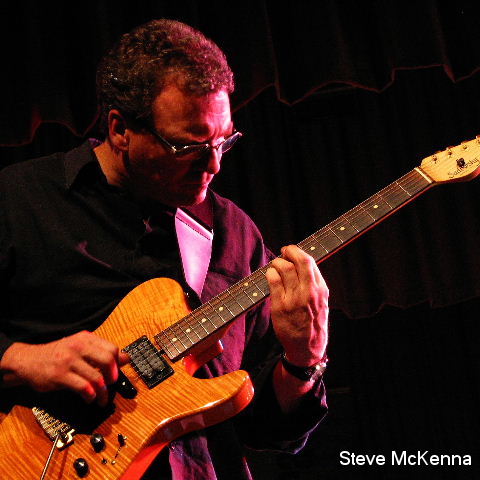 |
'...If you're gonna be into jazz guitar, you've got to go back to Charlie Christian...'
Listen whole interview |
Back to Index
|
Frank Presley's interview with guitarist Aaron Flower 29 April 2010
Back to Index
|
Frank Presley's interview with saxophonist/flautist Adrian Cunningham 19 April 2010
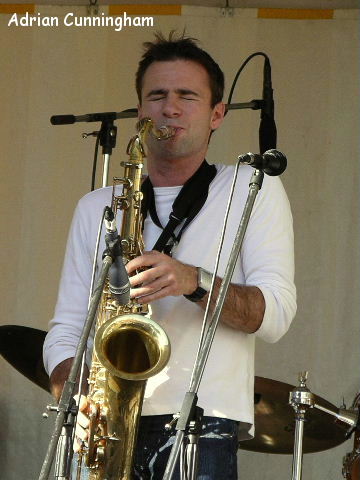 |
'...For me it would be like speaking French and not moving to France to further yourself...'
Listen whole interview |
Back to Index
|
Frank Presley's interview with saxophonist/composer/arranger Tim Garland 19 October 2009
Back to Index
|
Frank Presley's interview with vocalist/composer Judy Campbell and saxophonist/composer Mark Ginsburg 12 October 2009
Back to Index
|
Frank Presley's interview with violinist Ian Cooper 5 October 2009
Back to Index
|
Frank Presley's interview with trombonist James Greening and saxophonist Andrew Robson 28 September 2009
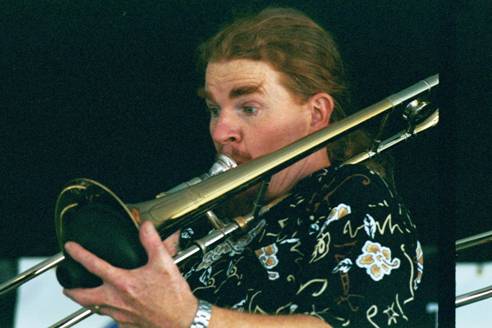 |
'...I remember finding this old beaten up cornet in the back of the linen closet and I felt so bizarre that I never talked to anyone about it...'
Listen whole interview |
Back to Index
|
Frank Presley's interview with vocalist Nadene Pita 21 September 2009
Back to Index
|
Frank Presley's interview with pianist/composer Matt McMahon 14 September 2009
Back to Index
|
Frank Presley's interview with pianist John Harkins 14 September 2009
Back to Index
|
Frank Presley's interview with saxophonist/composer Mark Ginsburg 24 August 2009
Back to Index
|
Frank Presley's interview with vocalist Anita Spring 17 August 2009
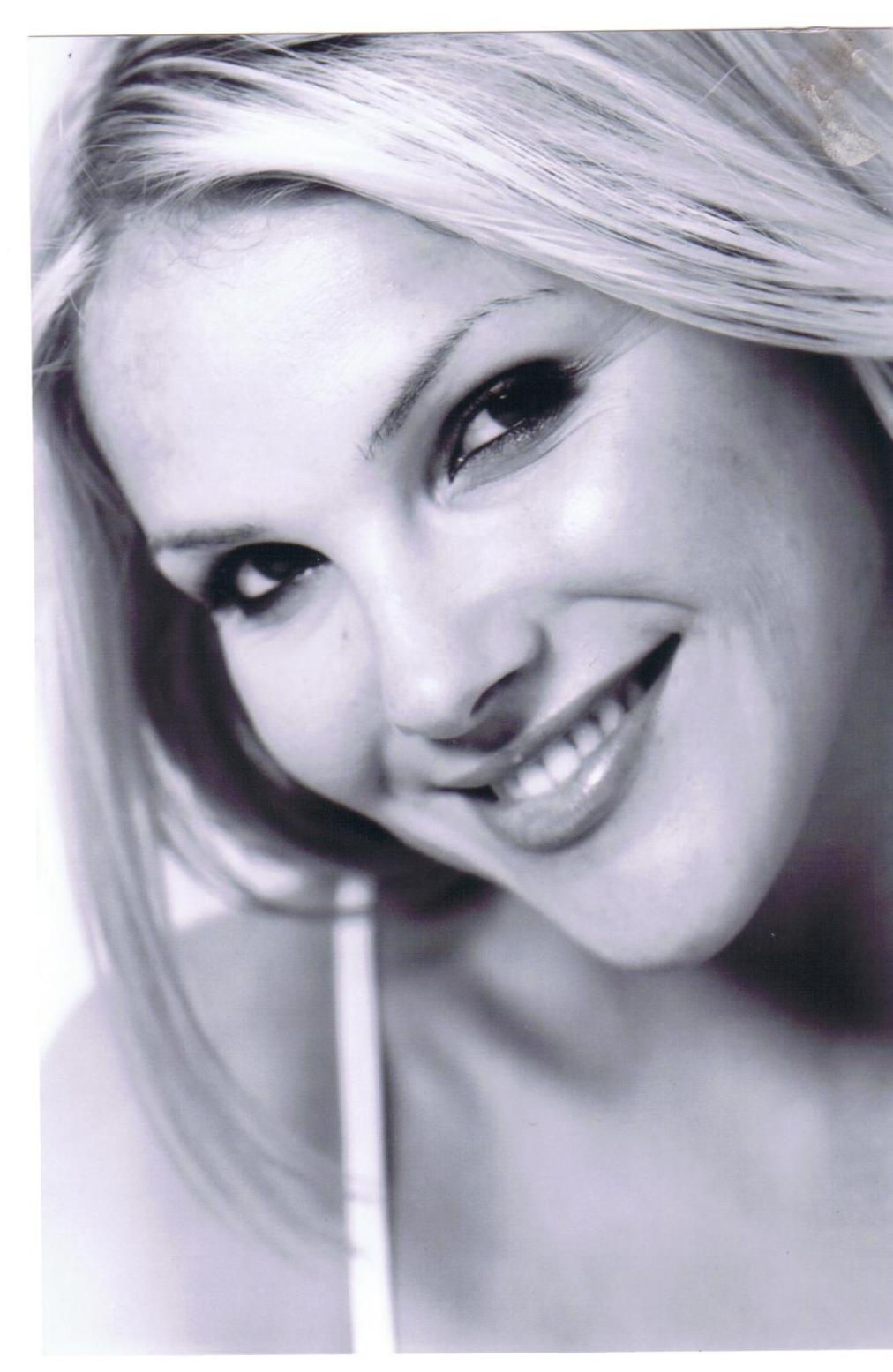 |
'...Dianne Reeves and Kurt Elling are major influences on the way I try to interpret songs...'
Listen whole interview |
Back to Index
|
Frank Presley's interview with bassist Steve Morrison 3 August 2009
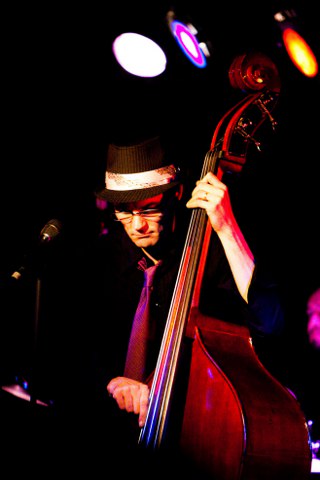 |
'...My audience is not really a jazz crowd, so what I want to do is take them with me into the jazz world in a way that's accessible and not too scary and say to them - look we're improvising...'
Listen whole interview |
Back to Index
|
Frank Presley's interview with vocalist/trumpeter/composer Vince Jones 5 July 2009
Back to Index
|
Peter Wockner's Q&A with pianist/arranger Steve Newcomb 1 July 2009
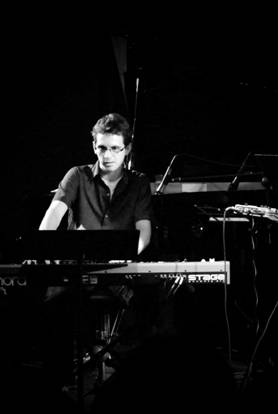 |
Founded by trumpeter/composer Laura Kahle and pianist/arranger Steve Newcomb, the 10-piece West End Composers Collective began in 2003 as a monthly gathering of Brisbane’s creative improvising musicians, composers and arrangers to workshop original works at the Tongue and Groove café, West End. With the success of these monthly gatherings, the growth in repertoire and a grant from Arts Queensland, they launched their debut album “Downstream” in February 2004. This launch supported internationally acclaimed artists Ingrid Jensen (Trumpet) and Jon Wikan (Drums), on tour from the USA. Since the collective’s inception, it has appeared at Brisbane’s more established venues such The Zoo, Jazzworx Club, Rics Café and held a regular monthly performance at the Milk Bar in Paddington.
In late 2004 they were guests at the Melbourne Women’s International Jazz Festival, a performance broadcast live on ABC Radio National. The group was featured in concerts of original music written by saxophonist Rafael Karlen at the Metro Arts theatre, The Brisbane Jazz Club and the Jazzworx club throughout 2006-7.
|
They performed at the 2006 Valley Jazz Festival, the 2007 Palmer Street Jazz Festival in Townsville with special guests Kristin Berardi (voice) and Dave Theak (saxophone) and at the 2008 Brisbane Jazz Festival. Mace Francis from Perth was featured in 2008 as a guest composer with the ensemble.
In 2008, the group recorded their second album, “Driving Hat”, featuring original compositions for the ensemble by Rafael Karlen. This project was funded with financial assistance from the Australia Council for the Arts and the Foundation for Young Australians and was released in August, 2008 through Pinnacles music. Two tracks from this CD were nominated for the finals of the Jazz category in the 2008 Qsong Songwriting competition and the title track “Driving Hat” was a finalist in the Bell AwarFounded by trumpeter/composer Laura Kahle and pianist/arranger Steve Newcomb,
Steve Newcomb - musical director, piano
Winner of a 1999 Brisbane Lord Mayors performing arts fellowship, studied in New York
from 1999 - 2001, has completed 2 highly acclaimed recordings and 3 European tours with international quartet VNMG, Freedman Jazz Fellowship nominee, written arrangements for Katie Noonan and TQO, Jim Pugh, West Australian Symphony, Ben Folds, Augie March and Tim Rodgers. Currently a Lecturer in jazz at the Qld Conservatorium of Music.
Peter Wockner:
Six years down the track performing at Festivals and Brisbane venues and two albums later. What was the initial motivation for the collective and at what stage in its development did you collectively realise that there was some good music worth recording or presenting?
Steve Newcomb:
At the time of the group starting out, there was a talented pool of improvisers around and a small restaurant in West End had a basement bar that seemed like a perfect place for informal music making to take place. We started meeting once a month and repertoire grew. Laura Kahle was one of the driving forces with the music for the band in the early stages and receiving an Arts Queensland grant to record her music as well as originals by Isaac Hurren and Kristin Berardi (who were in the band at this time) led to the ensemble becoming more ‘serious’.
PW:
Has the group or the concept ever had a particular inspirational figure eg is it’s instrumentation based upon any particular band?
SN:
When I was in New York around 1999-2000 I saw a small big band at a club called Smalls. Jason Linder was the pianist and this group progressed to becoming the Jason Linder big band, which somewhat inspired the idea to start a small big band ‘collective’ in the basement of a restaurant in West End, Brisbane. Mike Nock had been working on a similar project in Australia, and the Mingus Big Band is another inspiration for the open/workshop type vibe to the music creation, as well as the Brian Blade fellowship which is a wonderful band that explores a mix of genres and styles, with an instrumentation that uses guitar and keyboards in a non-typical traditional-jazz way.
PW:
The new album ‘Driving Hat’ contains the compositions of saxophonist Rafael Karlen. What special compositional qualities does Rafael bring to the table and can you describe the difference in mood with the collective’s first album ‘Downstream’?
SN:
I think there is a link in sound between the two albums, perhaps the instrumentation and soloing personalities achieves this, but at the same time, Rafael and Laura (primary composer for 1st CD) were able to put their stamp on the music for their respective albums. Rafael has explored varied colour in the band through instrumentation (flute, alto flute, and voice as instrument writing), and has played around with varied forms in a more composition ‘theme development’ kind of way. Laura has a way of really building on the improvisational strengths in the band and perhaps prefers an organic ‘group’ approach to the process.
PW:
This Sydney concert becomes an important performance for the collective as it’s your first date here. Have you found the Sydney scene difficult to break into? What have been the main barriers?
SN:
I don’t think it’s a case of the Sydney scene being difficult, more that getting the resources and motivation together to tour with a 10-piece one of the main obstacles. Most of the players in the band have played in Sydney in other groups or under their own name, but we are really excited to be playing there as a collective for the first time.
PW:
You personally have a background as much involved in Classical music as jazz. Both genre’s borders are becoming increasingly blurred especially in Europe and Australia and possibly to a lesser extent in the US. Do audiences need to be more educated to appreciate the music today?
SN:
I think audiences are more educated today than in any other generation, largely due to things such as You Tube and Myspace, which has put a great deal of music and art on an even keel as far as accessibility goes. The blurring of genres has probably enabled audiences to ‘join up’ so to speak, which I think is a great thing. I like to think that my music can be appreciated by anyone, and it is certainly an aim to make it reach people regardless of their knowledge about either tradition.
PW:
WECC has been careful to include some fine vocalists on both albums to date. Does this inclusion necessarily assist in keeping your music more accessible?
SN:
I don’t think the inclusion of vocals is a marketing choice of any kind. Personally, I like the sound of the voice within instrumental music where it blends with other instruments (music of Kenny Wheeler, Pat Metheny for example) so that has been one motivation to include it. However, it just so turns out that the vocalists we have been able to work with have also been keen composers and contributed largely to the repertoire, and in the case of Kristin Berardi and Hannah Macklin, the arranging duties as well. It is fair to say though, that the inclusion of lyrics adds a layer of accessibility for audiences who don’t necessarily listen to instrumental music all the time.
PW:
What thoughts or emotions would you like Sydney audiences to go home with after WECC’s performance?
SN:
I’d like Sydney audiences (and this would be the same for any audience) to walk away feeling uplifted from the inspiring solos they have witnessed, and the fresh original arrangements and compositions they’ve heard, created by our country’s own. I like to think that the band and our music embodies characteristics of the great things about Briz-vegas .. a quirky sense of style and a unique mish-mash of influence, balanced with an enthusiasm towards reinvention.
Back to Index
|
Frank Presley's interview with saxophonist Jason Bruer 10 May 2009
 |
'...The first tenor saxophone that I can remember really clearly listening to was the stuff on Pink Floyd...'
Listen whole interview |
Back to Index
|
Frank Presley's interview with Judy Campbell (compositor/vox), Bandika Ngao (perc), Mark Ginsburg (saxophone) 3 May 2009
 |
'...For the first time ever we have gone on the road with a brand new rhythm section entirely...'
Listen whole interview |
Back to Index
|
Peter Wockner's Q&A with Mark Isaacs 5 May 2009
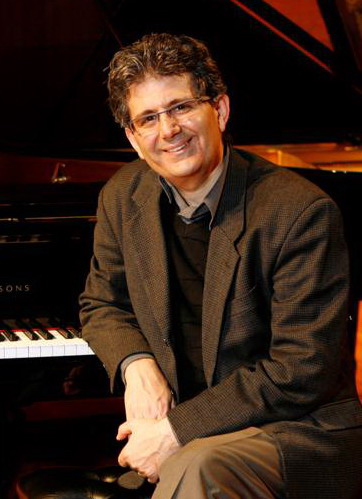 |
Mark Isaacs is one of Australia’s most distinguished musicians in jazz and classical music. He has toured the world and collaborated with some of the most famous names in international jazz. Following tours in Asia and around Australia in 2007/08 the 5-piece Resurgence Band is touring nationally in May to celebrate the release of their new CD Tell It Like It Is by the ABC.
This exciting band features some of the very best talent in Australian jazz including award-winning guitarist James Muller and saxophonist Matt Keegan. The original tunes by Mark feature memorable melodies with blues, soul and gospel grooves and some classical threads. Not to be missed!
Mark Isaacs – piano James Muller – guitar Matt Keegan – saxophones Brett Hirst – bass Tim Firth – drums.
Peter Wockner:
This must be the group’s third tour together? How has the group developed from being an accomplished gathering of recommended artists into a cohesive band greater than the sum of its parts?
|
Mark Isaacs :
Yes, it’s the group’s third major tour. What we have got to in the band feel is by virtue of having enough real rehearsal (as opposed to just jamming and socialising), many performances on the road as you say and also an open dialogue between myself and the band on directions in the music. And real commitment from everybody to shoot for the stars.
PW:
How difficult is it for you as a leader to be able to recognise when to ‘direct’ the sound of your band and when to allow the dynamics of the group, the freedom to take it to places that maybe you never intended it to go?
MI: I tend to direct in rehearsal more. In performance I don’t consciously direct, but inevitably what I play might direct the band in itself. But what they play directs me too. Some of it is verbal, some visual and some subliminal or just pure sound. I don’t think about it so much. Whatever it takes. If it needs more direction I’ll give it, if I need to pull back in order to let it breathe I’ll do that too. It’s rarely “difficult”, mostly a joy.
PW:
You’re new album ‘Tell it Like it is” was captured live at the Sound Lounge in 2008. How do you think the night ‘played out’ in relation to the idea of ‘direction’ and/or ‘freedom’?
MI: It was a night that pretty much played itself. I can hardly remember it so it‘s great to have the CD! It happens so rarely that a truly inspired night is documented. And this truly was an inspired night for the band.
PW:
What in particular about the pattern of instrumentation in this group that appeals to you? For example, how does the saxophone suit your compositions better than say a trumpet or trombone ?
MI: Saxophone has the right combination of lyricism and brawniness for my music, particularly mixing tenor and soprano. I haven’t heard the need for trumpet or trombone in my small group music to date, and there aren’t any brass players that have inspired me in terms of my own music apart from Kenny Wheeler who I have already toured and recorded with. But what appeals to me most about the instrumentation is the combination of sax and guitar as frontline, in particular the guitar of James Muller. This is the fourth CD with James in that instrumentation.
PW:
You’ve always been committed to the idea of touring whether it be solo, trio or in a group. What do you take away as some of the special rewards from the ‘tour’ which for jazz is becoming either too difficult financially or for co-ordination reasons simply ‘out of reach’. At the same time what are some of the non-apparent difficulties.
MI: Well obviously the chance to play so many performances in quick succession is incredibly rewarding. It’s hard work to set the tours up, but that’s a labour of love so I really can’t cite any downsides.
PW:
I guess a studio recording of this band would bring ‘Resurgence’ the full circle. Are there plans to do a studio recording?
MI: I’ve certainly thought about it as the obvious next thing to do as you say. But I’m not ready for “plans”. Firstly I need enough repertoire, but I’ve already started on that in the two new tunes we will play on this tour along with the songs on the CD. Once there’s the music, then how to finance a CD recording becomes the major problem. Wait and see is all we can do. Anyway right now the current one is only just out and we have a big tour to do. I love your enthusiasm in bringing up the next one but it’s just a wee bit on the backburner right now.
Back to Index
|
Frank Presley's interview with bassist Abel Cross 30 April 2009
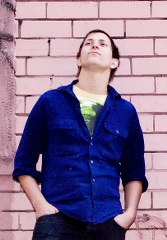 |
Frank Presley:
You were a ‘late bloomer’ when it comes to music. What caused the initial spark for you and why jazz?
Abel Cross:
Music has always been a powerful force in my life, but it is true that I am a late bloomer in terms of my passion for Jazz. When I was very young I tried my hand at the piano, violin, and trumpet, which I enjoyed, but never developed a strong penchant for. It wasn’t until the age of 13 that I bought a bass guitar and music really took over my life. But Jazz was still a ways off.
I suppose my interest in Jazz really grew out of an interest in the double bass, which I began playing at the ripe old age of 21. An older friend of mine had bought one and I immediately fell in love with the sound and feel. I began taking lessons with my first bass teacher Dave Ellis around this time.
He never really pushed me towards Jazz more than classical or other musics, but I can certainly say that his passion for the instrument was infectious. As with most musicians I began to seek out recorded music that featured my instrument and this opened up a new world for me. |
Recordings of the great Jazz bassists like Charles Mingus, Richard Davis, Charlie Haden, Scott LaFaro, etc really inspired me to seek out the Jazz that was being created and performed close to home. And to join in!
FP:
Who in the history of Australian music do you admire the most and why?
AC:
It is impossible for me to answer this question with a single name. What I can say is that it is the trailblazers of Australian music who I admire the most for their bravery and inspiration. It is much easier to walk down a path that has been laid by others but much more difficult to create and define one of your own. People like Rod Cooper, and Lucas Abela spring immediately to mind for this very reason, they are people who have created their own instruments, language, and practise. Truly self-made musicians.
FP:
The group Trio Apoplectic has been together now for some six years having been formed while you were still at the Sydney Conservatorium of Music. At the time you must have been aware of the ‘mortgage’ that Bernie McGann had on the Australian pianoless trio sound but you pressed ahead regardless and now have forged quite a distinctive sound. How was the trio’s ensemble sound conceptualised?
AC:
Trio Apoplectic began as most young bands begin; attempting to emulate the musicians/bands that we loved. During the early rehearsals we played a lot of music that we had transcribed or sourced from these people – Bernie McGann, Alister Spence, Lloyd Swanton, Andrew Robson, Chicago Underground Trio, but we were always bringing in original material to workshop as well. I think from early on we really did feel there was a responsibility to contribute to this tradition of Australian Jazz with our own music regardless of how fun it was to plunder the vaults of these great musicians repertoires.
I really feel that our sound was developed through shared experience. We did a lot of playing while at the Con, and while touring during the Con holidays. The experience of playing and performing as well as the day-to-day of being on the road, in each other’s pockets, and on a shoestring, really solidified the connection, which is expressed in how we play together.
FP:
You’ve made a committed effort to tour the group often over the past three years. Is there something special about exposing your music to rural and regional areas? Potentially, some in the audience would not previously have heard music like yours. What special experiences has TA had?
AC:
All three of us grew up in rural and regional Australia, Dave from Cowra, Alex from Bowral, and myself from Wollongong. I think this shared experience of moving from the regions to the city really strengthened our resolve to take our music back to the regions. You can take the boy out the country…
Contemporary Jazz gigs in regional Australia can be as differing as the places themselves. Or more! It is true that many of the places we have toured do not have regular Jazz performances, and some that haven’t had a Jazz group through in living memory, and this opens up all kinds of possibilities.
My personal favourite Trio Apoplectic gig was our first performance in Stuart Town (between Molong and Wellington, NSW). We had done a gig in Orange on our previous tour and met an artist, Tim Winters, who said that we would go over great at the Ironbark Creative Arts Centre in Stuart Town. We’d never even heard of the place but decided to take a punt on it. Now Stuart Town is basically just a Pub, Hall, and a couple of houses on the main street with the Arts Centre set up in the old Post Office. We really didn’t know what to expect. That night we played to a packed house! The local community really got behind the gig and came out in droves. We played purely acoustic, in a small wooden room, the sound was fantastic and the audience were wonderful. A real exchange between the band and the punters. Beautiful.
There’s a song of Dave’s on the new album named after Stuart Town, ‘Iron Dusk’. There’s also one called ‘Holly and Bobby’ named after two horses we met in Armidale. But that’s another story.
FP:
Has the group focussed on any specific points of difference with the new album or is simply a document of how the group has developed?
AC:
‘Sofia’ really is a document of how the group has developed. We went in to the studio with the specific intention of playing as close to how we do live. This included a lot of segues between tunes and really opening up the solo space. We recorded the album in ‘sets’ of around 8 pieces at a time. The takes that made the album are mostly taken from our sixth set of the day. Strangely, this is the one we recorded straight after a cheeky afternoon trip to the pub. Hmm.
FP:
Barack Obama says he has Coltrane in his iPOD, what’s currently in your CD player or iPOD at the moment?
AC:
Right now I’m listening to the album ‘Adobe’ by the NYC saxophonist Tony Malaby, featuring Drew Gress on the bass and the great Paul Motian on the drums. Another damned horn trio! This cd was given to me as a gift from my good friend Dave Goodman. I love the playing on this record. Each of the three has such great sounds and fluidity on their instruments. Highly recommended.
FP:
What would you like to change about the jazz scene in Australia or especially in Sydney?
AC:
I’d like there to be more of everything. More festivals, more gigs, more record labels, more musicians, more creativity, more action.
Back to Index
|
Frank Presley's interview with saxophonist and bandleader Nick Hempton 27 April 2009
 |
Nick was born into a family of classical musicians, and took up musical instruction at an early age. Starting with the piano at age six and the clarinet at ten, he studied and performed classical music until the age of 16 when he found himself drawn to the saxophone and jazz.
Having little jazz in his musical background, Nick forged his own way, frequenting local jazz clubs and pestering local musicians for advice and lessons. He received invaluable assistance particularly from Australian jazz greats Jason Morphett and Bobby Gebert, and by 17 was performing regularly at local jam sessions. After studying at the Sydney Conservatorium of Music, Nick embarked on his professional music career.
Based in Sydney for most of his twenties, Nick performed in a wide and varied array of musical settings from big bands to small groups to Rhythm 'n' Blues and Ska; most notably the Andrew Dickeson Quartet, the Brad Child Orchestra, the Dan Barnett Big Band, the Evan Lohning Big Band, John Morrison's Swing City, James Morrison, Dale Barlow, The Bobby Gebert Quartet, Backyskank, and The Allniters.
|
He appeared at all the major Australian jazz festivals including The Manly Jazz Festival, The Wangaratta Jazz Festival, and The Thredbo Jazz Festival, and appeared as both performer and interviewee on Australian Radio and Television. Throughout he continued to lead and compose for his own groups.
Nick also built up an excellent reputation as a musical educator, holding private lessons and masterclasses for school- and mature-age students.
In 2004 Nick relocated to New York where he performs with and composes for his own group- The Nick Hempton Band. He performs regularly at the city's top music venues - Smalls, the Blue Note, the Zinc Bar, Sweet Rhythm, etc.- and has appeared with a wide range of musicians including Harry Wittaker, Slide Hampton, Roy Hargrove, Dennis Irwin, James Carter, Joe Magnarelli, Barbara Morrison, Duane Eubanks, Russell Malone, Wessell Anderson, Jeremy Pelt, Eric Lewis, EJ Strickland, Claude Coleman (Ween) and many more.
Nick has appeared on many commercially released albums encompassing the full range of popular music styles and has appeared on stages throughout the world from New Zealand, The Pacific Islands, South East Asia, China, Japan, to South America, Mexico, Canada, Israel, Switzerland, England and France.
In early 2009, the Nick Hempton Band released their debut, self-titled album, and will spend the remainder of the year touring and performing and not sleeping.
Frank Presley:
Over the last decade it’s fair to say that, while maintaining its own identity, Australian contemporary jazz has found more things common with Europe than America. Like many Australians and indeed other internationals before you, you chose New York City. Why?
Nick Hempton:
I have to say that while I was playing in Australia, I was never consciously involved in performing "Australian Jazz". I was certainly aware of it taking shape, because I think it has come into its own in the last ten or fifteen years, and I was constantly impressed with the music being made around me, but it was just not my thing. The records I was listening to, and the players I was following were from America, and specifically New York; and the idea was planted early on that this was the place to go. I should point out that energetic swinging modern jazz is of course being produced everywhere these days, and New York is not the Jazz Nirvana I was naively hoping for- it's not the hotbed of new musical ideas it seems to have been fifty years ago. But it has the history, and the intense energy that still pushes musicians toward a distinct New York sound. It also has the largest concentration of killing drummers anywhere. I also think that for those of us who come to New York from elsewhere, there's a desire to throw ourselves into arguably the biggest, most competitive jazz pool in the world, and see if we sink or swim. I'd like to think I'm currently dog-paddling up the shallow end...
FP:
You’ve said your music is ‘swinging mainstream/modern jazz with a UN style twist. This style is still holds a strong following in NYC. Have you found jazz as factional in New York as it seems to be in Australia or does the fact that many such as yourself migrate into the scene ‘cut through’ any perceived prejudices?
NH:
I'll stand by the 'swinging mainstream/modern jazz' bit, but lines like 'a UN style twist' , even though I won't deny I said it, shouldn't be uttered outside a press-release... Now, even though I'm probably not qualified to comment on this, my impression is that the Australian jazz scene is far less factional than it was, say, ten years ago. Back then, there were certain musicians who wouldn't talk to each other because they didn't like the music the other was producing. I certainly hope it's not like that now. As for New York, I've hardly noticed it here at all. It's got to have something to do with the sheer number of musicians here- something that still regularly boggles my mind. You have to learn pretty quickly not to worry about what everybody else is doing, otherwise you get nothing done yourself. Maybe it has something to do with Australia's relative isolation. Sorry to bring up that old chestnut, but in NY there's such a tangible connection to the rest of the jazz world, with so many musicians of so many styles passing through, that the idea of forming cliques seems pointless and unnecessary. It could also be because 'swinging mainstream/modern jazz' is by far the prevailing music style here. Perhaps if I was a Trad or Free Jazz player, my experience would be different.
FP:
How do you balance the euphoria and the drudgery when it comes to life in New York City?
NH:
I'm glad you asked- people often tend to think life in NY must be a constant high. I have to admit that I'm still thrilled just to be here- it is an amazing place, but the struggle can be as tedious here as anywhere. I don't know- would an answer of a steady intake of stimulants and depressants be socially irresponsible? Probably, so it's not that. Actually, I'm not sure I've worked out how to balance it yet.
FP:
Have you found any fundamental differences in a typical jazz audience compared with say Sydney?
NH:
If you'd asked me this four or five years ago, I would have had a great answer. NYC has a hundred year history of jazz as entertainment. New Yorkers like to go out for a night of listening to live jazz. It's everywhere- in bars, restaurants, train stations, street corners. They've grown up with it, and as a result are educated, and serious about picking quality from fakery. In Australia, aside from at a couple of specialist venues, I think Jazz is seen as an accompaniment to a good time, as opposed to a focus for attention. Australian punters might not be as picky, but they seem to enjoy themselves more.The thing is, lately the jazz club audience in NY (especially in Greenwich Village, where I spend most of my time) has gone through a noticeable change- it's all tourists now. I don't know where the New Yorkers are going on their nights off, but it's not to hear jazz. It's not necessarily a bad thing- clubs are now full of Japanese and Europeans, who love to listen- but it's an interesting shift.
FP:
Do you think it’s harder to step out of your comfort zone musically in NYC than anywhere else?
NH:
I think it's probably easier. Once again this comes down to the size of the jazz scene, and the constant in and outflow of musicians. I've been here for nearly six years, and I'm fairly sure the vast majority of players here have no idea who I am. If I want to go and try my hand at speed-metal, a) the opportunity is there, and b) it's not like it's going to damage any reputation I might have. Besides, stepping out of the comfort zone is one of the reasons we're here- I'm constantly meeting and playing with musicians from different backgrounds, with different influences and preferences. It's very rarely comfortable.
FP:
Have you detected in New York City any tangible new found hope in the jazz world since the election of Barack Obama?
NH:
I think it would take a pretty optimistic jazz musician to take hope from the election of a new politician. The US used to have a saxophone playing, pot smoking president, and now gigs, when you can get them, are still paying fifty bucks and two drinks. Does that sound jaded? I will say that there is a noticeable feeling, of relief more than hope, throughout the whole city. And America being viewed as something more than just a rather sad punchline has to be good for all of us here, musicians included. We're all hoping for the best...
FP:
Do you plan on bringing the quartet to Australia?
NH:
I can tell you the rest of the quartet plans on me bringing them to Australia- they've made that quite clear. Yes, absolutely- as soon as we can afford the plane tickets, we'll be there in a flash!
Back to Index
|
Frank Presley's interview with pianist and composer Tom O'Halloran 26 April 2009
Back to Index
|
Frank Presley's interviews with trombonist and band leader Lucian McGuiness 5 April 2009 and 12 July 2009
Back to Index
|
Peter Wockner's Q&A with Carl Riseley 2 April 2009
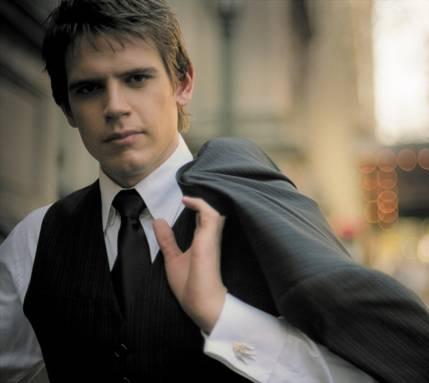 |
Peter Wockner:
You played trumpet on the Gold Coast growing up. Not widely known for it’s live jazz scene, especially for youngsters; what sorts of music were you exposed to as a youngster? What did your father enjoy listening to?
Carl Riseley:
It's true, the Gold Coast isn't the most kickn' jazz town around, but if you want it - you'll find it! Most of my friends were older cause we played in the same bands, they introduced me to all the sites and places to see live music. My dad listened to a lot of bands that had horn sections, like - Blood,Sweat and Tears; Earth, Wind and Fire, Chicago and the list goes on!
|
PW
Who are you influences on the trumpet and what have you learnt from them?
CR:
My influences consist of a broad range of players such as:
Dizzy Gillespy, Maynard Ferguson, Louis Armstrong, Doc Sevrinson, Chet Baker.
Just listening to these kinds of players will give you everything you need to 'hear' about playing.
PW:
Vince Jones became almost a household name in Australia proving that it’s possible to successfully sell jazz commercially in this country. Obviously he had his own sound and his own style. Can you define the Carl Riseley sound or style?
CR:
Well, 'smooth popular jazz with a mix of folk' howz zat! Or you can grab a copy of my album and decide for yourself.
PW:
Is Carl Riseley first and foremost a vocalist now rather than a trumpeter? Or what occupation do you put on your credit card application?
CR:
Musicians applying for credit..........ha! .........goodluck!
I am a singer who can please the crowd with a beautiful trumpet solo, if he so wishes. No, I'm definitely still a trumpet player aswell, I still think like one, and always will.
PW:
You played for Australian troops in Iraq during a stint in the Royal Australian Navy band. Emotionally that must have been very moving for you. Can you tell us what that was like and indeed without sounding overly patriotic, did you find yourself playing with a greater sense of pride and passion during these particular performances?
CR:
The whole experience was an unbelievable opportunity for us and our troops.
The sole purpose of our visit was to entertain and provide morale support for our troops over a difficult period. It's hard being away from loved ones in any respect over Xmas and New Year, let alone fighting for your country and just trying to live through each day. We played till we could play no more, seeing the smiles on their faces was all the thanks we needed.
PW:
When I saw the title of your second album ‘The Stillest Hour’, the first thing that sprang to mind was the tune ‘In the Wee Small Hours of the Morning”. Can you describe the direction you are aiming for with this release and what were the key ingredients you used for the mood you’ve achieved?
CR:
Ahh, so your idea of "The Stillest Hour" is in the very early morning. That's what I love about the title, everyone has a different idea about when 'the hour' is.
I guess the biggest change from the first album was scaling down the sound. Once that happened it was pretty simple really, take 4 of the best rhythm section players in the country, record great songs, sing with soul and bake for 50 min!
|
Frank Presley's interview with multiinstrumentalist Julian Curwin 22 March 2009
Back to Index
|
Frank Presley's interview with saxophonists Matthew Ottignon and Christina Leonard 15 March 2009
Back to Index
|
Peter Wockner's Q&A with pianist and composer Andrea Keller 26 February 2009
 |
Peter Wockner:
The idea of having picked individual collaborators to join the quartet at each concert is more than just having a guest sit in. Can you elaborate on the rationale behind this idea for a tour?
Andrea Keller:
I’m really interested in the AKQ having its own sound and the journey that that has taken. I feel like it’s at a really strong point right now and so I wanted to see how it would be affected by adding a new layer. I also like the idea that the results are unpredictable because we will play the material with quite a few different people, they’re all very diverse and individualistic and we won’t have much time to rehearse with them – they’re basically being asked to respond to our music in the moment, on stage – so it will be quite exciting to see how it all unfolds. The other reason was simply because there are so many fantastic musicians in this country and I wanted to get a chance to play with some of them!
|
PW:
Were you tempted at all to include a guest pianist?
AK:
Last year I did some 2 piano stuff with Matt McMahon which was so much fun but when I tried to pursue more performance opportunities for us I couldn’t find venues with 2 pianos – so I didn’t consider it for this project, but I did almost consider having a bass player…
PW:
Each of the improvisers is quite distinctive in style. Have you specifically written material for each of them individually or are you looking to see how each interpret a set of new works for the tour?
AK:
That was something I found really difficult as I normally write all my music with the individuals in mind and for this project it wasn’t quite possible. I did end up writing some pieces for specific people but generally it will be about hearing the different interpretations and giving the guests freedom to contribute whatever they hear as appropriate.
PW:
It's quite easy to be conditioned to the bass-less sound of your quartet. Can you elaborate on the motivation and where you are trying to take your music without the bass sound, and has it had an effect on how you play in this ensemble with your left hand?
AK:
Well we began as a quintet with a bass player 10 years ago and had worked together in that format for a number of years before our bassist moved to the states. At the time it didn’t feel right to me to find a replacement because I saw the band heading in a strong direction as a result of the individuals in it so I thought we’d just carry on the 4 of us. It took a while to find its feet but now there’s no turning back. It’s given me lots of freedom in my playing, made me think about composition in a different way and altered my perception of how an ensemble can be structured. In the beginning I had to retrain my hearing from one of, “something is missing”. Now I hear that band as, “if there was anything else in here it would be too cluttered”.
PW:
Your latest award was the Aria for 'Footprints' Best Jazz Album in 2008. Your awards are really starting to stack up. What do they mean to you and how much easier do they make it to sell yourself/your music in the industry?
AK:
I feel really lucky to have received the awards that I have. I’m very honored and it’s a great feeling to be recognized for something you’ve created. But really I’m just trying to get better at my craft and contribute meaningful (albeit ‘tiny’) splashes of beauty to the world. This is what drives me and the awards are a (welcome) byproduct. They have definitely lifted my profile in Australia and had an effect on the types of gigs I get offered but this is still and always going to be, a minority music. Pushing contemporary improvised original instrumental music is always going to be a hard slog but the rewards when it works are worth all the rest.
PW:
From memory you couldn't make the Aria awards ceremony due to your newborn last year. What are the challenges trying to juggle family life/motherhood with your career?
AK:
Yes I have 2 kids now and I love every bit of motherhood. You have to be very organized and have clear goals – but that can be said of anyone who leads a busy life. For me music and motherhood are very well matched. I play at night, write very early in the morning and grab other opportunities as they arise. My need for silence sometimes gets a bit overwhelming though. I was just thinking last night that I don’t know how Bach did it with 20 kids!
PW:
Having been a volunteer, at the Sydney Children's Hospital I know how important it is for kids to be comfortable and happy during their time in hospital. Tell us about your work with what is known as the Hush Collection.
AK:
I was commissioned to write the music for Hush volume 8 and although the CD’s in the collection are quite diverse, the brief has been the same – to create music which is engaging, yet promotes a sense of safety and calm. The ensemble was formed from a selection of Freedman Fellowship winners, both ‘classical’ and ‘jazz’ and has been by far the most challenging yet rewarding compositional experience I’ve had. Normally when I write music, it’s simply about what I like - I hope that people like it but that’s not what motivates me. But this experience was about something entirely different – it was about creating music to ease an environment that kids and their families who are under enormous emotional stress are in. I felt a lot of pressure and found myself dissecting my music and analyzing it in ways I never had before. All of a sudden my focus was on how this music was going to be received. This is a difficult place to try and create from and I had a lot of battles overcoming it but I’m very proud of the end result and feel that the music that eventuated is from those few moments where I was able to let go.
PW:
If you were not a piano player what pursuit/occupation do you think you would want to be?
AK:
I feel so boring but I can’t think of anything - all I can ever remember wanting to be was a musician. I’m not very good at anything else, except being a mum and pottering in my garden.
‘Collaborations’ tour dates 2009:
Andrea Keller Quartet
Sunday 8th March Melbourne: Bennetts Lane Jazz Club 9.30pm 03 9663 2856
Tuesday 10th March Sydney: Excelsior Hotel Surry Hills 10pm www.jazzgroove.com
Thursday 12th March Wollongong: Conservatorium of Music Auditorium 6pm 02 4228 1122
Friday 13th March Canberra: Llewellyn Hall ANU 7.30pm 02 6125 5700
Sunday 5th April Brisbane: Brisbane Jazz Club 6pm 07 3391 2006
Monday 27th April Perth: Charles Hotel North Perth 5pm 08 9284 2578
|
Frank Presley's interview with band leader and pianist Greg Coffin 14 December 2008
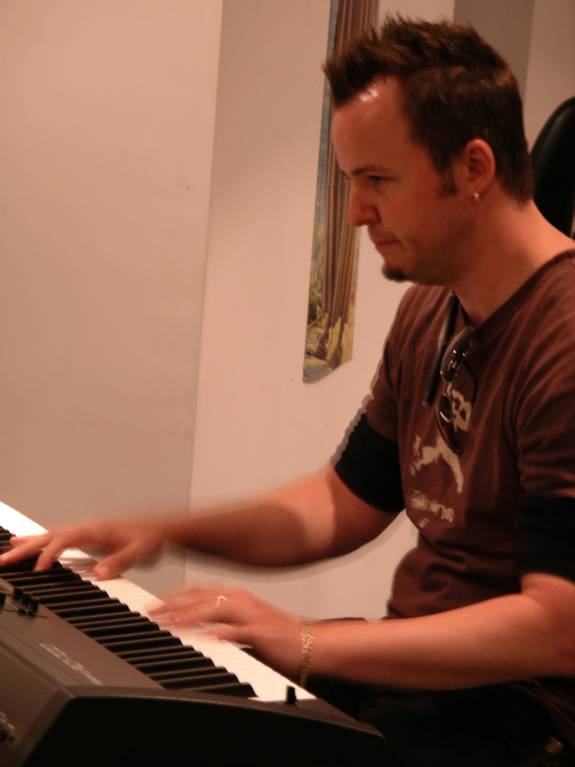 |
'...One of the biggest downers for us was the introduction of poker machines. They would rather put poker machines, make lots of money that way rather than have a band in the corner...'
Listen whole interview |
Back to Index
|
Frank Presley's interview with band leader and trumpeter Bob Barnard 30 November 2008
Back to Index
|
Frank Presley's interview with critic, journalist and author John Shand 16 November 2008
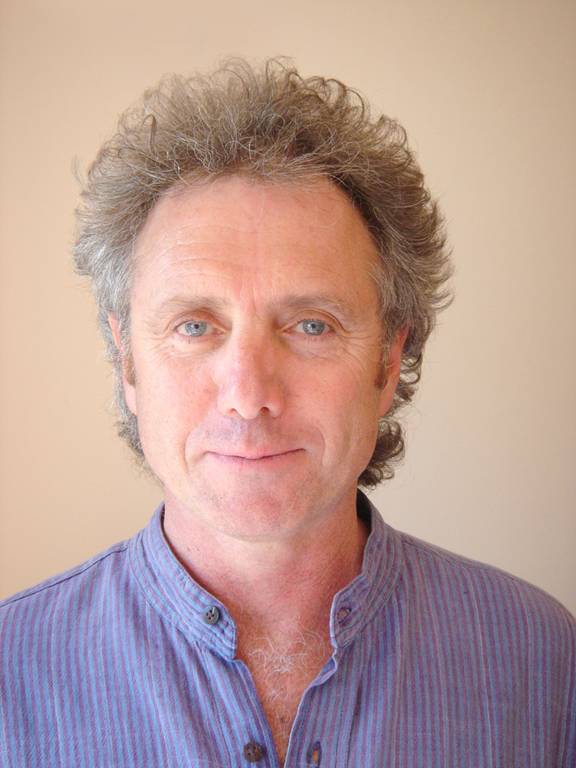 |
'...The kids who are now 20 – 25 [years of age], they have 100’s of world-class musicians to listen to ‘here’. In other words jazz stopped being something that was done ‘over there’...'
Listen whole interview |
Back to Index
|
Frank Presley's with trumpeter and singer Neilsen Gough 19 October 2008
Back to Index
|
Peter Wockner's Q&A with contemporary music ensemble Misinterprotato 29 September 2008
 |
Misinterprotato are one of Australia’s most inventive contemporary music ensembles.
Much loved by the intensely creative Brisbane music scene they are so much more than a traditional jazz trio. The group expands the capacities of the classic piano/bass/drums combination with elements of the avant-garde and a fresh attitude they bring to their music.
Truly captivating for a variety of audiences, Misinterprotato skillfully blend dense, exciting improvisations and delicate atmospherics, conjuring up sounds of modern jazz, ambient music, avant-garde rock, free improvisation
|
and contemporary classical music.
The pianist with the trio is Sean Foran. In 2007 he was the recipient of the Brisbane City Council/Arts Queensland Young and emerging Artist Fellowship which has enabled him to relocate to the UK. He is currently completing his MA at the Leeds College of Music where he is a part-time lecturer.
Peter Wockner: Commercially, the biggest acts in Jazz over the last 20 years have
predominantly been piano trios. Names like the Keith Jarrett trio,
Medeski Martin & Wood, Brad Mehldau trio, EST, The Bad Plus. What do you
think are the reasons for this?
Sean Foran: hmmm, well maybe it's just something about the combination of instruments
that makes this particular trio combination really speak to people.
I
think it's also really important to remember that all the groups you
mentioned there have brought something new to the piano trio format and
have really set their own path and style. It's definitely an exciting time
for the piano trios, although quite challenging because lots of new sounds
and ideas are coming out all the time.
PW: Has there been a noticeable rise in the popularity of minimalism in the
art form?
SF: Not that I've really noticed, but I suppose there's albums like the Pat
Metheny "the way up" and Nik Bartsch's Ronin group, both of which owe
a lot to Steve Reich. Then groups like Tord Gustavsen's trio which focus'
a lot on playing the minimal amount, only saying what needs to be said, as
he puts it. It's a really interesting area and skilled jazz
musicians/improvisers seem to be able to use minimalist structures and
ideas in their pieces.
We're quite interested and influenced by minimalism and I think audiencesv
really respond to it when it's used effectively in an improvised music
fashion.
PW: How much more acoustically is there left to explore in the piano trio
format and will we see even more electronic explorations in the future
from Misinterprotato?
SF: There's always more to explore acoustically, as the way the three of us
can interact and the different sounds we can create is, well not endless,
but there's enough to work with ! I'm interested in exploring more
electronic ideas, but also more preparation of the instruments to achieve
interesting sonic possibilities.
PW: You've composed contemporary classical work and for other mediums,
particularly film. How has this influenced your improvisational skills as
a pianist?
SF: As a pianist, exploring other areas of music, particularly classical is so
important. For me it's really influenced my writing and improvising mostly
by allowing me to explore different harmonic ideas. Less 'jazz based' ones
I suppose. I've never really learnt 'jazz licks' to improvise with and
writing/listening to more contemporary classical music has helped me find
improvising ideas that are more interesting to me.
PW: Tell us about your background, your family history, what got you into
music and how did you become influenced by improvised music?
SF: My family aren't really musical. I'm the only person that plays an
instrument and that was because my parents made me learn when I was a kid.
My dad is into jazz a bit, so I remember listening to Errol Garner records
when I was a kid. That got me interested in jazz, then in my final year of
high school I decided to pursue it further by studying music. I still
hadn't really heard much jazz/improvised music though, so my time at the
QLD Con was quite ear-opening !
PW: What is your main goal as an artist and how are you navigating towards
that goal?
SF: To create music that is new and music that connects with people. To
achieve this I suppose I try to involve myself in projects that are
stimulating, that challenge me and that create music that is interesting
for the players and audience.
PW: Do you have an active interest in any of the other arts?
SF: I'm quite interested in architecture, photography and modern
art...although I don't have any skills in any of them really. One of the
amazing benefits of living in Europe is the incredible access to the arts,
I'm going to see the huge Rothko exhibition at the Tate in November. So I
suppose I'm an active audience member.
PW: In what ways does Misinterprotato use the digital age to sell its own brand or product? While it opens up many opportunities, is it now more
competitive than it used to be?
SF: We're online with all the digital music retailers. You can purchase songs, albums and we're looking at having scores up there too.
It is really competitive and for the consumer the choice is massive. I suppose just keeping an active presence online is a good thing and you
really can make it work for you. There just seems to be limitless possibilities for digital, but we haven't really delved into it too much.
It's more interesting to keep making music and hopefully we can get it out
Back to Index
|
Pianist and band leader Gerard Masters 14 September 2008
Back to Index
|
Frank Presley's interview with saxophonist and bandleader Joel Woolf 24 August 2008
Back to Index
|
Frank Presley's interview with saxophonist and bandleader Blaine Whittaker 18 August 2008
Back to Index
|
Frank Presley's interview with saxophonist and bandleader Joe Lovano (USA) 14 August 2008
Back to Index
|
Frank Presley's interview with musician/composer Elizabeth Geyer 13 July 2008
Back to Index
|
Frank Presley's interview with saxophonist and bandleader Richard Maegraith 22 June 2008
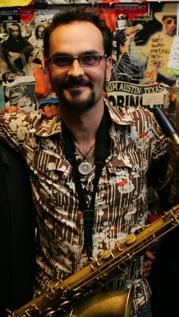 |
'...An improviser knows when they're being honest. Basically, I suppose thats what I aim for, honesty in playing music...'
Listen whole interview |
Back to Index
|
Peter Wockner's interview with pianist Simon Tedeschi 6 June 2008
 |
"…one of the best musicians of his generation worldwide"
- Leslie Howard
Simon Tedeschi is quite often described by respected critics and musical
peers as "one of the finest artists in the world" making the young pianist's
mark on music both undeniable and admirable.
With a successful career already secured at age 26, Tedeschi
first performed a Mozart Piano Concerto at age 9 in the Sydney Opera House. He has
studied piano in Australia with Neta Maughan for 10 years (1990-2000) as well as in London Noretta Conci.
Tedeschi has a string of international prizes and scholarships
under his belt. This includes winning the Open Age Concerto Series and 'Most Outstanding
in all Youth Sections' in Italy in 1994 and taking out the top prize in the keyboard
section of the Royal Overseas League Music Competition in London (2002), which is
open to Commonwealth musicians under the age of 28.
While working with the Melbourne Symphony Orchestra Tedeschi went on to be named the Symphony Australia Young Performer of the Year
and was a recipient of a $10,000 Queen's Trust Overseas Study Award. |
More recently, Tedeschi was awarded a Centenary of Federation
Medal by the Prime Minister of Australia and was the recipient of an award from
the Phonographic Performance Company of Australia and the Australian Opera Auditions
Committee. Currently based in the USA – courtesy of the American Australian Association,
the Australian Elizabethan Theatre Trust and Professor Jack C Richards – last year
Tedeschi was awarded the Young Jewish Pianist Award and was featured in 'New York's Emerging Artist' series held in New York's Museum of Jewish Heritage.
In 2000, Tedeschi signed a recording deal with Sony Music
Australia under its Sony Classics label and his debut CD led to nominations
for a MO Award for Classical Performer of the Year and an ARIA award for Classical
Record of the Year.
The versatility and scope of Tedeschi's appeal is exemplified
by having shared the stage with numerous acclaimed musicians, including jazz pianist
Kevin Hunt, jazz violinist Ian Cooper and flautist Jane Rutter,
and his ability to perform a wide-range of genres. Tedeschi is a one of the rare
classical pianists with the ability to cross over into jazz improvisation.
Tedeschi has also recorded with the Melbourne Symphony Orchestra
and the Sydney Symphony Orchestra including a performance in front of a crowd of
100,000 in 2001.
Highlights of his career include meeting and playing for Pavarotti,
aged 13 years and working with Musica Viva Australia – including an extensive
tour with guitarist Slava Grigoryan in 2001. That year saw Tedeschi play recitals
and concertos in New York, Philadelphia, London, Edinburgh, and Wales as well as a five-concert tour of Mexico as part of the Cervantino Festival.
In 2003 Tedeschi performed Gershwin's Rhapsody in Blue at the
New South Wales Premier's Australia Day Concert at Darling Harbour, Sydney. He also recorded Leroy Anderson's Piano Concerto with the Melbourne Symphony Orchestra.
Tedeschi recorded Tchiakovsky's 1st Piano Concerto and Grieg's Piano Concerto with
the Queensland Symphony Orchestra under the baton of Richard Bonynge, which
was released in September 2005.
In 2005, Tedeschi performed recitals all over Australia and internationally acclaimed performances with award winning Jazz pianist Kevin Hunt
and touring with renowned Brazilian Flautist Tadeu Coelho and Cellist Trish
O'Brien. The same year he performed at a recital for the Australian Pavilion
at the World EXPO in Nagoya, Japan and performed at the invitation of the Governor
of NSW for their Royal Highnesses the Crown Prince and Princess of Denmark.
Tedeschi was later invited back to Nagoya, Japan, to perform in EXPO Hall for International
Marine Day.
Charitable performances and commitment to worthwhile causes
have been most prominent in Tedeschi's career. Among these special performances
includes playing for the Dalai Lama at a fundraising concert in London (2000), for the Karuna Foundation in support of Cambodian Orphans and at the Sydney
Opera House gala concert for the Wayside Chapel. Tedeschi is the Roving Ambassador
for The Australian Children's Music Foundation and the patron of the Bowraville
Cultural Festival.
His profile has permeated to other art forms. Most notably
as the subject in Cherry Hood's striking portrait of Tedeschi that won the 2002
Archibald Prize, one of Australia's oldest and most prestigious art awards,
for her work entitled Simon Tedeschi Unplugged. He is also attached to the Oscar-winning
movie 'Shine', playing the hands of acclaimed pianist David Helfgott.
In 2007, the piano virtuoso returned from the USA to Australia for a two piano recital with Roger Woodward, a tour of Queensland with flautist
Jane Rutter, a tour of Australia with Jazz violinist Ian Cooper, and a stellar performance
of Rhapsody in Blue with the Queensland Orchestra under the baton of Benjamin
Northey.
Tedeschi also recorded the Mozart Piano Concerto K488 with
the Tasmanian Symphony Orchestra under Alexander Briger. He performed in
the Sydney Opera House in September 2007 as part of the APEC (Asia-Pacific
Economic Co-operation) Cultural Event, in front of hundreds of world leaders and
presidents including George W Bush, Vladimir Putin, Chinese President
Hu Jintao and Japanese Premier Shinzo Abe.
In 2008, Tedeschi
is embarking on a number of inspiring performances including performing in Utah, Massachusetts, Colorado, Illinois, Connecticut and Pennsylvania. He is returning to Sydney to perform at the City Recital Hall Angel Place in September 2008, and will be reuniting
with Kevin Hunt at Sydney's premier jazz venue 'The Basement'. Other Australian
performances scheduled for 2008 include Street Theatre in Canberra, the Brisbane
Festival and at the Sydney Opera House for Kinderjazz! In a new recording venture,
Tedeschi and Ian Cooper will also release a new CD recorded live in Newcastle.
Peter Wockner:
What do you recall about the first moment you realized that jazz could be another
passion for you?
Simon Tedeschi: I realised when I was about 15, when I first heard Fats Waller play
on recording. Like with classical piano, it was an instant, organic spark that took
hold of me and never relented.
PW: What are
the specific qualities of jazz that initially attracted you to it?
ST: The rhythm
(of course), the forward movement and the harmonic logic of it. The sense of joy!
PW: Who are
your main jazz influences and do they necessarily have to be piano players?
ST: Working with Kevin Hunt has been a major influence in my musical life - not
only necessary within the 'Jazz' idiom, but in every way - spiritually and holistically.
Working with Ian Cooper has shown me that classical virtuosos CAN get an amazing
jazz groove. Ralph Sutton is a huge hero of mine. For me, he combines both refinement
and gusto to such a degree. For later styles, Monk, Tommy Flanagan, Lennie Tristano.
In terms of other instrumentalists, our own Bob Barnard is a melody machine...I
still listen to him and wonder how much musical beauty can exist in one man! But
I could go on....Michel Camillo, Mark Isaacs, Don Burrows, Chuck Yates...
PW: Of course
there are numerous other classical pianists who have also forged a pathway in jazz;
eg Michel Legrand, Andre Previn, our own Mark Isaacs. Where do you want to take
this and how are you defining your style?
ST: I am still at the rawest, most formative stages of this exciting language. I
want to take this to where I already feel I take Mozart and Beethoven (on a good
day) - to a level of recreation at every performance. I am defining my style by
listening to everybody I can, practicing slowly and trying to emulate the sounds
of voices and horns.
PW: Most jazz players have an obsession
about creating their own identifiable sound on their given instrument, is that necessarily
important to an artist playing classical music?
ST: I would say that it is equally important for me as a classical player, especially
in a time when classical musicians have been so streamlined. There was a time when
you could recognise the sound of a classical pianist and immediately identify who
he/she was. However, whether improvising or not, it is vital to have your own voice
- organically, not affectedly. It can't be rushed.
PW: How would
you describe your jazz sound?
ST: My sound is still growing and developing. It’s a work in progress.
PW: Does composing
for jazz come easy for you?
ST: I have done no composing at all - for some reason, it is just not part of my
musical landscape.
PW: At only
26 years of age, there is no doubting your level of accomplishment in classical
music. Do you see yourself striving to similar levels of accomplishment in jazz?
What would those benchmarks be?
ST: It’s still too early for that! I am only setting myself benchmarks that relate
only to sound production and style.
PW: Do you
find it difficult to cross genres within a single performance?
ST: Not at all. It's one of my weird quirks that I am able to take off one hat and
put on another with minimum fuss.
PW: Do you
have any special regimen prior to a performance to get yourself into a certain jazz
or classical frame of mind?
ST: If I am playing jazz, I need to drink a beer. One day it all came to me in a
flash why these great players drink alcohol before a performance. They are as tense
as I am! It might sound obvious to most, but it was a bit of an epiphany for me.
However, classically - if I was playing a concerto with orchestra, for instance,
it would be a disaster, because it would ruin the controlled tension that is an
inherent part of the creative process.
PW: In a jazz
sense, what is on the horizon for Simon Tedeschi?
ST: More work with Kevin and Ian. Working with Judy Carmichael in NY. Doing a NSW
Jazz Action Society gig later this year with some of my favorite performers. It
doesn't get any better!
Back to Index
|
Frank Presley's interview with band leader Kim Sanders 4 May 2008
 |
'...Duke Ellington once said that there were only two types of music: good music and bad music...'
Listen whole interview |
Back to Index
|
Frank Presley's interview with pianist and band leader Serge Ermoll 2nd Dec 2007
Back to Index
|
Frank Presley's interview with Sandy Evans 26 October 2007
'...One thing I'm really interested in is branching out from a jazz foundation...'
Listen whole interview
Frank Presley's interview with Sandy Evans 14th November 2004
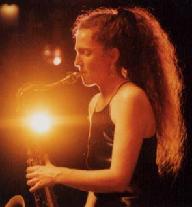 |
"... a friend of someone in the band came to the gig at the Opera House (Jazz Now
Festival August 2004) and actually said that it was the best gig they had been
to in their life because they never knew what was coming next." |
Frank Presley
How have you and Tony been able to cope with Tony's Multiple
Sclerosis over the last seven years and yet still be able to produce collective
volumes of creative output?
Sandy Evans:
It's been very tough for both of us.
Obviously much more so for Tony and it's been
much harder for him to keep his creative work going.
He's done that in several very beautiful
ways. Not very long after he became ill,
he recorded some solo clarinet improvisations that have sort of become the
start of a new career in a way. He's
released a CD entitled 'Songs of Hope' its like very beautiful healing music in
the true sense of the word. Dealing with
his feelings with coming to terms with MS.
They are very beautiful pieces. A
lot of people have had an amazing response to them and he actually performed at
Wangaratta Jazz Festival the weekend before last.
He plays it over a drone and the other part
of the work that he's doing in that way is telling stories and jokes and
telling about his experiences. So it's
taken a long time for him to sort of get the courage and the organization to
get that happening in public and it hasn't been easy but he's doing that now which
has been great. He's also learned the
guitar. When he stopped performing in
Jazz bands, he had a beautiful guitar.
He started playing classical guitar and that kind of leads into Gest8 in
a way because the latest piece that he's written for the band came from playing
the guitar so that led on to a whole new way of thinking in a sense that may
not otherwise have happened.
FP:
He's always loved folk music though hasn't he?
SE:
Oh definitely. Well
that probably came about through 'Mara'.
Tony and I both played with the 'Mara' band for a long time and we were
very lucky because that's a fantastic band that introduced us to lots of folk
music both through the band and through festivals that we played at around the
world. That was very very inspiring so
he definitely has a feel for that. I think
it's a double-edged thing in a way because when he was growing up, his father
would turn off the Scottish folk music whenever it came on the television.
His father was a Jazz musician so he sort of
looked down on the folk music a bit.
Having said that, last time I was Scotland, Tony's brother had unearthed
a recording of Tony's father playing piano and his grandfather playing twin
keyed melodeon singing Scot songs in the most beautiful voice.
So he does actually have it in the blood.
FP:
Gest8. How long has
the band been going now?
SE:
We started it about 18 months ago but we have only done one
gig. Originally there were all sorts of
reasons we wanted to get it together.
Tony and I had really enjoyed working together in Clarion Fracture Zone
and when Tony got ill we decided not to continue with 'Clarion Fracture Zone'
which was actually heartbreaking for all of us.
We have a beautiful friendship with Alister Spence and a very close
musical relationship too. We felt that
band very much depended for its identity on the three of us as personalities
and as players and if Tony wasn't going to be there performing, we wanted to
sort of honour his memory really by not continuing with the Band.
But having said that, there were a lot of
ideas in the music that we wanted to continue developing, plus as you observed,
I've done a lot of things in the last seven years.
Tony wasn't having so much opportunity to
compose and he is a fantastic composer and we love working together.
We seem to have kind of complementary styles
you know. Not the same by any means but
he sort of does the oranges and I do the apples and we end up with the fruit
basket at the end of the day. So we
decided to think about putting a small large band together.
The largest band that we thought we could
actually handle and I guess it was a really exciting opportunity because we
know so many great musicians and there are so many directions we could go.
What we ended up choosing I guess was a combination
of people who we'd known for a long time like Steve Elphick the bass
player. I've known Steve pretty much
since I started playing and Tony's known Steve for a long time too.
Then some people that we hadn't worked with
so much like Carl Dewhurst. I've known
Carl for a few years in the Australian Art Orchestra and I think he's an
extraordinary musician. It was also an
intersection of a lot of different things that we're both interested in.
For me, my interest in Asian music has been
evolving mostly through playing with Satsuki Odamura the Koto player.
To call Satsuki an Asian musician is quite
wrong I think because she's an amazing improviser that transcends the cultural
or national boundaries. She's just an
amazing musician.
FP:
Is she Korean or Japanese?
SE:
Japanese. So because I'd
been working with Satsuki in a trio, I knew some of the possibilities for the
Koto to put it in a more of a Jazz environment and I thought that would be fun
and as it turned out, that's worked really well and her and Carl have a great
musical interplay. Like two kids in a
sand pit. It's fantastic this
interaction between the guitar and koto.
So that's one whole layer of the band.
Then we've got Greg White doing computers.
I've worked a lot with Greg with Roger Dean
in 'Australysis' so I've always been interested in sampling and keyboards and
you know from my first band 'Women and Children First', it's often been a
component of projects that I've had.
It's been interesting to watch the development of the technology over
the years, so that now it's a radically different story from what it used to be
and Greg's coincidentally having his 50th birthday on the night of
this gig. He's been through all the
analogue days and he's totally versed with all the latest computer
technology. He was originally a Jazz
guitarist so he's got a Jazz sensibility in quite a big way so his input is
very very interesting. Then we've got
three horn players. Myself, Paul Cutlan
playing bass clarinet, e Flat clarinet and tenor in the band.
Paul is a very very versatile player with
extraordinary skill and he's just been one guy who's just been 'blossoming' to
use you word. It's been amazing to watch
his development. Then we've got Phil
Slater who is another amazing guy. A
great trumpet player. A real
thinker. Conceptually he's very advanced
in terms of how he thinks about improvisation and how he places himself in any
given context. So we've got people who
can deal with conceptual challenges as well as have a good time in the music.
Then Simon Barker is playing drums.
Tony used to play with Simon and Steve in
Michelle Morgan's group 'Chelac Compound'.
They played together for a long time.
Simon is such a mature musician and Simon also has a connection to Asian
music through spending a lot of time in Korea and he's studied Korean shaman
music particularly drumming. So he's an
amazing Jazz player and he's also got very eclectic interests, so we're a bit
of a hodge podge.
FP:
You've actually toured South Korea haven't you?
SE:
I went to Korea twice with Gai Bryant actually and loved
it. The second time we went, Gai went
and spent a couple of months there studying with a flute player and she
organised us to perform with him, so we did get to have a little insight into
traditional Korean music. I knew nothing
about it before I went and it blew my mind.
All the ornamentation in his playing was so intricate and so beautiful
and tied very closely to what the drummers would do.
I knew nothing I must confess.
FP:
But it's even coming through on your album 'Not in the Mood'
SE:
You're right. I
transcribed a Korean Chant and in that chant I heard a real similarity to
Coltrane's music and I thought I'd like to try putting it together with a kind
of Elvin Jones feel.
FP:
I always found that 'Clarion Fracture Zone's' music had a
great sense of humour in it. Can
listeners to Gest8 expect that same sense of humour?
SE:
Yes
FP:
What's your repertoire like so far?
SE:
Tony has a piece called 'The emperors old clothes' and
actually it's a little Henry Threadgill inspired and it's a really good
tune. It's quite rocky, but that doesn't
tell you what it is at all. But the
music, quite a lot of it is fun, some of it is beautiful and introspective.
Some of it is funny and it's very hard to
describe. Actually a friend of someone in
the band came to the gig at the Opera House (Jazz Now Festival August 2004) and
actually said that it was the best gig they had been to in their life because
they never knew what was coming next. I
think with a band with that combination of instruments and that sort of range
of experience in the players, really as composers we just have to give them the
nice space to play in and we can't really go wrong.
So it's a mixture of all sorts of things.
Tony has a piece called 'Kaleidoscope' which
is a Latin song written on the changes of 'Giant Steps' (John Coltrane).
He doesn't like anybody to think about it in
those terms. He just wants it to be it's
own tune. So there's that connection to
the Jazz history in a sense but he'd hate to hear me say that.
FP:
But he loves Be Bop doesn't he?
SE:
Yes and older Jazz too.
We're both big fans of trad Jazz, swing and we see a continuum in the
history of the music. I think that was
one thing that did come out in 'Clarion Fracture Zone' was that sue we were
quite a modern band avant-garde in some regards but we definitely as you say
appreciated the humour, the fun and the life within ourselves and in older
music.
FP:
Gest8. Still in it's
embryonic stage?
SE:
Yes we don't know whether we need to change the name once
it's sort of born.
Back to Index
|
Peter Wockner's interview with pianist Barney McAll 15th October 2007
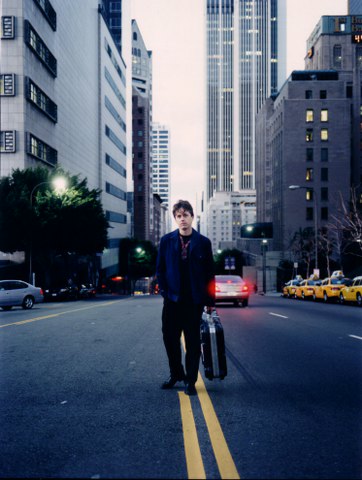 |
Peter
Wockner: You're album Mother of Dreams and Secrets [MODAS] came
to bear fruit by recording the rhythms remotely, but authentically in the heart
of Cuba and then having the melodies juxtaposed in New York. Is any of
this
'layering' happening in your new
album with Kurt Rosenwinkle and if so
how will this translate to live
performances in Australia?
Barney McAll:This new album
"Flashbacks," is more live with the layering happening on the fly in
the studio... I did add some textural stuff to it but its more about playing
in the moment with the whole band. There are some rhythmic layers I may
have enhanced after the fact as well but not to the extent I did on MODAS. This
new CD is a different animal but I really like what it appears to be. As far as
playing the material live, its going to be a lot of fun and will translate
well... hopefully it will have the same effect that the MODAS stuff did which
is that people relate to the rhythmic foundation and want to tap their feet as...
well as their brains...
|
PW: You've been working with Kurt Rosenwinkel for some years now. What is it about his playing that fits
with the sound you are trying to create?
BM: Well I toured Kurt’s "Heartcore" album with him
and before that I worked with him in a few situations in NY, but I have always
found his sound to be a statement relating to the present moment. When I would
go to hear Kurt I would often be moved, emotionally as well as amazed with his
virtuosity...why was that? What moves people musically anyway? Why do you get goose
bumps? its hard to say , its so subjective but I personally am moved by Kurt's
music. Kurt and Mark Turner (Tenor Sax) very consciously set out to develop
their own language and they have embarked upon an original journey that I can
relate to and that I aspire to. I remember reading an interview with Timbaland
where he was saying that he and Missy Elliot took years to find and refine
their own sound...and wouldn't stop until they had...
Gary Bartz told me that when he was learning his instrument it was only about
creating an individual sound and copying was frowned upon. Miles Davis said
that he felt sorry for those people still re-hashing what he did in the 60s and
that they were like folk musicians confined to playing in museums and "local
as a mofo". Miles said "a man can’t go back into his mother's
womb" ...Long and short of it is that Kurt has such a beautiful and
distinctive sound of his own
and his sense of music has influenced me so much...he really gets to the core
of his music...so I'm just stoked to have him interpret my music, maybe some of
it will rub off!
PW: Yes a leading Sydney based pianist recently told me how much he was influenced by the guitarist James
Muller; not only for his playing but also for his compositional talent.
The guitar has really moved to the forefront of jazz hasn'tit?
BM: I don't know about the
guitar but certain guitarists!...for sure.
PW: The National Jazz Awards have become an important
jazz institution
in Australia. You're success at
the National Jazz Awards 17 years ago
was one of your first major
stepping stones. In hindsight, how
important was that win in
cementing the early stages of your career?
BM: Competitions are tragic in some ways because they're so
merciless...
especially since music can be so unpredictable with what comes to you on a
certain day...so I was just glad I won on the day and it gave me enough money
to study and hang out in NY. It gave me confidence too and I suppose confidence
can create motivation. It’s interesting how much music has changed since that
first competition, I was really impressed with last years piano competition
because It seemed to me that the Australian players had so much individuality
to their playing whereas it feels like when I did the competition, there was
more blatant plagiarism.
PW: In reviewing
your last album 'Vivid' in 2006, I proposed that it would also appeal to
followers of that poorly chosen term 'World Music'. Has the inclusion of
more regional music in 'Mother' and 'Vivid' widened your audience?
BM:I don’t know about
that...sometimes I wonder about audiences anywhere these days. I feel like it’s
hard to be noticed on a radar screen that is completely covered in green
blips....no blip brighter than another...thanks to myspace and youtube and
illegal downloading and everyone’s home CD making kits... I certainly didn't
set out to widen my audience by delving into other cultural musics, I just
starting hearing things that way... and ideally I would like to create another
radar screen, a fresh one. Maybe I should start a website called ourspace.com that funnels its
advertising monies to each artist on the site?...because I feel like sites like
myspace are destructive ...as well as... sort of useful. Sort of.
They are certainly destructive in the way they destroy focus and act as a
narcissistic and convenient decoy from stuff that’s going on in our world
today, the immense corruption seems to be looked over. Sorry, I’m getting off
track here but I just read an article in Harpers by Naomi Klein called disaster
capitalism
which I would highly recommend. That's it, off my soapbox. Getting back to
your actual question! I do enjoy playing this new music myself and I suppose
that enjoyment translates to audiences...I've certainly gotten very positive
responses from those last two recordings.....and I feel like I'm finding my way
with each new recording.
PW: You raise an interesting point in relation to these
networking sites. Are you saying that they are contributing to the lack
of personal contact between people or even reducing live music audience levels?
BM:Yes , I'm saying that its seems like people are
connecting on these sites but in actual fact they create a less 'nutritious' text
to text relating as opposed to person to person relating. It sort of
fractures relationships because it edits out anything you might not want to
reveal and you can portray yourself as anything really but this means you don't
have to deal with the truth. I remember where Carl Jung said you have to
relate in some way to ten people every day in order to know who you are, to get
and accurate sense of self. In his book "the Cult of the Amateur"
Andrew Keen sites an example of one myspace band that had literally millions of
hits and millions of downloads on youtube and myspace but.. they didn't make a
cent!... and they couldn't book a tour of their cyber popularity either. That's
amazing to me and telling.
PW: You've composed a considerable amount
music for other mediums,
particularly film. How has
this influenced your improvisational skills as a pianist?
BM: Well film writing has
helped me to understand further all the myriad of things music can mean, how
many possibilities there are for one sound against another, different sounds
against certain images...I have been learning a lot about just how much sound
can influence perception when melded well with film. I love the three
dimensional aspect of film. I’ve always loved the way Wayne Shorter
composed for images in his mind or for certain head spaces and I can hear that
in his music...he has described these things in interviews and on some of his
record or CD covers and you can hear the place he's composing to or improvising
to in a way. I suppose one of the best things about composing with images in
mind, or...trying to manifest some dreamscape or memory with your music is that
you get away from theory and you are describing something with music and this
creates some other flow. This to me is interesting although there's more than
one way to skin a cat of course. Studying counterpoint is also one of them.
PW: In a city as rich in culture as NYC,
do you ever tire or find yourself short on inspiration?
BM: I feel grateful for all
the external stimulus I have had in NY over these years. I am especially
grateful for all the wonderful playing experiences I have had and the meeting
of these hardcore musician freaks who have shown me just how dedicated you can
be. Two words. Ben Monder! I do however feel like going out less and just
delving inwards a little more these days. I go out and check some stuff out in
NY but not like I used to. I love the energy in NY for sure but it has without
a doubt changed here and I think the political situation on a global scale and
the new technological extremes we have reached have put creativity itself in a
holding pattern for a bit... It feels like poker players waiting for at least
someone to show a hand and then a domino effect of creative response will
follow. Maybe the 2008 elections in the US will show a hand and things will
shift...will a new Miles Davis emerge. Kanye West? I don't know...This is
of course my own weird angle on things but it feels like we are in a transition
period, a germination period globally and when whatever finally flowers, we
will see what has been growing...NY can also surprise you like no other place.
Time moves fast here it seems and next thing you know, everything I just said
is irrelevant.
PW: People have been waiting for years for the next Miles
Davis. With the relevance of jazz today, can another influence like Miles
emerge and be recognised?
BM: A new Messiah, I
mean Miles Davis doesn't have to appear in the Jazz world. Jazz seems to have
morphed further and further into all sorts of other categorisations anyway, but
I believe there could be a new artist with that much influence and well, magic
...and that artist could emerge at a crucial time (like now) as a sort of
healer shaman freak whose music or art could get us through and be recognised.
That's what Miles did, amongst other great artists. I hope people will always
recognise someone like that but as I say it’s more difficult because the radar
screen is completely green.
PW: You've been based
in New York City now since 1997, what do you
miss about Australia and in indeed the Australian music scene?
BM: Well I recently did a
recording in here in NY with fellow Aussies Steve Magnussen, Julien Wilson and US musicians Jim Black and Mark Helias. Steve, Jules and I pottered about in my basement
and experimented with the music they were writing before we rehearsed with
Jim and Mark. It was really so much fun to explore with them and we moved this
piano I found on the street down there which my American friends refused to do!
It was eye opening to be work shopping again with fellow Australians... I don’t
know why but it felt really good and they are such top notch players... it
was a reminder of my music making in Australia and how that was. I can
pinpoint what it is but there is a different kind of freedom I experienced…..When
I fly back to OZ, which I'm about to do to make this tour, I always look at the
land when we finally fly over dry land...and the land color and everything
about it has this ...ring of familiarity to it. It’s like that with many people
who grew up somewhere and then return I suppose but that sensation is a
good way to explain what I miss; it’s my home and you can’t beat it. It
just is. There are fewer venues and fewer musicians in Australia obviously but there is a lot of fertile stuff going on in OZ and I’m looking
forward to connecting with it all. I will be in OZ from Nov until mid Jan.
PW: What future plans do you have
musically and are you now based in
NYC indefinitely?
BM: I still haven't decided and I may not have in
another ten years... but if the republicans steal another election next year,
that will make up my mind for me. I would leave the US to avoid the actualization of Madmax.. There are too many Hummers on the streets
as it is. As for future music plans, I would like to get more involved with
film writing and I have a number of things on the horizon along those lines. I
mostly would like to have some time to practice and develop as a player, but
these days that is difficult. I intend to do some private teaching in Australia while I'm there and at the same time get into some composing and shedding. I want
to learn to play kalimba as well
BARNEY MCALL Septet –
featuring KURT ROSENWINKEL- NOVEMBER ’07 AUSTRALIA TOUR
One of Australia’s finest
and most dynamic jazz practitioners, ex-pat New York based pianist Barney
McAll, joins forces with one of the world’s great innovative jazz
guitarists Kurt Rosenwinkel, in a collaborative US/Australia national
tour between 1 and 12 November to include Sydney, Wangaratta Festival of Jazz,
Brisbane Powerhouse Jazz Weekend, Melbourne and Darwin.
The music of Barney McAll
blends Afro Cuban Rhythms and ethereal melodies to create hypnotic,
interlocking landscapes of sound. This Australian tour will also see the CD
Release for Barney's new CD recorded in New York and featuring Kurt
Rosenwinkel on guitar.
The touring group’s line-up
comprises some of Australia’s best jazz musicians:
Kurt Rosenwinkel –Guitar - (US)
Barney McAll - Piano, Chucky - (Aus/US)
Shannon Barnett – Trombone - (Aus)
Sam Lipman - Tenor Saxophone - (US/Aus)
Javier Fredes – Percussion - (Aus)
Phillip Rex – Bass - (Aus)
Danny Fischer – Drums - (Aus)
The tour schedule:
Thurs:
1 Nov: Sydney The Basement - www.thebasement.com.au
Frid/Sat:
2&3 Nov: Wangaratta Festival of Jazz –
www.wangaratta-jazz.org.au
Sun:
4 Nov: Brisbane Powerhouse Jazz Weekend - www.brisbanepowerhouse.org
Wed/Thurs: 7&8
Nov: Melbourne Bennetts Lane - www.bennettslane.com
Sat:
10 Nov: Darwin Entertainment Centre – www.entertainment.com.au
"Kurt Rosenwinkel is one of the finest and most creative jazz
guitarists playing today"
- John Scofield
“ Barney McAll is a
musical conjurer of the highest order “
-CMJ REVIEW
”There was a virtual absence of familiar bop riffs, extended bop
harmonies or precise bop rhythms. Instead, Rosenwinkel's pieces
offered turbulent, thickly textured waves of sound, mostly produced
by Barney McAll's impassioned keyboard work”.
- LOS ANGELES TIMES
“McAll displays an
immediate feel for each pattern and the stamina to sustain them without
sounding automatic. McAll also contributed some of the most successful
solos, playfully blending his parts of the arrangements with bleeding voicings
and darting accents"
-THE BOSTON GLOBE
About BARNEY MCALL
- www.barneymcall.com
- www.myspace.com/barneymcall
Pianist/composer Barney McAll moved to NYC from Australia in 1997 to join
Gary Bartz' band and continues as a member of the Gary Bartz quartet as well as
with the Josh Roseman Unit, Fred Wesley and the JB's and "The Groove
Collective" who were nominated for a Grammy this year for "Best
Contemporary Jazz Recording " for their album "People People Music
Music". Barney wrote eight tracks on this recording and continues to
compose for film and various other projects as well as lead his own band.
Barney McAll’s tenure
in New York has afforded him the opportunity to perform/record/tour with
the likes of: Kurt Rosenwinkel, Billy Harper, Jim Black, Maceo Parker, Vincent
Herring, Matt Wilson, Bernie Worrell, Ben Monder, Billy Kilson,
Charlie Hunter, Kenny Garrett, Vernel Fornier, Mike Clarke, Tim Ries,
Marvin Stamm , Badal Roy, Stefon Harris, Wallace Roney, Seamus
Blake, Peter Apfelbaum, Andy Bey, David Binney, Jeff Ballard, Louis
Hayes, Gerry Gonzales, Mark Turner, Bobby Sanabria, Steve Turre ,The Groove
Collective, Rodney Holmes, Jimmy Cobb, Andy Bey, Dave Gilmore, Chris Speed,
Reggie Washington, Ben Perowsky, Scott Colly, Adam Rogers, Ron McClure, David
Gilmore, Brad Jones, Eddie Henderson, Roy Ayers and Liberty Ellman
“Using space and
simplicity, Barney McAll conjures mighty music” - KEN MICALLEF
Barney's recent solo CDs
include :
VIVID with Badal Roy, Fred Wesley and Rufus
Cappadocia
MOTHER OF DREAMS AND SECRETS recorded at Egrem Studios
Havana, Cuba and nominated as best Jazz CD in the Australian 2006 Bell
Awards
RELEASE THE DAY featuring Joey Baron, Gary Bartz and Kurt
Rosenwinkel . Voted in the Top Ten Jazz CDs of the year : Village Voice 'Pazz
and Jop' Awards, Best Newcomer CD: by Los Angeles Times music critic Don
Heckman and was one of the Top Ten CDs of 2003 by CD now music critic
Drew Wheeler.
WIDENING CIRCLES featuring Billy Harper, Vincent Herring and Ben
Monder
EXIT featuring Jimmy Cobb, Vincent Herring, and Dale Barlow
Back to Index
|
Frank Presley's interview with trumpeter and composer Andy Fiddes on 23/09/2007 and 02/06/2006
Back to Index
|
Frank Presley's interviews with saxophonist and composer SeanCoffin on 23/09/2007 and 20/08/2006
Back to Index
|
Frank Presley's interview with Saxophonist, composer and arranger Tony Gorman 9th Sept 2007
Back to Index
|
Frank Presley's interview with pianist Tim Bruer 11th May 2007
Back to Index
|
Peter Wockner's interview with Wangaratta Jazz Festival Artistic Director Adrian Jackson 29th May 2007
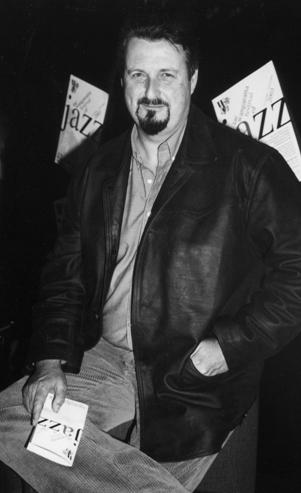 |
Peter Wockner:
The Wangaratta Festival of Jazz has been an annual event now since
1990. How do you measure the success of the festival from year to
year from an artistic perspective?
Adrian Jackson:
My first measure is what I've heard : did the bands live up to my
expectations ? Did they perform at their best ? Of course, I can't get to
hear everyone who is playing at the Festival, so I also rely on feedback
from others whose opinion I can trust, whether they be musicians, fans,
other industry figures or reviewers.
I do pay attention to what is said in reviews, and of course there is also
feedback from patrons, which might vary from a casual comment in the street
to a letter sent to the Festival's website or PO Box.
PW: Do you think your decisions as an artistic director are more influenced by the festival attending public or by a group of jazz reviewers?
AJ: Hard to say.........as I said, I do pay attention to what certain
reviewers have to say; at the same time, you can't ignore it if punters are
crowded outside a venue trying to get in to hear a particular act, or
staying away in droves. |
PW: As the artistic director of arguably Australia's most important or
influential jazz festival, how heavily do you feel the weight of
responsibility in influencing the future direction of jazz in this
country?
AJ: Well, I don't think I influence the future direction of jazz, that's a
matter for the musicians themselves. I do try to ensure that the Festival
reflects and presents the more interesting developments in Australian and
international jazz today ; hopefully there will be some relationship between
the artists I book now, and those who will come to be seen, at some future
point, as having been important figures in jazz of this era or the next
decade.
At the same time, I've always thought it appropriate to present what's new
in jazz 'today' alongside exponents of earlier styles, who still have
something to say ; I don't expect that to change in the near future.
PW: Do you have a longer term vision for the festival that you are
working towards?
AJ: Not really.........I think the stylistic mix in the program has been
about right for some time, and the program is kept fresh by the influx of
new bands and artists every year, plus the ongoing development of those
artists we have presented in previous years.
PW: You have no aversion to risk taking as an artistic director: (as
evidence I point to last years pairing of Elliot Dalgleish and Misha
Mengelberg) What is the riskiest experiment you've presented at the
festival and do you believe it was a success?
AJ: I guess the biggest risk is pairing a couple of musicians who haven't
played together before, or perhaps not as a duo, and hoping they can make it
happen without any prior rehearsal. Most of these (e.g., Mike Nock & Niko
Schauble, Judy Bailey & Sandy Evans, Paul Grabowsky & Dale Barlow, Roger
Frampton & Keith Hounslow, Tony Gould & Eugene Ball, Han Bennink with Paul
Grabowsy or Sandy Evans or Scott Tinkler) have in fact worked beautifully.
Maybe it isn't such a risk when you're working with musicians of this
calibre.
With regard to Misha and Elliott last year, I thought it was masterful
playing, but they were on different tangents ; I tended to agree with some
reviewers who thought it didn't work.....although I should add that Elliott
insists that it did work, and he has offered to send me a recording of the
concert to prove it!
There have also been projects involving players from different cities and
countries (eg Horace Tapscott Orchestra, Odean Pope's Saxophone Choir, Mike
Nock Project) that were put together with less rehearsal time than they
required..............but still produced some memorable results......maybe
even because of the added risk factor!
PW: When the 2007 festival finishes when do you start planning for the
2008 festival?
AJ: Pretty much ; although I do have to assemble a draft program for the
2008 Festival before 1 June 07, for a grant application to the Australia
Council.......so you could say it's a never-ending process.
Back to Index
|
Frank Presley's interview with saxophonist and band leader Spike Mason 29th April 2007
Back to Index
|
Frank Presley's interview with guitarist Sam Rollings and saxophonist Andrew Robertson 29th April 2007
Back to Index
|
Frank Presley's interview with jazz critic Kevin Jones 29th April 2007
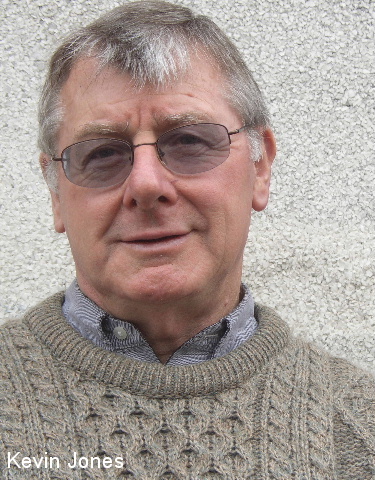 |
'The more you listen to music and the more you write about it, the more you have that knowledge...'
Listen whole interview |
Back to Index
|
Frank Presley's interview with Mark Isaacs 15th March 2007
Back to Index
|
Frank Presley's interview with Judy Campbell and Bandika Ngao 4 February 2007
Back to Index
|
Frank Presley's interview with vocalist Catherine Hunter 8 October 2006
Back to Index
|
Frank Presley's interview with guitarist and band leader Steve McKenna 10 September 2006
 |
'When you are playing for a German audience you can hear a pin drop most of the time...'
Listen whole interview |
Back to Index
|
Frank Presley's interview with bassist and band leader Lloyd Swanton 23 July 2006
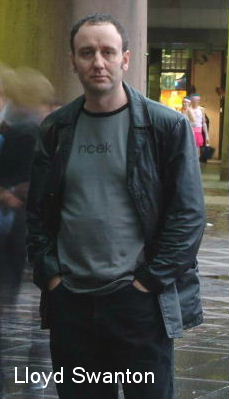 |
'The way we compose in the studio, nine times out of ten we stare at each other and see what ideas come out...'
Listen whole interview |
Back to Index
|
Frank Presley's interview with pianist and band leader Gerard Masters 28th May 2006
Back to Index
|
Frank Presley's interview with Singer Virna Sanzone 2nd April 2006
Back to Index
|
Frank Presley's interview with drummer/leader John Pochee 10th November 2005
Back to Index
|
Frank Presley's interview with musician and writer Peter Ind 1st October 2005
Back to Index
|
Frank Presley's interview with Deana Sinatra 4th September 2005
Back to Index
|
Frank Presley's interview with saxophonist and clarinettist Adrian Cunningham 24th April 2005
 |
"Writing and performing my own music, that's one of my real joys in life." |
Frank Presley:
Your working band has been together now for three or four years. It must be very satisfying to be able to maintain the same working band for this period of time and record a second album with the same line-up?
Adrian Cunningham:
We got together to record a previous CD a couple of years ago and since then we've been performing and writing and it's come to the second album. A lot of tunes we've been playing for a year or two and we went into the studio and put a few new songs on there as well, but they are just fantastic musicians to play with because anything that I put in front of them, they make sound fantastic. So when I'm writing a tune, I have no limits in terms of what I'm thinking up so it's a real pleasure.
FP:
Tell us about the island Suite?
AC:
That was a lot of work and I'm really happy with the result. It was something that was conceived a long time ago and really had a lot of hours of input in terms of making it come to music, because I was inspired by two islands in the South Pacific. It took a while to translate those experiences into music. I'm happy with the result.
FP:
You studied with the great American clarinettist Eddie Daniels. Tell us about that?
AC:
It was years of education condensed into one or two weeks. It was that intense and that fantastic. I came away from those lessons a completely different musician with things that I'll still be working on for the rest of my life. Eddie is without a doubt one of the most incredible clarinettists on the planet. He is capable of classical music and jazz music. He really has no limits and to be in a room with him and to watch him play and to watch him talk about his approach to the instrument was inspiring. I'm always thinking about that when I'm picking up the instrument.
FP:
Who are your main influences in jazz?
AC:
I grew up with Benny Goodman, Woody Herman and in terms of tenor players, I really love Joshua Redman. I think Joshua Redman is an incredible musician. I love the spirit of his playing there is a lot of joy that I feel when I hear him playing. A lot of the greats. I love Sonny Rollins. Sonny Rollins really makes me smile too. I've gone through stages of listening to many many musicians. I think a lot of guys do (listen to many musicians) just discovering as much as we can. Cannonball Adderley is another musician that I really love as well.
FP:
What are Adrian Cunningham's future plans?
AC:
In the immediate future, I'm off to Hong Kong for five weeks to do a show over there 'Saturday Night Fever'. That'll be great. I'm really looking forward to it. Hong Kong is an incredible town. Long term, just to continue writing and performing my own music. That's one of my real joys in life and it really makes me happy so I think more of that and as much travelling with my music as I can.
Back to Index
|
Frank Presley's interview with guitarist James Muller 24th April 2005
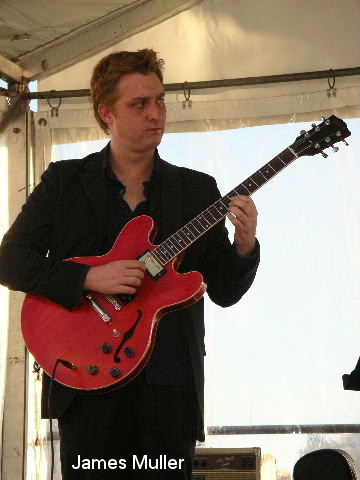 |
"The first music I really loved was Led Zeppelin and Jimi Hendrix. All that hard rock stuff." |
Frank Presley:
In terms of recognition, how important are all the awards you have accumulated over the past 5 years?
James Muller:
Those are useful for people that aren't part of the jazz crowd. It's a nice thing to put on your CV basically. It's also a very nice thing to have anyway - the recognition.
FP:
Recognition by your peers and recognition in the jazz industry market place?
JM:
Yes absolutely. That's right.
FP:
As a guitarist, your first choice of music was rock music but tell us how you discovered jazz?
JM:
The first music I really loved was Led Zeppelin and Jimi Hendrix. All that hard rock stuff. I was always really interested in the complexities of music to begin with. I remember one of the last bands I listened to before I got into jazz was 'Queen'. A lot of their music gets a little bit harmonically and melodically - it gets a little bit complex. I was very drawn to that. For some reason I just loved the sound of modulating stuff. I guess that's what drew me to jazz. Jazz is quite a complex style of music. I've always liked that sort of sound. Musical sophistication I guess, I was very drawn to.
FP:
You have a very easy and relaxed almost laid-back manner when playing the guitar. Have you always been like that or does it come with playing jazz rather than rock?
JM:
I think a lot of that comes from the fact that I'm actually innately sort of lazy as a person. I don't want anything to be too difficult while I'm playing. It just comes from practice. When you're improvising which is what people do when they are playing jazz, you can't be struggling with your instrument because you're really thinking off the top of your head a lot of the time, so everything's got to be coming pretty easily. I have just worked at it hard enough to get it to that point where I can, as you say, play pretty relaxed.
FP:
Tell us about your tune 'Kaboom' (recorded with Bill Stewart and Matt Penman in New York)
JM:
It was actually a tune that I wrote just before I left for New York. I didn't have quite enough tunes to record before I left so I quickly sat around the last few days before I left and madly tried to think of something and this what came out. It's a pretty standard 4/4 jazz tune. Bill Stewart on drums and Matt Penman on bass who is originally from New Zealand and has been living in New York for the last ten years or so.
FP:
Bill Stewart also learnt the piano and has been described as a very melodic drummer by greats like Joe Lovano and John Scofield. Given Bill Stewart has been so closely associated with one of the biggest names in jazz guitar in John Scofield over the years, did you in particular seek out Bill Stewart and how did that come about?
JM:
The reason the whole thing came about is that I won the Freedman Fellowship and part of my proposal for the competition was to record with a New York band. I'd been listening to Bill Stewart ever since I got into jazz really. As you say he's worked with John Scofield and Pat Metheny who are two of my favourite guitarists in the whole wide world and Joe Lovano who I love and also he's played with Maceo Parker and on billions of records that I've got and I've always wanted to play with him. I plucked up the courage one night when I was in New York last September to ask him if he would play on my record and he was very 'not sure' 'who the hell are you' sort of thing. I said look, can I send you a CD from Australia and you can make up your mind whether you want to do it and I did and he said he really liked it and agreed to do the session. That's how it came about.
FP:
What particular CD did you send him?
JM:
I made up a compilation of various CD's and live things on my computer. All of the stuff that I thought represented me the best.
FP:
As a jazz guitarist, are you influenced by guitar players only or do you list other instrumentalists or even vocalists as influences?
JM:
Initially it was very much the guitar. It was Jim Hall and herb Ellis and Joe Pass. The mainstream guys but I very quickly got into saxophone. John Coltrane, Sonny Rollins, Charlie Parker. The saxophone things a big thing and Michael Brecker was another person that I really love. I transcribed all these people and learnt their licks and translated that to my own playing. Also piano players have been really important and drummers. The Rhythms that I play often come directly from drummers. Tony Williams is one of my big big idols as well as Bill of course and Elvin Jones.
FP:
Tell us about the tune you recorded in New York 'Honeycombs'?
JM:
This is actually a tune written by a great Sydney keyboard player Sean Wayland. Sean is a really big hero of mine. He's a bit older than me and picked me up when I first came to Sydney from Adeliade and gave me some gigs and I've been playing with him ever since. He of course spent a lot of time in New York City. He lived there for three years I think. Matt Penman, the bass player is a great friend of his and has played on the last two of Sean's New York recordings and that's the whole reason I met up with Matt and played with him.
FP:
What's the future hold for James Muller?
JM:
I've got two records in the can. I've actually done another one with my Australian band. Felix Bloxom drums and Brett Hirst bass, which we recorded last September (2004). I'm really keen to get that out. I'm really going to make a good snap at getting my own music out there around Australia. I've been a bit lazy in the past where I've just let the phone ring rather than actually being proactive about it. So that's my big goal, to get my music out there.
FP:
What record labels will the albums be released on?
JM:
The Australian one, I'm still not sure. With the one recorded in New York, I'm actually trying to get put out on a label called 'Fresh Sounds New Talents', which is a Spanish label, which have been putting out a lot of the younger New York musicians. Matt Penman himself, Brad Meldau, Kurt Rosenwinkel and through Matt, I think I've got a really good chance of getting that put out which would be really great because it would be world wide distribution which is what I really need. All Australian jazz musicians need to get their music outside of Australia.
Back to Index
|
Frank Presley's interview with pianist/composer Sean Wayland 17th April 2005
Frank Presley:
Tell us about how you became involved with music?
Sean Wayland:
My parents gave me a Beatles record when I was 2 or 3 and I was listening to a lot of music, as they were music lovers. I got interested in the violin when I was at school. I learnt the violin. My grandmother was a concert pianist. I was always interested in the piano as well. When I was 12 my parents bought me a beat up old upright piano and I had some classical piano lessons and I continued with the violin at school and played in orchestras and Sydney Youth Orchestras.
I became interested in jazz as a teenager. My father had jazz records and I heard people play it but I found it hard at the time to get any information about it but finally I met this guy John Bostok when I was about 18 and he explained it to me technically and more importantly he said go and listen to this record and listen to that record. In 1986 it was pretty hard to find jazz records in record shops. CD's were just starting to appear but nothing had been released on CD at that point. The record companies had phased out a lot of the jazz. You couldn't buy 'Kind of Blue' on LP new!
The two important things that happened were I fell in love with the sound of the Fender Rhodes not knowing what it really was. My father knew someone who had one for sale. He showed that to me and I was fascinated by it. He also played me some of Herbie Hancock's funky records like 'Thrust' and 'Headhunters'.
FP:
Do you still pick up the violin from time to time?
SW:
Very very occasionally. It hurts my neck. I got pretty interested in piano at the end of school. The jazz bug took over. I think I wanted to play the piano all along but I found the violin first. My grandmother was quite a formidable figure. She was a very talented musician. Rather than being someone who I could aspire to it was put to me in terms of - this person is extremely talented and a genius and you're not, so forget about music or playing the piano. That was part of the reason why I didn't play the piano when I was very young because it was in the realm of impossibility almost.
FP:
It was too overbearing for you to come up to the standards that your family had set?
SW:
That's basically it
FP:
You were fortunate enough to receive an Australia Council grant in 1999 in order to live and study in New York City. How much do you value that grant in terms of the development of your career?
SW:
I would have gone there eventually. I was waiting to get that grant. The five years before I got that grant a lot of people got say $15,000 or $20,000 out of the government to go and live in New York. It really set up a few people like Nikki Parrot and Lisa Parrot and Ashley Turner to a certain point. It really gave them a foothold in that place [NYC] is very expensive. By the time I got it [the grant] it had gone down to about $5000 I think and it bought me an airfare and a few pots and pans.
FP:
I guess the experience of playing with a number of people that you wouldn't normally have been exposed to would have been a huge kick along for your career?
SW:
Oh yes. I'm not downplaying the experience of being in New York. Just the grant itself wasn't the most important thing about it. I put so much of my own money, my parents money, my car, everything I had went into surviving in New York and setting myself up there. It was a fantastic experience.
FP:
Roger Frampton was one of your teachers. How do you regard Roger Frampton and his contribution to Australian music?
SW:
That's a difficult question. It's hard because he's not alive now and when he was alive, I was pretty much his student. I wish that he was alive now and playing and I could experience it again because you can't always grasp what's going on around you.
The jazz scene in Sydney has always suffered a bit. The venues haven't been great; the pianos haven't been great not for everyone's efforts and I feel that musicians of his generation weren't as fortunate as I am to have grown up in such an educated environment. Having recently revisited some of his recordings, he was certainly an unbelievable musician, very creative and a truly inspired musician but the experience at the time of seeing him in the environment of and playing with that generation of people who suffered through indifference and bodgied there way of playing. Now I look back at it and think it's a beautiful thing and it's something that I treasure about our Australian culture. However at the time, having not been to New York, it was easy for me to say 'those guys were trying to play like Americans but they're not doing it as well'. In hindsight that's not actually true. I
don't think that there is an Australian sound. What was Australian about it was that he used to play on a really messed up piano in a pub. Whereas the recordings I have of Herbie Hancock are on a beautiful piano in a concert hall with Miles Davis and an attentive audience of thousands of people. Herbie played with a rhythm section that defined the music so the experience of seeing Roger play in a pub with a bunch of musicians who kind of fashioned a funky version of jazz themselves, at the time it seemed second best to me. However now looking back at it, I certainly didn't realise how brilliant Roger really was. I didn't put enough value on those musicians' personal experiences and their personal expression.
FP:
Looking at jazz on a macro level. Is jazz destined to remain a minority music and where would Sean Wayland like to see the music go from here?
SW:
I probably disagree with the statement that it's a minority music. Look at all the singers recently who have become successful. Madeleine Peyroux, Norah Jones and Diana Krall. They are jazz people I think; they're in the jazz world. I think in all types of music, films, rock bands whatever, a lot of those musicians are firmly in the jazz world. I think there is a jazz world of musicians certainly. There's an international network of people who are interested in improvising and who are joined by a love of the jazz tradition. There's no way that will go away. I think about it in terms of New York City. New York has changed a lot. Certainly the golden days of 52nd Street are long way gone but still when I think about me and music that interests me, which is not just jazz, a great deal of it comes from New York and a great deal of the people who I would consider to be the greatest musicians
alive are still living there or elsewhere in the world a lot of the other greatest musicians and composers are jazz people.
FP:
Looking at it on the basis of record sales however, you'd have to make the concession that even with the Diana Kralls, your Norah Jones in America, the statistics on jazz record sales still only come up to about 3 or 4 % maximum and in Japan 7 or 8 % maximum.
SW:
I see that way of looking at music, like trying to create categories and trying to put some sort of music in that category and say how much it sells, from a scientific perspective it's absurd. In terms of data analysis, to have really fuzzy categories that aren't distinct and to try and use that to create some statistical meaning or relevance, to me, the whole concept is so poorly defined.
FP:
It comes down to the old saying 'File under Jazz'. They've got to put it somewhere in the record shops. Some of Miles Davis' final albums, many would suggest that they may not have been or should not be filed under jazz but nevertheless that's where you'll find them.
FP:
Andrew Denton when interviewing James Morrison last year said that he could not 'get' jazz. In other words he did not understand it. What are you thoughts on the perception that you need to have some level of technical understanding of jazz before it can be appreciated or enjoyed?
SW:
That's a difficult question. If someone says they don't 'get' jazz, it's almost as absurd as someone saying I don't like Chinese people. It's just a silly generalisation and someone who says that is I think a fool.
FP:
Even the term 'jazz' or the idea behind pigeonholing the music is absurd.
SW:
I think the term is a useful term. I use it and it's a descriptive term.
FP:
So is jazz meant to be understood or is it meant to be accepted and enjoyed without that understanding?
SW:
I haven't really answered your question I can see that. I certainly think that it would be fantastic if people were better educated about music worldwide. I don't think that jazz is rocket science. I teach jazz at a tertiary level and I always say to my students 'if you can learn long division you can understand music and jazz'. I think on one level the concepts that are involved are much simpler than the lexicon of English. I see it pretty simple and it's a shame that not more people don't understand it and I believe that if people did then more people would enjoy it and would 'get' it. However everyone likes Norah Jones all over the world. Look at how many people like James Morrison. They don't have to understand what he's doing. I don't think that's necessarily true.
FP:
Given the number of talented pianists Australia now enjoys, are the performing opportunities in Australia increasing or decreasing?
SW:
The music that's on my latest album ('Australian Rhythm Changes' SEEDCD007) which is an art music, the opportunities to play that sort of music, for most people I don't think have changed or are getting worse. However when I was 25 jazz funk was popular and there was more work to do that, so I can see that I was fortunate that I grew up in a time when there was work around for musicians and that there was a little bit less on one level, but jazz funk wasn't a totally creative art form. It comes back to how commercial you want to make the music and how much money you or someone else is prepared to spend on marketing it. I know for myself it was easier to get publicity in the beginning. There's a tendency in Sydney, possibly Australia that everyone gets a go and if you're a new face, you get your CD reviewed and then that's it! Then you're lucky to get a CD reviewed ever again for the
rest of your life even if you're a legend you know. That still doesn't mean you'll get your CD reviewed! What's changed is that everyone's got a CD player now. When I made a CD 10 years ago or so, there were people who didn't have a CD [released]. I mean Bernie McGann didn't have a CD. I think I probably beat him to it and I was 20 and he was 50.
FP:
Tragic isn't it?
SW:
It is but he probably didn't see it as tragic. It just became possible to make a CD at home. I see on one level that things are getting better, musicians are organising themselves better. They're a bit more proactive. An older musician might say this is a used to just get paid and we didn't have to promote ourselves or do anything and it's all hopeless now. You have to book the gig, promote the gig but on the other hand, there is a lot of energy now. A lot of young people with the get up and go to do something. Things that we started like the Jazzgroove Association are quite successful. I basically started Jazzgroove with a few other people. I certainly put it together and organised it. We had a lot of energy and enthusiasm. I certainly never believed it would get off the ground anything like the way that it has.
FP:
It has certainly blossomed hasn't it?
SW:
Well it's fantastic. It's so successful. Considering how little money has gone into it and the fact that it's basically done gigs early in the week in a pub somewhere and it's had to change venues. Considering all that I think it's a miraculous success story.
Back to Index
|
Frank Presley's interview with classical/jazz pianist/composer Mark Isaacs 12th June 2005
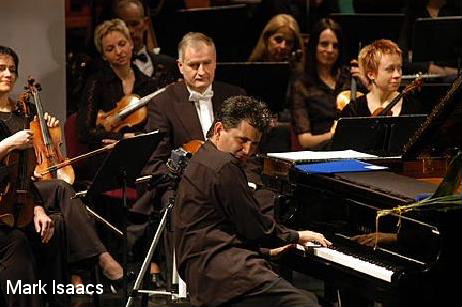 |
"I think people are less inclined to go out and hear live music because they can simply pipe such good music into their own homes" |
Frank Presley:
Describe what it was like growing up in such a highly musical family and experiencing people like Duke Ellington and Wes Montgomery?
Mark Isaacs:
Well it actually was my uncle's home Ike Isaacs and that's just a bit of a family legend. I didn't directly experience that. I was just aware that it had happened. There were other famous musicians that came through. I remember a jam session with Joe Pass at one time and Martin Taylor the guitarist. Here in Australia, Don Burrows visited many times and my own family were very musical. My uncle Ike who I mentioned and my father a jazz guitarist. My mother played classical piano. It really was a very productive environment to be in for somebody who had musical aspirations as I discovered quite early that I did. I found I could really interact. I had another uncle who was a classical violinist and he put me through my paces many times and checked out what I was doing with classical music. So it was great. I think for somebody who has musical aspirations, it can be great, but it's very
interesting. I am asked this question quite often. The counter example is a superlative musician such as Leonard Bernstein who came from a completely non-musical family. So it's not a prerequisite but it certainly does help.
FP:
Coming from such a broadly based and successful musical family, did you ever feel overwhelmed by the pressure to succeed?
MI:
No I've never felt overwhelmed by that pressure
FP:
What part of your career do you enjoy most performing, recording or composing?
MI:
It's a good question and it's hard to answer because I couldn't really single out one. It's all part of the one puzzle. I feel very blessed and grateful that I can express my music through various ways, through various means. For example, I find 'composing' is a very solitary pursuit and that has it's advantages because when you compose, you really do enter a conceptual sound world where you're imagining this piece in isolation that will eventually be performed of course. Well hopefully by other people. It's a very sort of reaching out for some sort of visionary kind of thing as a single person, where as in performing and recording, largely these are ensemble-based operations. You have a wonderful joy of bouncing off other musicians and that is also very joyous but I wouldn't say there are pluses and minuses in both. In some ways my introvert side is indulged as a composer but my
extravert side is indulged as a performer because I am with people, maybe touring and seeing different parts of the world. So I wouldn't be without either but I feel very lucky to have both. I put them all neck and neck.
FP:
Does composing music come easy to you?
MI:
Not always easy. It does sort of generally flow although I find as I get older I'm editing myself a lot more and perhaps when you have a backlog of compositions behind you, as one progresses through ones career, the challenge is to re-invent yourself and to be fresh and to make each piece alive. That seemed quite easy when I was young because the pieces would just flow but now there's this sort of back catalogue hovering over on me and weighing on me. I am finding it sometimes harder to get started and I tend to throw away more material than I ever did. I never really did that [before]. Actually I used to just write it down almost like dictation when I was younger but now I might throw away four or five days work so in some ways it's getting more difficult but it's actually getting more rewarding because I think and I hope that I'm refining what I'm doing and the results are more mature. I do hope that I can keep the effervescence of youth in there as well.
FP:
How would you compare the challenge of re-arranging a jazz standard to suite your jazz trio to say composing a new jazz tune?
MI:
Well it's still a very creative and challenging discipline. I don't generally re-arrange in the sense of writing an arrangement. I tend to bring standards into a trio context and just call the tune. The re-arrangement takes place on the fly between the ways the players create it. It's very much an improvised arrangement if you like. There's a lot of talk about original Australian music say for example lately, I've been doing a lot of standards. I consider that just as much a creative part of what I do and I hope that the results themselves are also original. Because as a jazz player you really are using a standard song as a springboard or template to create something original. So I don't see it as any less challenging.
FP:
Lets talk about your new band. What qualities are you looking for when you are looking to assemble a new trio?
MI:
Yes well I have been working with young players a lot especially in Australia I've been working for a couple of years now with Ben Waples the bass player who is only 23 years of age. Considerably younger than me. In fact 23 years younger than me. I am precisely double his age. Also I've bee playing for the last couple of years with a young drummer called Felix Bloxsom. On this occasion I'm playing with James Hauptman who is 22 and an emerging and wonderful drummer on the scene and whom I am very much enjoying working with. We've had a couple of rehearsals and they've gone very well. Regarding the repertoire. I'm extending the idea of my last CD which was called 'Keeping the Standards' an exploration of jazz standards. On this project I'm not going to do originals. I'm still going to do pre-existing melodies interpreted. But I'm looking at melodies from the 1960's and 1970's, which aren't
always, occasionally are, but are not the normal province of jazz players for interpretation. I'm going to play for example music by Paul Simon, The Beatles, Stevie Wonder, and Jimmy Webb, perhaps even Michel Legrand and James Taylor. I'm finding this project very exciting. I've been wanting to do it for a while. To actually explore the 60's and 70's music, which is actually the pop music of my generation in fact and these guys don't know a lot of this music. They actually asked me to give them the original tracks and I managed to give them a compilation CD of all the originals so they could get to know these melodies as if they were jazz standards. Like 'Sounds of Silence' by Simon & Garfunkel for example or just give one hint of what I'm going to play. [Now] this has actually turned into an album project because the ABC has asked us to record this project and it's perfect timing
because three days after this Sound Lounge performance, we'll be in the studio recording this material for my next CD release.
FP:
What qualities are you looking for when you are looking to assemble a new trio?
MI:
Well for a start they need to be virtuosi. A command of their instruments is taken for granted but beyond that, that they have something to say or have some artist vision of some kind and perhaps in choosing younger players, I do like a certain malleability and a willingness to put their art in the service of whatever larger scale vision I have. At the same time, when I say in the service, I like to filter my vision through what they do and it comes out differently that's why I do it. That's why I collaborate with others to have my ideas coloured by what they do.
FP:
Tell us about 'Josephine' (from 'Closer' Naxos Jazz released in 2000)
MI:
This is an original composition. That whole CD is of originals. I was in 'originals' phase at that time. 'Josephine' is a kind of a bright three four waltz vibe.
FP:
Being accomplished in both the classical and jazz music forms, as a performer, which form of music is most dearest to your heart?
MI:
Again I have to answer neither is more dear. I actually even don't think of it as two separate things. Clearly there are very different techniques involved. Those tend to be more on what I would call the surface level of the music. As a music maker, I find the questions and the challenges are the same in both cases. Largely I'm concerned with what state I can be in when I'm performing and the sort of state of mind which brings about a good night in classical music is exactly the same state of mind which brings about a good mind in jazz. So, no I don't have a favourite there.
FP:
In Vladivostok in 1996 you performed your own piano concerto with a symphony orchestra and then returned following intermission leading a jazz trio. How difficult is it to change your musical approach like that in such a short space of time?
MI:
That flowed OK and I think it can be done. I would generally do the classical thing first and get that out of the way and just stretch out into the jazz.
FP:
That may have answered my previous question!
MI:
No because your question was about which one was favourite.[editor's note: 'dearest to your heart'] It's not because one is favoured and one is less favoured, it's because in classical music, you may perhaps have to memorise material and you're playing pre-set material so you have a set of things that you've practised and certain nuances that you're planning to bring out so you want to keep that in your mind. By improvising for 45 minutes you could very easily dismantle that mental structure. Where as the other way is much easier to go. You do what is pre-set and pre-defined, to a certain extent. It's not totally pre-set. I don't believe classical music should ever be like that but more parameters are set and then you can relax into the other. Generally I try not to do that sort of programming. It was an interesting experiment to do and it was a special request and from time to time
people do ask me. I can be asked to play a classical piece and jazz in the one recital and I don't like it. I prefer to focus on one for a while. In fact a couple of years ago I was touring with a wonderful cellist, Trish O'Brien, who was used to be the principal cello in the Sydney Symphony Orchestra and we performed a duo together and I did far more classical concerts in that year than jazz and I focussed very much on that.
FP:
'Impressionistic' and 'introverted'. What do you think of those terms as far as describing your music?
MI:
I can understand that pigeonholing. I resist it a bit because not all my music is like that and I quite often do things that I wouldn't describe that way. But I am realising that that's a sort of a colour that is strong in my palette and in fact the gifts that I have, whatever they are, have largely been toward the lyrical, impressionistic and introspective side of music. I wanted also to resist that in a sense because I was fascinated by earthy rhythmic music. Also music with tension, discord and angst in it. I've also pushed very hard to explore that and that is definitely a part of my repertoire and in fact also there's a lot of (especially in my classical writing) what you might call jubilant toe tapping even cheeky passages or movements for that matter. But interesting you should ask because this current project I thought I would do a concept album. All the music I've selected are
lyrical and introspective and I thought for an album, I would do that and I think it's a good thing to do because quite often in jazz there's the tendency to have to lay all your cards on the table. You have to have a burner, you know a real fast thing, you have to have 'the' ballad, you have to have a Latin thing and so many jazz albums are compendiumatic in the way the artists shows off and why not? It's a bit less fashionable now to do what was quite fashionable in the 1960's and 1970's to do concept albums. In fact, I was telling a very musical person who is a good friend recently and she said 'I really like CD's like that because I can be put them on and know the mood of the CD (the general mood) you'll find different colours from track to track and I won't be disturbed and have to leap up and turn it down'. Do you know what I mean? That will be a very fair statement about this
album in particular. It's a sort of a general tendency in my music, so I would acknowledge it but not exclusively.
FP:
In your opinion, what are the largest barriers inhibiting the live music scene especially jazz in Australia?
MI:
Look I have to say economic. We've just had a major venue close in Sydney. People are going out less, are cocooning more and the means for them to cocoon are very readily available now to a very high level through the internet, through DVD's and the big push toward home cinemas and these various facets. I think people are less inclined to go out and hear live music because they can simply pipe such good music into their own homes. For live musicians, this is a bit of a battle. It's by no means lost. Live music is alive and well as your immense gig guide demonstrates [www.jazzandbeyond.com.au] and I think there are economic barriers there and performing artists have to survive a lot through touring which is not a terrible cross to bear because we love to tour. I do anyway. I couldn't make a living with the amount of performances I do in Sydney. Because I perform under my own name and they
tend to be 'events' as it were, I do about five or six a year at the most, so I'm touring interstate and overseas a lot now to supplement that. I think it's the same everywhere. It's not uniquely Australian.
FP:
It must be discouraging to read in the paper quotes from someone as influential as say Dale Barlow, giving the advice that the best thing a young Australian musician can do is to get a ticket out of Australia and explore the opportunities elsewhere?
MI:
Yes I think it's a good thing to do. I mean I can't analyse what Dale meant by that but I think that's a good thing to do anyway. I don't think that's because there are specific problems in Australia. There are a lot of good things happening in Australia. We have relative to population, quite generous arts funding scenario. It's a good place to live. There's opportunities for musicians to gain work in less creative forms of music but can have good value in terms of economic survival through more commercial music forms. It's great to get out of your pasture and explore. I did it a lot when I was young and I still do it. I'm getting a lot of performances in for want of a better word, less developed societies. In Eastern Europe a lot, recently I was in Turkey; I've been in Russia a lot. Some of the South East Asian countries. Perhaps what I was talking about the 'cocooning', I don't think
that they're as much middle class societies and have the means to cocoon and perhaps they're a little more enthusiastic. It doesn't mean I make a lot of money playing in those places, but it's still very rewarding artistically.
FP:
A lot of these countries folk music consists of improvisation and it must be very rewarding to collaborate and cross some bridges?
MI:
In all these countries there are local jazz musicians. Generally I collaborate with them. I don't carry a band for economic reasons. It's quite exciting to just pick up a rhythm section in Istanbul as I did a couple of weeks ago. Jazz is like classical music now. It's become a universal language. Wherever you go, there are jazz musicians. Certainly there are where I have been in Eastern Europe, Russia not only in the obvious places like America and Western Europe and Canada.
FP:
I met a bass player in Prague in 1994 that quite vividly remembered Graeme Bell touring there in the 1940's
MI:
Their interest in jazz goes back a long way. They were on to it very early. Asia too, perhaps not quite as early, but in Asia now, post WWII, there's been a huge upsurge of interest and participation in jazz and they produce some amazing players too.
FP:
Tell us about your involvement with the Brisbane Powerhouse as curator.
MI:
The Brisbane Powerhouse is an amazing venue, which used to be a power station. I think the Brisbane City Council worked out that it would cost $10M to pull it down or $5M to turn it into an arts centre. It has a couple of halls, a bar and various performing spaces. Sort of an arts complex and it's still got a little bit of the grungy look of the power station. It's a fabulous venue. I'm very excited that they've asked me to curate their jazz program.
We are starting with a three-day festival in August 2005. I'll be doing a larger scale international festival for them next year [2006] but this festival over three nights, which we're calling 'Cool Nights Hot Jazz', will be opening with Joe Chindamo. One of my favourite pianists from Australia with a solo performance. We've been lucky to get Jukka Perko the Finnish saxophone player who I heard in Finland last year, who's actually on tour in Australia. We didn't bring him out especially. We don't have that kind of budget. I'll be closing the festival myself with a different trio and with the singer Elana Stone who Sydneysiders I'm sure are very aware of. She's certainly the most exciting young jazz vocalist I think to emerge probably in the country. That will probably be decided in Wangaratta later this year in the vocal competition. I'm very excited to have Elana featuring with the trio
from time to time and that will be the case in Brisbane. Then listeners are able to go to the spark bar to hear the finest of local Brisbane bands before and afterwards.
FP:
Sounds like it's a fantastic festival and one that's well overdue for Brisbane.
MI:
I think so. August 5, 6, 7. We want to build the jazz festival presence in Brisbane. It's quite exciting for me because I do love to get up to that part of the world. I have family close to Brisbane and I'm delighted to have a working relationship with a Brisbane venue.
FP:
Tell us about working with Kenny Wheeler and your composition the 'Elders Suite'.
MI:
It was a great thrill to work with Kenny Wheeler. I had him tour Australia with my trio and record a live album with him. As a tribute, I wanted to write a suite for him, so I wrote the Elders Suite for Kenny. In a way he is my elder and I grew up listening to his music and he was very inspiring to me and I wanted to offer this suite to him as a tribute and he played beautifully on the recording.
|
Back to Index
|
Frank Presley's interview with bassist Michael Galeazzi of the Java Quartet 24th July 2005
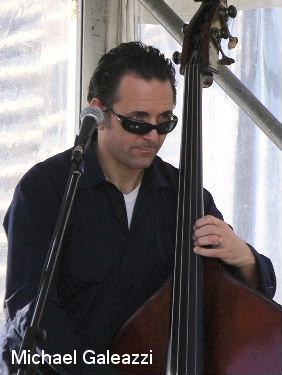 |
"If you've got an audience that's with you and watching and giving you energy, the music can go everywhere and it gets exciting." |
Frank Presley:
Back in 1994, what was your vision for the 'Java Quartet' and did you ever believe you'd be releasing its fifth album?
Michael Galeazzi:
I just had a bunch of tunes kickin' around and I did a musical called 'Bad Boy Johnny and the Prophets of Doom' back in 1993 at the Enmore Theatre and it had Christine Anu and Doc Neilson and Chris Bailey from the Saints. It was a failed rock musical failed. But I had a wad of cash in my pocket. I was teaching at St Ignatius Riverview College and they kindly agreed to let me have a room with a piano and I got my players and Keith and we went in and just spent an afternoon recording and that spawned the EP and it was just good enough to release.
FP:
That was 'Slumber for Nordic Wonder'. Who are your musical heroes and what are the most important things you've learnt from them?
MG:
That's a big question. In relation to the Java Quartet, I was always enamoured of the Wayne Shorters the Coltranes and Miles Davis. That sort of cool modal jazz. I've always thought that was the grooviest expression of those times. Be Bop I really love and appreciate and wish I could play it. It's a social revolution and the guys that are really good, it's a vocation. I came in through the pop and RnB. I was playing a lot of electric bass more like Sly and the Family Stone and James Brown and all that sort of stuff. I was a little indie rocker in my teens and then I got stuck into the funk thing. Someone gave me 'Kind of Blue' and that was it for me.
FP:
Isn't it amazing that album is a common denominator for so many people?
MG:
Miles Davis saved the music by pushing it forward. The whole sociological history of American music and the way it's evolved. I suppose people were getting more insular and trying to protect their art form. Be-Bop was more like a social revolution. Like hey whities play this and play twice as fast and change it and make all the money off this you so's and so's. Miles and those cats brought more of an artistic beautiful thing back into the music. Music for people, cool jazz, chill it out, just as challenging, just as hard to make sense but trying to bring the listener back in. That's where I kind of like the hipnos of music. Indian music and ragas. Shorter and Coltrane were even bringing those kind of things and that's bringing jazz into the greater scope of improvisational music as it relates to civilisation. Those sort of things, the Gregorian chants, twirling dervishes, Eastern mysticism and you know a lot of art, bloody art, it's all art.
Music is coming back to community. The major record companies have blown it. Everyone's downloading. It's a political statement against those guys ripping off artists and the public for so many decades.
FP:
Artists are now releasing music under their own record labels. Tell us a little bit about the tune 'In the Swim' (the first track from the album 'Deep Blue Sea')
MG:
In the swim, life, evolution, sperm swimming. Life goes on and the tadpole analogy. This is kind of like the family album. Birth conception.
FP:
The Java Quartet has developed a unique sound. You've had a few people through the saxophone chair in the Java Quartet. How did you go about choosing Matthew Ottignon to continue that sound? To me, he fits in so well.
MG:
I just asked him. I was talking with Mike and Greg and he was our only choice. It's been circumstance. Richard's gone off and joined the Air Force big band. I really wanted to go back to the more boisterous days of the Jason Cooney era. Matt's got everything and he's just him and he does his own thing. It was really organic. Well it was you know, it's a cliche. Before this album, we just did 3 or 4 gigs couple of rehearsals and let's go. Luckily for us it just kind of worked and was good fun all round.
FP:
The new recording 'Deep Blue Sea'. Tell us about the different approach to the recording in Byron Bay?
MG:
A romantic notion of relocating to record an album. I've done it tons of times with 'Karma County' where if you get out of town, all you do is focus on the music. It's fun you know. You get in the car with the gang. We're off. We're going to spend some special time just to put some stuff down. We had 3 days in the studio. When we were in there. It was the old Festival Heritage studios and it was only just operating a couple of months when we got in there. Lucky enough to have Paul Pilsneniks up there. He's the in house guy who I was already familiar with. We took Keith Walker (producer/engineer) up with us as well. We were just nutting out the space. We got in there in the morning and we were trying a few different set ups in this L shaped room and only had one useful isolated room with windows for site lines. Talking about configurations and Keith came up with the idea let's all just
get in a circle, mike it up and go. There was about 20 minutes we were going 'do we really want to do this?' Because postproduction it leaves fewer options. Ironically on 'Dark Garden' in Sony studios in Hargrave street. Great rooms, great isolation, site lines and windows and we'd had the drums in the big room with the piano, saxophone and bass in the little room and we ended up opening up all the doors and windows anyway to get spillage so it actually sounds live and we like to record air or just the space within the room. All you are doing is documenting a portion of time and anything that goes on within the room. Vibe or what Quincy Jones says 'You've got to leave enough room for the Lord to walk through'. All the great albums from both jazz and pop just had people in a room playing. Keith was the bright spark that fateful day. Headphones even got in the way. I give him that much
freedom because I think he's part of the band. I suppose that was our greatest experimentation really to date. Abandoned ye old separation.
FP:
It's a fine album. I think it's the best of the five albums to date.
MG:
You hope so. It's got a nice little warmth to it.
FP:
Tell us about 'The Leaving Song'.
MG:
I nutted that one out in about 10 minutes before I got in the van to go on another 'Karma County' tour. My wife is beautiful. She's had no issues with any of my career choices, paths or any pressure whatsoever. I was just going again. She just felt sad. Get in the van. This song just ended up being the expression of that. Nothing tragic or anything. Just one of those moments.
FP:
How do you approach composing music?
MG:
Who knows? I've got to sit around and wait for it. I can never work at it.
FP:
It doesn't come easy
MG:
It does when it comes. When it comes it's damn easy and I don't think about. I'm not a tortured composer by any means.
FP:
How long did it take to come up with the music off 'Deep Blue Sea'?
MG:
Couple of months of bits of paper. You've got an idea. A lot of times when I am practising I get an idea or a notion and you run to the piano and just work on it. For this it would have been about 4 or 5 months.
FP:
What sort of music do you enjoy listening to yourself?
MG:
At the moment I'm going through a contemporary phase. The Gorillas. Cog a Sydney based hard rockin trio. Kickin at the moment. Cold Play's latest. Trying to keep contemporary. Trying to listen to what's happening now. I find that for me that's important.
FP:
Does that have a direct influence over the music of the Java Quartet? Do you finding yourself hearing it in the music you produce.
MG:
It would have to really. It's got to go through the old sausage factory. We're only a product of an environment. I hope so. The old modal tradition is kind of retro. So I am trying to be half retro and half contemporary with forms and ideas. I suppose 'In the Swim' is a groovier kind of drum and bass sort of thing.
FP:
It's very accessible modern jazz. It's a straight ahead jazz album but it's very accessible
MG:
Look I'm a simple fella. That's what I like. I want people to come closer not further away.
FP:
Tell us about 'Seek Ye the Kingdom' (for Mabel Hawkins)
MG:
My Grandma. That's the title of one of her paintings. She was an abstract expressionist. She studied with Citrus Auburn. Quite a famous painter around the 30's and 40's. She was some crazy gal. I've got a whole bunch about 20 canvases at home. You can follow her work straight down the line. Beautiful still life's, shade and light, very beautiful. It just keeps on getting more and more blob like. Very hard palette knife. Lots of relief. This painting would have been about a metre and half tall and half metre wide. Like a panel and it was all ochres and different sort of browns.
FP:
You were using borrowed instruments at Bennett's Lane?
MG:
Michael Tortoni down there is very proactive and he's trying to make it easier for musicians to be able to tour and come to his club. He let me use his beautiful French bass about 150 years old.
FP:
Putting your double bass on a plane must cost a lot of money?
MG:
It's all right. I've got it at about 32.4kg . You ask Lloyd Swanton about this. As long as you haven't got too many items. We've only been doing 1 or 2 nighters so our personal luggage is mostly taken on board luggage.
The Bennett's Lane gig was lovely. Fantastic venue 7 nights a week jazz. We don't have anything like that in Sydney. Not dedicated 7 nights a week. He's got two rooms now and he often has two rooms running on the same night as well. We were fortunate enough that both Kenny Weir and Adrian Jackson both popped their heads in for about 1 set. It was lovely that Kenny commented to me that even with all the borrowed gear that we still sounded like 'Java'. I suppose with a project like this you want personalities and people. We are the sum of the parts. Because we have been playing together for so many years, you sort of develop your own sonic space, where no one treads on your toes. By definition we just jump on stage, tune up your instruments and start playing. The dust settles to the bottom of the glass and here is our mix. Because it's not a huge venue you haven't go the PA influencing the
sound too much. Live sound off stage a little bit of piano and saxophone in the PA to get it around the room.
FP:
You've worked in different parts of the world. How are Australian audiences different from other audiences in relation to jazz and modern jazz especially?
MG:
It's funny, in a commercial sense; jazz in Australia is very much the noise in the background
while you have your wine and your conversation. There are maybe a few dedicated venues where you are inclined that you should be listening and quiet. But of course if people pay their money to come through the door, they just want to have dinner and a few wines and a good time and ah look there is some music going on as well. I don't have too much of a problem with that. People pay their money and they want music to be part of their whole experience. You've got to be thankful for that or there won't be any music at all. Music is a part of life. Hopefully it plays its role and its function will always be there. But sometimes it's really hard to play more delicate music. Even in dedicated music venues you still really don't get that concert like atmosphere. It always leans toward the pub rock end of things where it's the soundtrack to getting pissed and having a fight, or trying to pick up
someone of the opposite or same sex. Jazz seems to fall under that banner. You don't have that artistic differentiation where maybe in Europe you do. They've got a couple more centuries worth of culture. We're only 200 years old out here and they are thousands of years old. Any society with a greatly developed culture has a huge artistic history because that's how you really measure society through the ages through their art. They are a lot more opinionated overseas. They will sit there and it's almost a little bit disturbing. They will check you out. They've come to a performance and they have come to make a valued judgement on the performance that's put in front of them. It's great they'll either hate you or they'll like you. But they'll always appreciate the effort. The one example that comes to mind especially with Java, when we did Montreux, we also did a gig at the Australian
embassy in Bonn at the Boomerang Bar. Underneath the embassy they actually put a corrugated tin roof shed. It was the 4th July and all the Americans had come over. There was a whole bunch of people just sitting there watching and there was a whole bunch of people getting drunk at the bar. A good excuse to drink beer. I will never forget at the end of the performance, this German woman made a point of coming up to me and said 'you know we Germans we were all up the front and we were sitting and watching. It was the Americans and the Australians who were making all that noise' She wanted me to know that they were there and they were listening and they really enjoyed it and she was almost apologetic for all the other people making the noise through the performance. That's stuck with me until today. The listener over there is part of the experience. It's so true with music like this. The
gig is elevated by the audience. If you're playing to indifference, the music can only go to a certain level and you keep on trying but it will not go beyond that level. If you've got an audience that's with you and watching and giving you energy, the music can go everywhere and it gets exciting. Unfortunately with this sort of music it is a two way street.
|
Back to Index
|
Frank Presley's interview with saxophonist/composer Paul Cutlan 29th May 2005
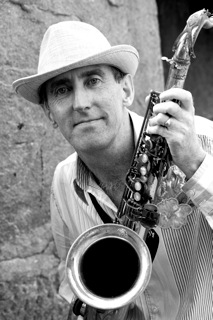 |
"It's the intensity of the words that really gets to me as a musician."
|
Frank Presley:
Paul when you were composing music for the 'Birth of the Cool' did you have any artists in mind from the Beatnik period?
Paul Cutlan:
Oh yes. I am a great admirer of Charlie Parker's music and Charles Mingus and Dizzy Gillespie and all those guys around that time. I could have happily chosen heaps of repertoire that would have gone with different poems. It was good that Camilla and John came up and said that I had to write original music. So some of the time I was happy to evoke the music of the period and at other times I tried to write music that's just evocative of what's happening in the action of the poetry generally. The quintessential chase music or sexual liaison music or romantic music. Not necessarily of the period but the fact that we've got bass and drums and saxophone. The drummer can play percussion and vibraphone so there's a lot to choose from there and all of that is very evocative of the jazz trio of the 40's and the 50's. So I had a lot of fun with the variety of that. The vibraphone is such a cool
sound. We could only have three musicians. Luckily Fabian Hevia is such a versatile musician, he can play vibraphone and bongos and congas fantastic, South American percussion and a fantastic drummer.
FP:
Did you have to do any special research? Did you read the 'Naked Lunch' before you started composing music for 'Birth of the Cool'?
PC:
I was a complete novice to all of this. I read 'On the Road'. The poetry I was faced with in the script was enough for me to get into. I read 'Howl' in it's entirety and it took a while for me to get used it and to warm to it and to see the intensity of the words. It's the intensity of the words that really gets to me as a musician and they suggest things for us to do in the music. So I have tried to leave lots of space for improvisation or for Steve and Fabian and myself to respond night after night slightly differently to how John performs.
FP:
What is mix of what's scored and what's improvised on a nightly basis?
PC:
Suffice to say it will be very hard to present the score to different musicians and say here is a show play it or do it. You actually need to choose musicians who you know are going to be good improvisers and prophetic and that you've worked out a bit of a rapport with and that you trust. So there is in every piece there's a lot that is written but there's a lot that's left to the imagination. I'll say to Fabian - Can you supply a jungle safari beat under here and Steve and I are just going to place a few multiphonics at the most stinky words.
FP:
I often refer to you as being under recorded in this country. For a saxophonist of the calibre of yourself, your name just doesn't appear enough on recordings. Who are you working with mostly at the moment? I saw you most recently with Sandy Evan's Gest8.
PC:
A fantastic ensemble which I really enjoy however it's only done two concerts. At the moment I am very busy with 'Mara', a world music group that specialises in Bulgarian, Macedonian, Greek, Turkish styles of folk music with our own original focus. This band has been going since 1984 I think and we're just about to go on another European tour. We've been doing a lot of schools concerts for Musica Viva in schools, which is behind the scenes stuff too. But we've got a couple of concerts next week in preparation for this European tour. Another band is the Australian Art Orchestra which you don't see much in Sydney. You don't actually see it much anywhere. It's based in Melbourne and it's just been to Mexico recently with a program of music that was written by the orchestra quite a while ago with our good friends Archie Roach and Ruby Hunter who have recently started collaborating with the
band with a program of their own music 'Ruby's Story'. There are two CD's about to come out. One from each of those bands. 'Ruby's Story' is going to be a really great album when that comes out and "Mara's" next studio album which we actually recorded last year. I'll be on both of those and very happy to be.
|
Back to Index
|
Frank Presley's interview with singer/bandleader Judy Campbell 14th Nov 2004
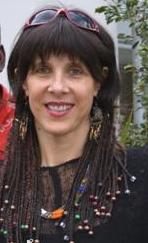 |
" Personally, everything I do is underpinned by that search for unity and diversity." |
Frank Presley:
Judy, what is your musical background?
Judy Campbell:
Varied like most of us
FP:
Are you from South Africa?
JC:
I'm from South Africa originally but I've been here forever. I started out classical training and I come from a family of Jazz musicians. So Jazz was kind of a no brainer in a way and more lately I've come to also be involved in quite a lot of classical music and I've always been very involved in choral music. Also singing in vocal groups and choirs. I now direct the choir at the North Shore Temple Emmanuel here in Chatswood. I have a very wide musical range of activities.
FP:
The band 'Mosaic'. There's just a fantastic line up in this band. There are so many great musicians to choose from in Sydney. How do you go about choosing a band, especially one like this one bearing in mind your theme 'Common Ground'?
JC:
I don't think it was quite so calculated as sitting down with a piece of paper and saying 'ok who are we going to have on drums here'. It grew a little more organically than that. Different people played at different gigs and it is gradually like the pieces fall into place. Do you play tennis at all?
FP:
Yes
JC:
It's when you hit that sweet spot and you think that's it. That's how I arrived at the combination that's on the CD. Of course with such a great line up you don't always get all these people available and that's OK because there are lots of other great players. There's kind of a core of the band, which is mainly Gerard Masters, Justine Bradley, Mark Ginsberg and myself, and we are the four vocalists in the band (four part vocals in different parts). The four of us have to be there otherwise it doesn't work at all.
FP:
You've come back from South Africa recently on a tour. Tell us about that.
JC:
It was just awesome really. We had the best time. We actually made a documentary. We went to the National Arts Festival. We worked with an indigenous African choir there who are actually on the CD. We collaborated by distance with them and recorded an African song called 'Nkosi Somandla'. That was quite an experience and we forged quite a good relationship with them. Now we're talking about doing a collaborative CD of African material actually because they have invited us to tour with them in Holland in 2006. That sounds a long way away but it isn't . Plus we played at the Cape Town Jazz and Blues Festival. We did so many gigs it was just amazing. Really really a full schedule. The real highlight of it was also delivering music workshops in townships around Cape Town. A lot of our documentary covers that material because it's so interesting. These incredibly talented kids who don't have
access to venues and bands. You have to be very sensitive to the whole situation there and just go with an open heart and mind. We were able to do that fortunately and we were also able to get some of these kids to the venues we were playing. We did a lot of collaborative stuff which was great. Really exciting. One of the things with 'Mosaic' which makes it a very appealing package for festival organisers because within that line up you also have, Nick McBride's 'Rectangle', you have the Gerard Masters Trio, etc etc. Five bands in one and they are very different in flavour.
FP:
How important is funding from the NSW Ministry of Arts for Jazz music and improvised music to be able to do things like the tour of South Africa?
JC:
Well it doesn't happen if you don't get that support. That's it. We did earn fee income over there but the grant from the NSW Ministry was such that we couldn't have done it without that. It's a really important part of supporting the arts in Australia.
FP:
There are other art forms and even the more traditional style of Jazz, the argument is there that they don't need those grants because they've got a sufficient following to be able to support it, but it's certainly a proven way of organically growing the music especially in Europe.
JC:
I think almost anywhere. If you have a good vision of what you want to do on a tour and you've got your ducks all lined up, and you've got your support from the other side that you need to make it work, then you bring the funding from this side. It's a really strong combination and I'd say that things have come out of this tour on many levels both in terms of future opportunities but also the impact it's had on the band and on what I can see is possible as opposed to what I saw as possible before this tour. So I think these grants are incredibly important on a number of levels. They literally help you promote the band in new markets, but the impact that it has on the band itself as a unit and artistically I think is very important certainly in our case it's had a big impact and I'm very grateful for that grant.
FP:
Judy, the whole theme of 'Common Ground', tell us what you're trying to achieve with that.
JC:
That's part of my 'shtick' you know? Personally everything I do is underpinned by that search for unity and diversity. With 'Mosaic', we've done some interesting work with cross media events work in visual arts. We hope to do another one of those up on the central coast next year at the Lake Macquarie Art Gallery. Finding ways to bridge things that are viewed as unbridgeable or separate disparate. An example is the event, which we did tonight, which combined jazz, funk, traditional Indonesian music and traditional Jewish music but all in a Jazz context and it was demonstrating this idea of common ground.
FP:
Jazz is a great vehicle for that isn't it?
JC:
It is a wonderful vehicle for that because you can draw from different sources and threads really effectively and amalgamate them into something wonderful and new and fresh and fun to play so that's something that is my kind of mission I suppose you could call it.
FP:
Interesting you mentioned the Jazz to visuals in the background. I first came across that at a performance by Ornette Coleman at the Umbria Jazz Festival (Italy) in 1998. It's distinct in my memory that he had some dancers and some African drummers on stage with his normal band but a constant visual movie documentary thing happening in the background. So you were listening to all different aspects of the music but at the same time watching this visual, which was obviously synchronised.
JC:
As an integrated performance piece. Well what we did was slightly different. We did some of that. We had this theme of unity and diversity and we had sculptures and we had photographic exhibits and paintings. The photographic exhibition for example covered the transformation of a woman into a man through a series of very graphic photographs of that change process. That was certainly diverse and we had a pair of clay cellists done by a sculptor John Balland. It was all looking for this theme even though it was clay and sculpture, there was music in that piece, but what the Gerard Masters Trio did on that particular night was, one of the sculptors came up on stage with one of her pieces and talked about it and why she had done it. What the background and the underlying meaning of it was for her and then the trio actually responded and created in the moment a brand new piece of music in
response to that, which was really interesting. People really enjoyed it because they felt they were on the inside of the magic circle. Inside the creative process. They got to actually be a part of it. Something that an audience doesn't usually get to be a part of. They see the finished product rather than the process of its creation.
FP:
A lot of people say they don't understand Jazz but that really comes to the essence of what Jazz is all about doesn't it?
JC:
Well certainly the improvisational side of it yes. To try and capture an essence and render it in a sound painting if you like.
FP:
Judy tell us about the piece 'Common Ground'
JC:
Well that encapsulates this whole philosophy that I was talking to you about. You'll hear, if you listen carefully in the background, the backing vocals actually say the word 'peace' in Hebrew and in Arabic behind these, what are meant to be, kind of angels voices exhorting people to find common ground. Looking for the things that unite us as opposed to allowing the things that divide us to define how we relate to one another. The lyrics are really very important in this. Mark and I wrote the tune together which was an interesting exercise in common ground right there and I wrote the lyrics for this.
Back to Index
|
Frank Presley's interview with Gerard Masters 5th September 2004
Frank Presley:
You moved to Sydney five years ago from New Zealand.
Tell us how you came about playing the piano
in New Zealand.
Gerard Masters:
I started playing the piano when I was about seven.
I was never really that excited about it
actually. I remember being forced to go
to piano lessons. Really all I wanted
to do was play soccer. So I didn't want
to be inside while all the other kids were outside kicking balls around. I
remember my parents always saying to me 'You'll thank us one day son'.
I've had to say to them many times since
'Yes I thank you very much'.
FP:
So you had a couple of very supportive parents.
Who do you regard as your most significant
influence on the piano?
GM:
Well I'd probably have to say Mike Nock.
When I went through the Jazz School in
Christchurch, I discovered Mike's records and really fell in love with his
style and approach to music and subsequently decided to come over here and
study with him, so it was a beautiful thing.
FP:
What do you enjoy most Gerard, performing, composing or
recording?
GM:
I wouldn't be able to rate one above the other.
It's all part of the whole process
really. They all have their ups and
downs, good moments and bad moments so none of them sticks out as being my
favourite.
FP:
Does composing come very easy to you?
Your current release 'Island Life' and the
previous 'Pallindrome' have quite a number of your own pieces on those
recordings!
GM:
Sometimes it comes easier and sometimes it can be a bit of a
struggle finding the right tune. Also
finding tunes that work with a particular band that you are working with.
Also finding the time to sit down and write music
these days is quite hard with so many different things going on where I am not
getting the time to be able to sit down at the piano with a piece of blank
manuscript as I'd like to.
FP:
Do you find that you try and capture the moment? For example if something comes
into your head, do you race to the piano and try to build upon it ?
GM:
I hear people talking about that sort of thing happening but
normally with me I'll actually set aside some time to write music.
I'll sit down this morning for example, for
a couple of hours and write music. It
doesn't often happen that I'm walking down the street and a beautiful piece
will come into my head.
FP:
Do you think your playing has changed between those two
releases ? (Island Life - Jazzgroove 2004 & Pallindrome - Jazzgroove 2001)
or how has it changed if it has ?
GM:
My playing has changed definitely. It would be hard to say
how. But also the trio has changed as
well. On the first record it was a
different bass player - Brett Hirst.
Since then Brett became quite busy with the Vince Jones and Mike Nock
bands and Cameron Undy came back to town at that point and had a lot of time on
his hands and I'm very grateful to be able to slip him into the band at that
point and that's when the band really took on another sort of approach to
music.
FP:
So how did you approach the Irving Berlin piece 'How Deep is
the Ocean' ? (Island Life - Jazzgroove)
GM:
I took Bill Evans re-harmonisation or semi-re-harmonisation
of the tune and was playing around with that and decided to give it a bit of a
7/8 slightly modern feel, and when we actually came to record it, we'd spent so
much time working on getting the whole 7/8 thing, that Cameron Andy just said
"Let's try and actually play really loose on it and not get too involved in the
7/8 thing". So most of the time we're
playing 7/8 but it gets pretty loose at some points.
FP:
What are you listening to at the moment Gerard ?
GM:
I'm listening to a few different sorts of thing.
I just got back from a little trip to South
Africa, so I picked up some music over there that I've been checking out.
Marimba music.
I was introduced to the marimba.
I'd never really seen much of that sort of music before.
That was amazing so I bought a couple of
marimba cd's back with me. I bought a
Nigerian CD by King Sunny Ade, which is very groovy sort of stuff.
I listened to the new album by 'The Roots',
a hip hop group from Philadelphia. Of
course I just bought the new Finn Brothers album the other day, which has
pretty much been played non-stop on my stereo at home.
FP:
You pay respect twice to the Finns on Island Life.
Has their music influenced you in anyway ?
GM:
I think growing up in New Zealand it was pretty hard to
avoid the music of the Finns. I
remember going to sleep at nights with my grandma's old $2 radio that she
bought at a garage sale sitting above my bed playing Split Enz songs on the hit
parade.
FP:
What was it really that attracted you to Jazz music?
What was the moment when you first heard
Jazz and you thought well this is the direction I want to go in ?
Notwithstanding the fact that you do perform
other types of music here in Sydney.
GM:
That's an interesting question.
I think it was the last couple of years at high school.
I was playing in rock bands with my mates
but was also starting to get into the school Jazz bands and Dixieland
ensembles. One of our teachers at high
school was a trombone player and he ran Jazz groups and we started getting into
that and it just seemed to be a natural progression to go to a Jazz school
after high school. I was lucky because at school, I had a few musical mates that
I used to hang out with and jam all the time.
None of us really wanted to go to university.
So we decided to go to Jazz school.
FP:
And then of course you ended up at the Sydney Conservatorium
of Music ! How do you regard the
strength of the Sydney Jazz scene ?
GM:
I think it's very strong at the moment.
Particularly the whole Jazzgroove thing has
become a very strong force in the Jazz and improvised music scene, which has
culminated recently with the JazzNow festival.
Jazzgroove played a big part in which just happened at the Opera House
at the studio, which to me is a bit of a statement as to how strong the
Jazzgroove has become after years of being a very underground sort of
thing. It still is to a degree; we seem
to be getting recognition from a wide range of sources now, which is
great. I have only been here for 5
years and I'm not too sure on what was happening before that but it seems to me
in that period that things have definitely been growing.
When I moved over here, there seemed to be
quite a pessimistic attitude about the scene.
A lot of the venues had just closed down and a lot of the players, maybe
some of the older players seemed to be upset about not having places to play
and that sort of thing.
FP:
Too many poker machines ?
GM:
All that sort of thing.
But I've definitely noticed in the five years that I've been here that
things have been changing for the better.
FP:
What's the future musically hold for you ?
What's the next project for Gerard Masters ?
GM:
There are a few things on the go at the moment.
I'm always working on the trio and looking
for places for that to play. My
long-term goal is to take that band to Europe in about a year's time.
Also playing hip-hop with a group called
'Ends and Means'. We're making a new
album starting in about one month or so, which is going to be exciting.
FP:
The same band that Matt Keegan is in ?
GM:
That's right. I'm
also starting work on another album of mine which is going to be more of a
dance floor sort of album more funky sort of.
Also writing for the Jazzgroove big band
FP:
The Mothership Orchestra ?
GM:
Yes
FP:
You've been writing for a lot of different projects
including the Mike Nock Big Small Band, a classical pianist Ambre Hammond, Lily
Dior and Rick Robertson. The music for
Ambre Hammond. Tell us a little about
that.
GM:
I've only written one piece so far.
Ambre is an amazing classical pianist and I
actually shared a flat with Ambre for four or five months and she is working on
a recording project of pieces of Australian composers and there's a few Jazzers
in there. Mike Nock was going to write
a piece; Dale Barlow was writing a piece as well.
FP:
Living or dead, if you could choose the ultimate Jazz band,
which would be the members, what would they play and where would you like to
play ?
GM:
I'd have to say Cameron Undy on the bass and Nicholas
McBride on the drums. A pretty easy one really.
I couldn't think of any other guys that I'd really want to play
my music with.
FP:
That's the best advertisement for the Jazzgroove release
'Island Life'. The Gerard Masters Trio
Back to Index
|
Frank Presley's interview with pianist and composer Mike Nock 25th July 2004
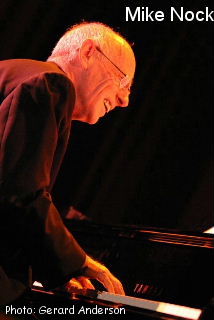 |
"The whole humanist tradition has been thrown out, it's all about economics" |
Frank Presley:
What's the favourite part of your job, performing, composing or recording ?
Mike Nock:
I love them all actually. It would really depend on where I'm at. I mean I love them all. I really do you know.They've all got things that are great about them.
FP:
Does composing come easy to you ?
MN:
No it doesn't. I've always composed and now I'm actually at a stage where I'm starting to decompose but that's another story ! Seriously, it started for me back in New Zealand when I was very young and wanted to play music with some of my friends and we decided we wanted to get a band together.So anyone who was in the neighbourhood that could make any kind of a sound could be in the band and we couldn't play anything. I could play a couple of chords on the piano. We had a trumpet player or actually a cornet player in those days that played in a brass band. A young guy you know.A kid actually ten or eleven (years of age) and he could almost play a b-flat scale I thinkSo that was his technique.We had a guitarist who could play a couple of chords and we had the odd alarm clock or whatever or anything that made a noise.But we made some music.
FP:
Were you playing ragtime in those days ?
MN:
No it was actually a form of Jazz. We were just trying to play some music. The guy could get maybe 8 notes on his cornet.We tried to figure out how to put those 8 notes together to make some music. I'm serious.Basically that's what I continue to do to this day essentially. So that's the essential motivation. In some ways it's very easy. But of course as you get older, you get more critical of what you do and it takes me an inordinate amount of time sometimes to write the simplest little ditty because I'm so fussy. Usually I keep changing things until it's just the way you want it to be.
FP:
Some people might say that your big break was when you went to Boston all those years ago and studied. But I wanted to particularly ask you about seven years later when 'The Fourth Way' formed.(Michael White violin, Ron McClure bass, Eddie Marshall drums). Was John Handy in that band ?
MN:
No John Handy was.....what happened actually was, I was working with Dionne Warwick and with Eddie Marshall. I just really loved playing with Eddie Marshall.Eddie Marshall used to be a piano player.His dad was a piano player too.He really knew how to play for the piano because he was a piano player. So he knew how much of a drag it was to play with drummers that didn't feel right.So when he did play the drums, and he was a very good drummer too, don't get me wrong, but he knew what to do to make the piano player feel good. He had a real nice light thing about him that was really special to me.I got him on Dionne Warwick's gig so we could play together, even though it wasn't a Jazz gig, but we were playing with someone you know ?I made a record many many years ago with Bennie Maupin and Cecil McBee (Almanac) and he was in that band. So we had played
together quite a bit over the years and I loved it. So then I quit Dionne for various reasons. I didn't want to stay on because I got the money I needed to get and I wanted to just buy my piano and get back to playing Jazz full time you know ?
FP:
Back in 1967 you went to San Francisco. A very interesting time in the US both politically and socially.Did that affect the music of 'The Fourth Way' ? It was a music based in Jazz Rock wasn't it ?
MN:
Well it was but I was going to say John Handy actually hired me to play in his band and he also had a violinist Michael White.Michael White and I had talked about getting a band together so when the gig with John Handy came up we decided to work on our own music and we had a falling out with John and this was when we got 'The Fourth Way' together.So John never actually played with the Band 'The Fourth Way'.
You're right, there was much political and social turmoil and it was a wonderful time.
FP:
Lets jump ahead a number of years. How difficult was the decision to return to Australia in 1985, considering Jazz was going through somewhat of a renaissance in the US at that time.
MN:
Well it was difficult but not so difficult because to me emotionally I'd much more than surpassed the goals that I'd set for myself.I said to myself if I'd make 6 records then that's enough for me. I was always hankering after coming back to Australia, because I always remember my period in Australia.Don't forget I cam from New Zealand.My time in Australia has been the happiest time in my life. I seem to have a lot of connections here because I used to visit quite a bit.Every time I came back I felt great and I really felt a sense of belonging here, which I never had in the US.Personal reasons actually prompted me to come back here. It wasn't a particularly good time for Jazz when I came back.I mean Jazz has always gone through a lot of things but if I remember, that was a few years after the first oil crisis.All of a sudden it was getting pummelled on the ropes. Things weren't happening
as well. Like the record business was in trouble and had been for a few years because of the oil crisis.This was before CD's mind you and things just became a little bit rougher. There was less work. It was a fairly grim period actually. The golden period was about five years before I came back.The Reagan years. I've got to say, the Reagan years were horrible.They were horrible. I mean that was the beginning of the end and it has been ever since.It's just become contracting for free thinking spirits, for artists and humanists.The whole humanist tradition has been thrown out.It's all about economics.
FP:
Talk us through 'Current Reality' briefly (Mike Nock's Big Small Band Live ABC 981 567-6)
MN:
Basically it's a piece that the band has been playing for a long time.It's a pretty good feeling, high-energy Latin number. It's always been fun for us to play.
FP:
Who are your musical heroes ?
MN:
Gee that's a good question. Your musical heroes. There's so many of them actually. I suppose the one for me. The man that really affected me more than anyone was Miles Davis. He'd have to be my main real musical hero and then there's people like Sonny Rollins. He is definitely a musical hero. Then there's younger guys like Keith Jarrett and Herbie Hancock.There's a long list.
FP:
I'm glad you put Miles Davis up there. He's certainly my musical hero as well.
Tell us about your most memorable gigs.
MN:
The first ones that come to mind are not the happiest experiences.I remember once I got this gig with Paul Gonsalves. He was the guy that did the Diminuendo in Blue (in the Duke Ellington concert).I always looked forward to playing with him.I was so excited about the gig.I sat down to play and the piano was something like a quarter of a tone higher.It was unplayable. There was no way anyone could get in tune with it. I was devastated. I was heart broken. I actually just drank a bottle. I got a bottle of scotch and just didn't want to be there in any way shape or form.I was so devastated.
FP:
The name Coleman Hawkins pops up. Was that in a one off gig or were you in his touring band ?
MN:
Actually I met him first in Australia. We toured together, we didn't play. He was in that original package that I toured with including Sarah Vaughan.He and I got along like a house on fire. I looked upon him like he was my father. Lovely guy.I was working at 'Lenny's on the Turnpike' and he came in for the week. We used to have a house rhythm section and it was the who's who of Jazz.Just about anyone you can think of during that period that went around the country by themselves played there.Benny Golson, Phil Woods, Pee Wee Russell, the whole spectrum of Jazz and 'Hawk' played there for one week and that was a memorable experience.
FP:
Playing with people like Sam Rivers and Tony Williams, you were almost on the fringe of the Miles Davis band in a way.Did you ever have any experiences with Miles Davis in that period.
MN:
I was always on the periphery of Miles. I used to work a lot with Teo Macero, his producer and Al Foster was playing drums in his band. I did six albums with Al and we used to play a lot together in my gigs.I know he used to talk to Miles about me. I was always so in awe of some people. Miles being one of them.I met him a few times but you just turn to ....you know, you're like an idiot. He actually called me up once but I just couldn't......They didn't train us for that out here you know.
FP:
You've been involved with music education and when I think of Jazz education in particular, I think of two different routes.Firstly the institutional education and then your 'on the job' experience. Gigs and so forth. Just reflecting on your time at Berklee and then gigging, what's the preferable route for a Jazz musician to take ?
MN:
You've got to do both. Now a days to be a musician, to have any chance of surviving in the music business, you have to have a lot of skills. The more skills you've got the better chance you've got of surviving.That's nothing to do with Jazz, that's just being able to play. To be able to read, know your harmony, to be able to contribute to any kind of musical situation you might find yourself in.
A Jazz musician probably has a better chance of doing that than most.That's because you've got to study all the elements that go to make up contemporary music.Which is not the case if you're a classical musician or a rock musician or something. With Jazz you've got to learn how to play all that stuff, but you don't learn how to play Jazz if you're a rock musician. From that perspective, it's really good but there's no way that you can really learn how to play Jazz unless you're out there doing it, and playing with people.So both things are very important.
FP:
'Courting the edge of angst and ecstasy' (Mike Nock's Big Small Band Live ABC 981 567-6) Is this a blues ?
MN:
It's a kind of a blues. It's definitely a bluesy feeling. I've actually utilised some things that sound like another song in there but maybe it is just a flavour. But it's a bluesy type of thing definitely.
FP:
Who do you see as the most promising of our younger Jazz piano players performing in Australia ?
MN:
That's a good question because there is some huge talent available in Australia at the moment. Several people come to mind. Two of them New ZealandersBelieve me it's not jingoism or anything like that. Aaron Ottignon or course has made a lot of waves and boy Gerard Masters is also doing some beautiful stuff.He's made a lot of recordings lately and gee I've been really impressed with the stuff I've been hearing on records.That's the beauty of this music.It's about who you are. They are quite different players.
FP:
Let's talk about Jazz audiences now. What have you noticed about the differences of say American, European and Australian Jazz audiences ?
MN:
Well that's a good question actually. I feel generally that Australian Jazz audiences have actually come a long way.I think they are much more sophisticated now then I ever remember. The kind of audiences that come along to my gigs, usually have listened to a lot of music. You can hear music if you're interest in music. It's easy to get access now days. You hear CD's, the internet if you want to. Maybe in Europe they are more generally used to be supporters of the arts.In Australia, the audiences do have, I always feel, a little bit of a thing like 'show me'.You have to work. In other words they are not necessarily predisposed to like what you do here.
Back to Index
|
Frank Presley's interview with saxophinist Matt Keegan 18th July 2004
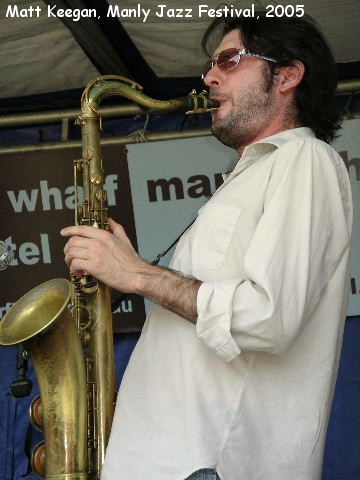 |
"It wasn't just rock and it's not just Jazz. It never is. It's all just music to me." |
Frank Presley:
Matt Keegan who are your musical heroes and what are the
most important things you've learnt from them?
Matt Keegan:
It's such an in depth question. Off the top of my head, I guess the first saxophone player I
really got into and whom I love his sound was Joe Henderson.
I was a big fan of the way he sort of made a
saxophone sound and the way he played Jazz and approached it.
So that was a big influence and I had an
album of he and John Scofield together so I started listening to those two guys
and John Scofield is another big influence.
Just the sort of rocky and the more funky elements that he brings to the
music and through John Scofield I discovered Eddie Harris who is a fantastic
saxophone player and one I fell in love with and wanted to sound like
basically. Then of course there are
other people like well Miles Davis of course is a really big influence in his
use of space and just focus and playing.
People like Stevie Wonder and I could go on.
Recently I've been listening to a lot of Keith Jarrett,
especially his European quartet and his American quartet not the recent one but
the one that doesn't play so many standards.
Not that I don't like that but I think he wrote some amazing music and
I'm just sort of getting into that as well at the moment.
Frank Presley:
You mentioned Jan Garbarek recently as being an influence.
Matt Keegan:
Yeah he's in that Keith Jarrett European quartet.
He's the saxophone player in that.
Jan was someone when I was younger I could
never get into just because his sound is very different from the general
saxophone tradition. But even the sound
that I like coming out of Eddie Harris and Joe Henderson and those guys.
Stan Getz is someone like that I love as
well. It's a dark sort of hard to
describe when you're playing the saxophone sort of like a harder reed kind of
sound. It sounds like you've got to
make more of an effort to play the thing but Jan's is a very bright sound, it's
still a very beautiful tone. I'm just
learning and I got past that and I'm into his music and he's a beautiful sax
player and I'm glad that he's sort of becoming more a part of me now too.
Frank Presley:
So were there some thoughts and influences with the tune
'Norway' (off the album 'Moving Sea Between')?
Matt Keegan:
Not actually, 'Norway' is more about a trip.
I went to Norway and my experiences there
and the beauty and the grandeur of the country.
I wasn't actually no thinking of Jan at the time but I guess
thinking back maybe a little bit something like that snuck in there I'm not
sure.
Frank Presley:
Were you performing in Norway?
Matt Keegan:
No I didn't perform I was living in Sweden and studying
music there and I was playing some music there as well but I made some friends
with a group of foreigners as you do when you're in a foreign country you sort
of hang out with. You don't really hang
out with the locals you hang out with the other people who are foreign and a
couple of those were Norwegians and so they took me to Norway on a skiing trip
for a week on a remote mountain at the beginning of the alps in their
grandfather's cottage with no electricity or running water and it was an
amazing experience.
Frank Presley:
Matt what is the favourite part of your job performing,
composing or recording?
Matt Keegan:
Well I have a favourite but each of them is a very integral
part of my life and becoming more and more a part of my life and I love each of
them. Recording in a good studio is every
musicians, It's like being a kid in a lolly store or toy store.
You go into some of these studios and there
are these beautiful microphones and machines and getting a chance to record
your music and get it down to tape if that's the way you choose to do it.
I also love composing.
Composing to me is like building
something. It's like creating it.
You start with a little musical phrase and
out of that you develop it into like a piece of music that you start rehearsing
with the band until you get it sounding or looking the way you want.
Sort of like sculpting or building a table
or a chest of drawers. You sort of get
it just right until you're happy with it
but definitely my favourite is performing and getting on stage with
other people and getting into the moment and really trying to connect with the
other people in the band on one level and through that hopefully out to an
audience on some level I hope.
Frank Presley:
Does composing come easy to you?
Dale Barlow once said that he tried to compose at least one piece
once a day.
Matt Keegan:
In some ways it comes very easy and in some ways it's very
hard. Often when I'm walking or having
a shower that I suddenly hear something in my head and I think that's kind of
cool and it's only a little bit and I'll quickly go and write it down or play
it for a bit or write it down and I'll come back to it a week later or whenever
I have a spare moment. Then from that
musical phrase I sort of, the way I compose anyway, I build from there what
logically to me comes next. I let the
music dictate the way that the piece grows.
I don't try and force anything on to it.
So I love doing it. For
me it's one of those things where you start doing something like that and you
get so lost in it and hours and hours pass and you don't realise it's been so
long that you've been sitting there.
Your cold and hungry but still doing it.
It's sort of like WHY?
Frank Presley:
You also take credit on the album for playing the
maestro. What is a maestro?
Matt Keegan:
On a few albums that I've recently recorded I've been using
it and my names become synonymous with this maestro and I think people think
I'm some kind of power freak. "Oh the
maestro leading the band". But no it's
actually a box. The way I describe it,
it's like a shoebox. It looks like an
organ with the big buttons that say bassoon or strings and you press these big
chunky buttons. It comes with a
mouthpiece that you stick on your sax and you plug in a wire that goes into the
box and then I run it through a whole bunch of guitar pedals and some other
things to make it sound a little bit better.
It takes the sound of the saxophone and puts it into an electrical pulse
or whatever and makes these weird weird kind of sounds that come out of it that
I really love.
Frank Presley:
So what sort of sounds are you trying to create on 'The
Pint'? (from the album Moving Sea
Between- Jazzgroove records)
Matt Keegan:
Well this is very early days in my maestro use.
I recorded the album a few years ago now.
I've developed my maestro sound since then but I was just trying to get the
best sound out of the machine actually.
I had something in mind a kind of drum and bassy kind of sound and some
sort of keyboardy kind of sounds.
Frank Presley:
I suppose some Miles Davis influence?
Matt Keegan:
Miles was actually a big influence on my playing of the
maestro because of his use with the wah wah pedal and I think that's one of the
funkiest things ever so I've tried to recreate that sound that's very true with
the way I play the maestro. On this I
play with the wah wah pedal
Frank Presley:
There's a current trend to play the horn over top of a DJ
playing the turntables.
Matt Keegan:
I do a lot of that kind of stuff as well down at the Opera
Bar (Sydney Opera House) with my friend James Fletcher who is a great DJ.
It's just the way the world is going
no. There are not so many dance bands
and things. But luckily DJ's are smart enough to realise that things are a
little bit hipper if you get some live musicians in there to help the sound and
it can be really fun especially if the DJ is good and can spin good beats and
you can get some interesting interactions going.
I use my maestro a lot in that situation.
It gives me a really great chance to put
some really weird effects over the strange things the DJ might be doing.
Frank Presley:
One of the first times I experiences something like that was
at the Umbria Jazz Festival in 1998. A
trumpet player by the name of Ben Neill and he'd welded all these different
bells on his trumpet. It was like a
real monster. He was up there with
about two or three lap tops and doing these pre programmed beat sounds and
playing this monster of a trumpet. He
had about 5000 people captivated in the middle of Perugia.
Frank Presley:
Matts been in and out of Australia for the past six
years. You've been playing in the US
with a rock group. Tell us a little
about that.
Matt Keegan:
Last year in particular I spent the entire year in the
states with a rock group who I met 4 years before that when I was an exchange
student from the Sydney Conservatorium to UCLA and I met these guys who started
a band so I was part of that. I got along really well with these guys and got
to put my five cents into the whole process and I kept going back to try and be
involved and finally after a few years of hard work, I got my visa and went
over and spent the whole year last year touring in a bus in a band around
America. Which is like a dream come
true for a lot of people, especially me.
We were supporting much bigger rock acts in the states.
It was definitely a rock band but there was
room for improvisation and I got to play a lot of solos and it was a great
experience.
Frank Presley:
Were you the only horn?
Matt Keegan:
I was the only horn so I had to find ways to blend in with
the band. I don't like the idea of the
only horn sitting around waiting for a chance to take a solo.
I like to be part of the band as much as I
can. I guess the maestro is my way of
doing that as well. There is a little
bit more of an opportunity to get involved with the sound and using that as an
option but also just using my sax, just finding parts to play and not just
sound like they're tacked on but a real integral part of whets happening with
the music. Musically that was a really good
challenge for me to find ways to do that.
Also just getting the chance to play in front of large audiences,
sometimes we'd be playing in front of a couple thousand.
The most was 5000.
There's just a different energy that you get and you learn how to
channel your own energy through your instrument, to keep those people not
entertained, of course you want to entertain them but it's more about 'wow'
feeling your vibe I guess and just having them react from that and if you can
throw your heart and soul into what you're doing.
Sort of a direct link with them.
I learnt a few tricks on how to incorporate them into what I was
doing.
We did some support for Sheryl Crow and Dave Matthews Band
and Live and Blues Traveller, a very popular band in America.
Frank Presley:
Do you think it's changed the way you approach Jazz now?
Matt Keegan:
Most definitely. I
bought my Jazz influence to the rock band but I took away a rock influence from
the rock band into my music. It wasn't
just rock and it's not just Jazz. It
never is. It's all just music to
me. Just the way I approach writing and
playing and listening.
Frank Presley:
Does that mean we'll be hearing more maestro in your music?
Matt Keegan:
Not necessarily. I
am trying to. I find it a challenge to
write for the maestro. I've started
writing some things and I'm getting into it more.
You can get a bit tired of it too, that whole sound. Definitely.
I play in some different bands here in
Sydney where I use maestro pretty exclusively, in particular a hip hop band
'Ends and Means' which are starting to do well here in Sydney and I use a lot
of maestro on that. I've got some
friends saying we've got the CD but we can't hear any sax, saying 'what's going
on?' and I'm saying 'well I'm all over it.
Listen closely'.
Back to Index
|
|
